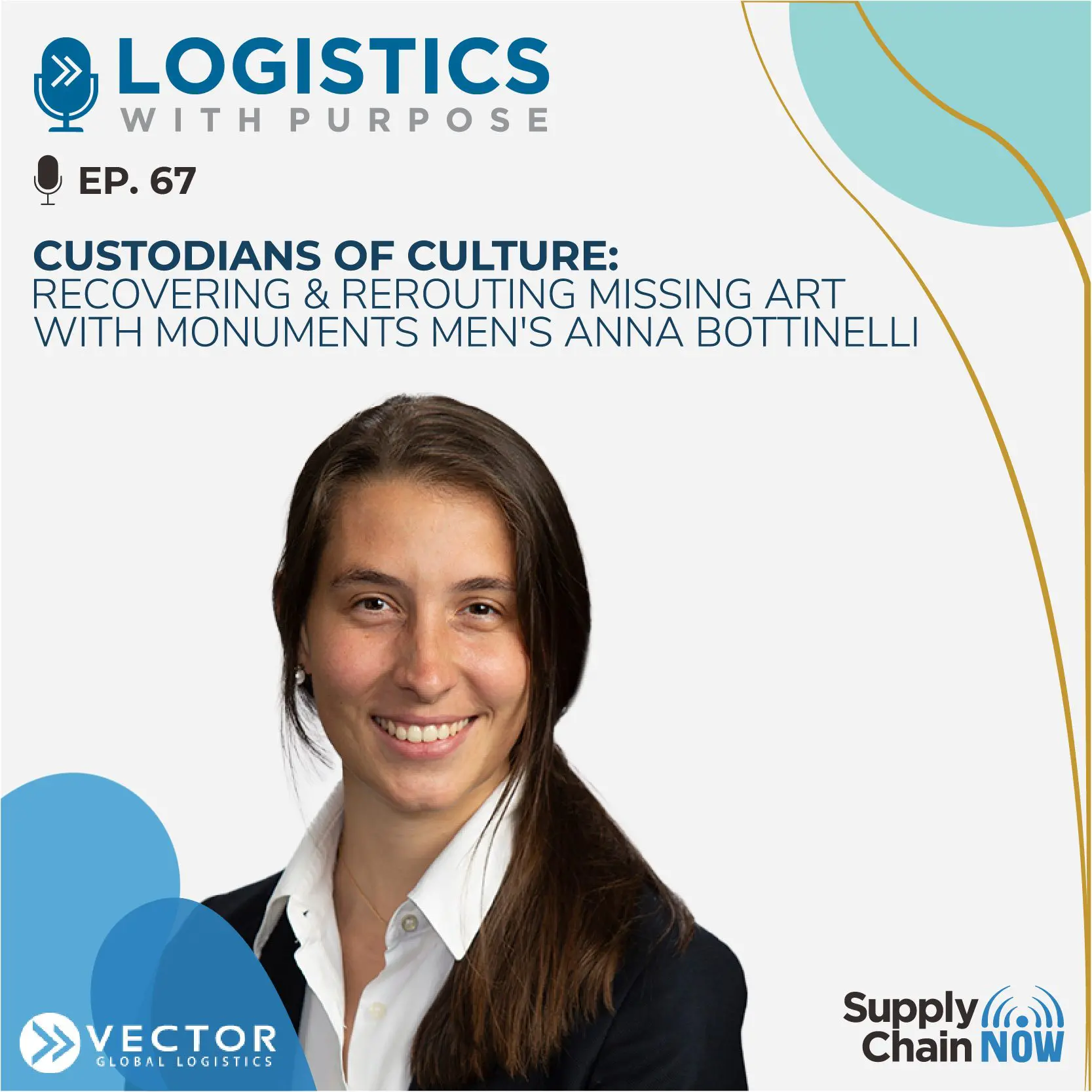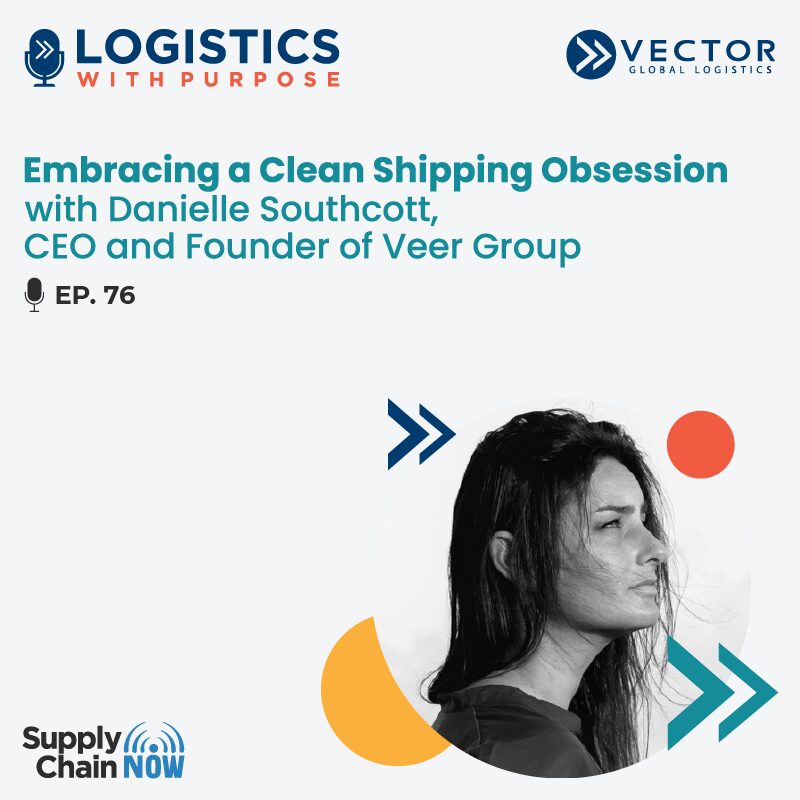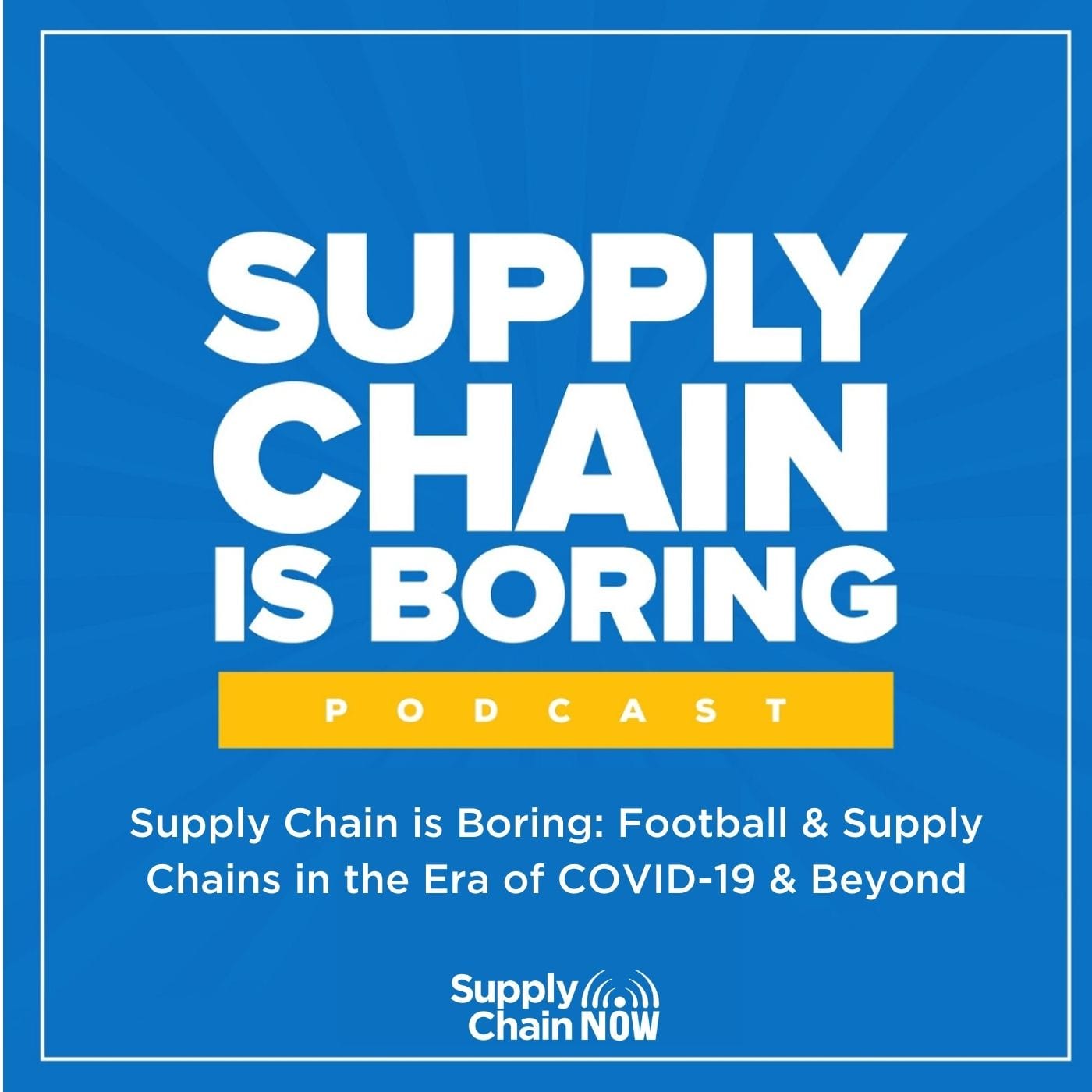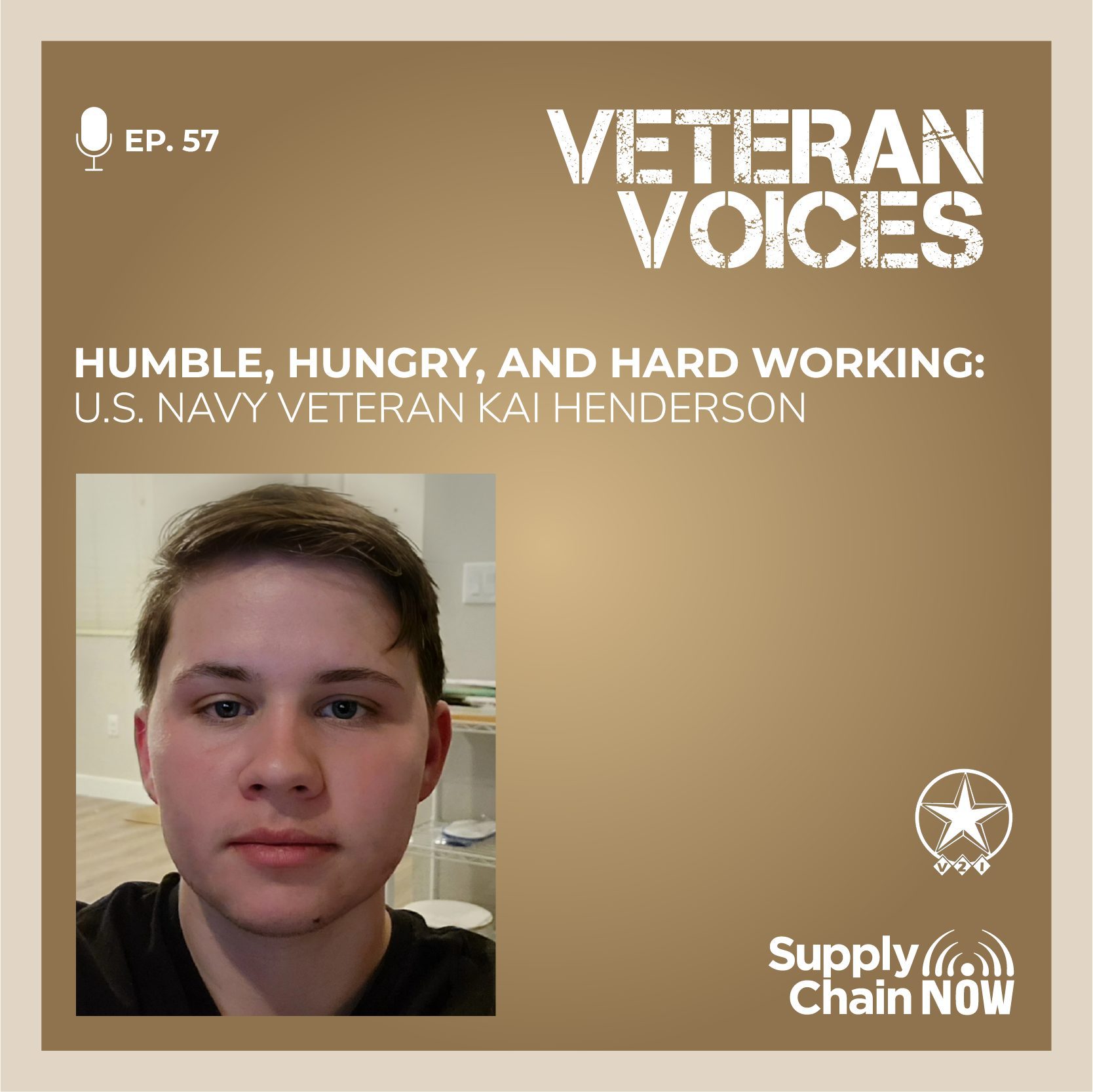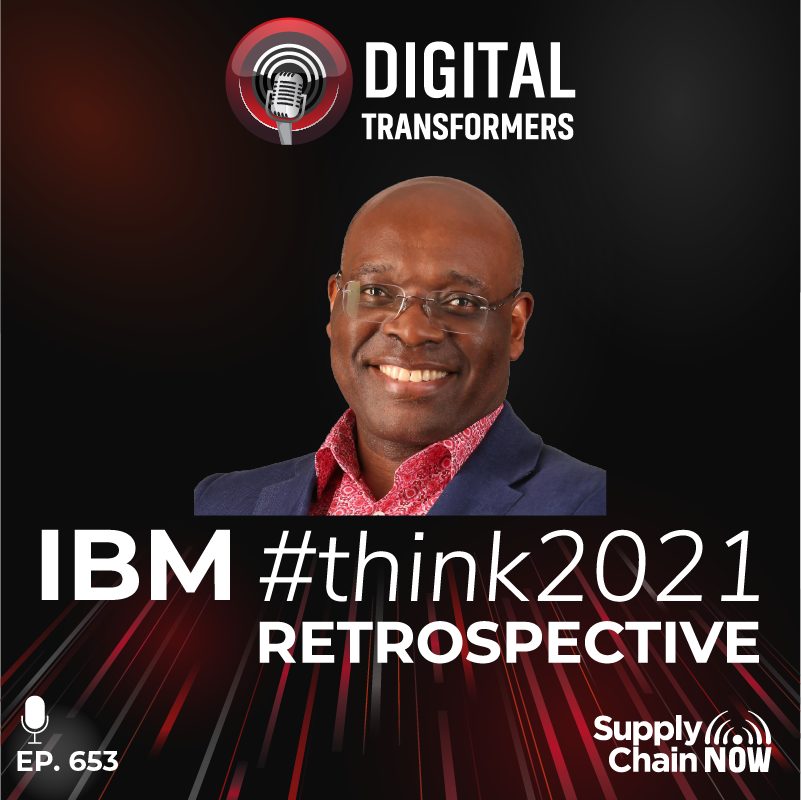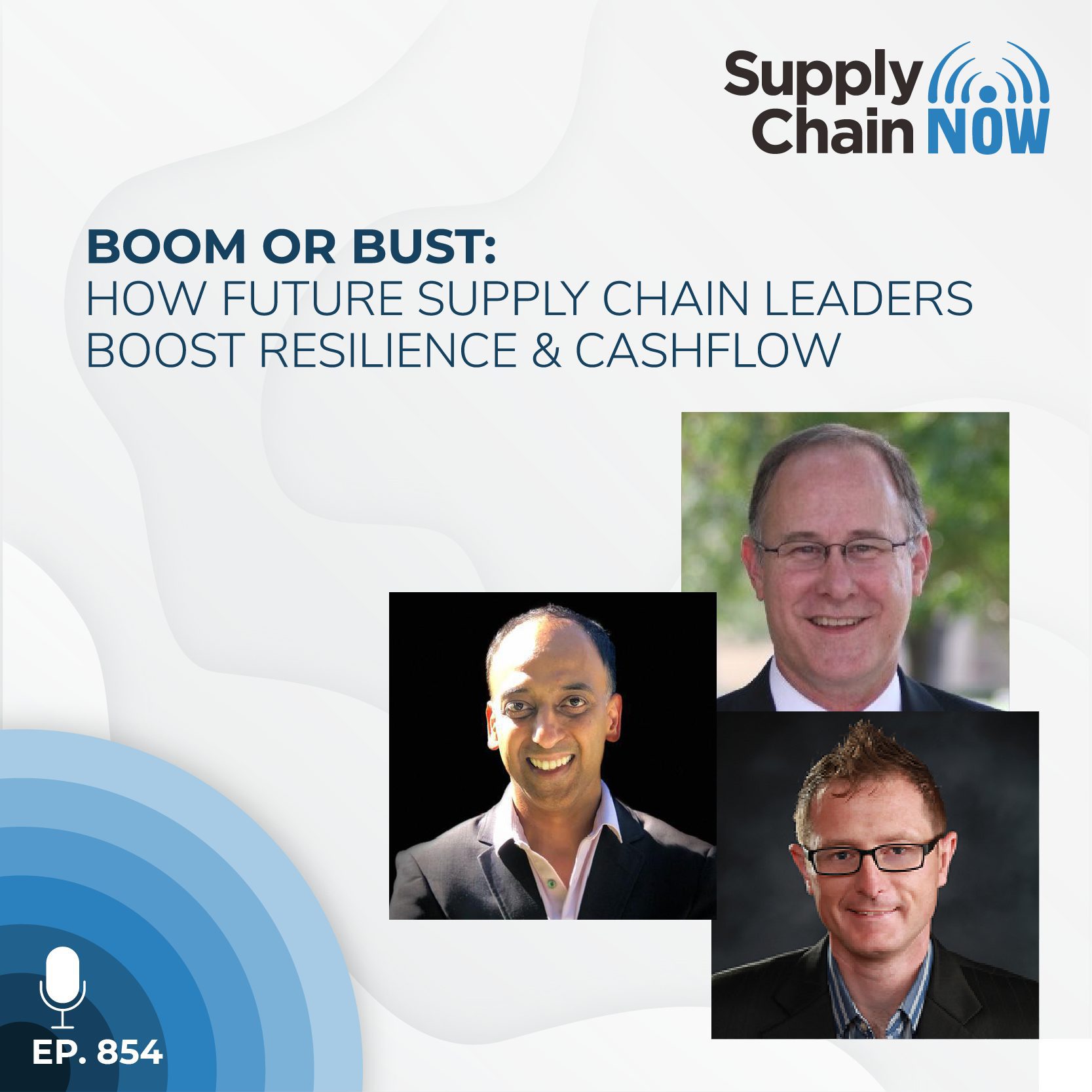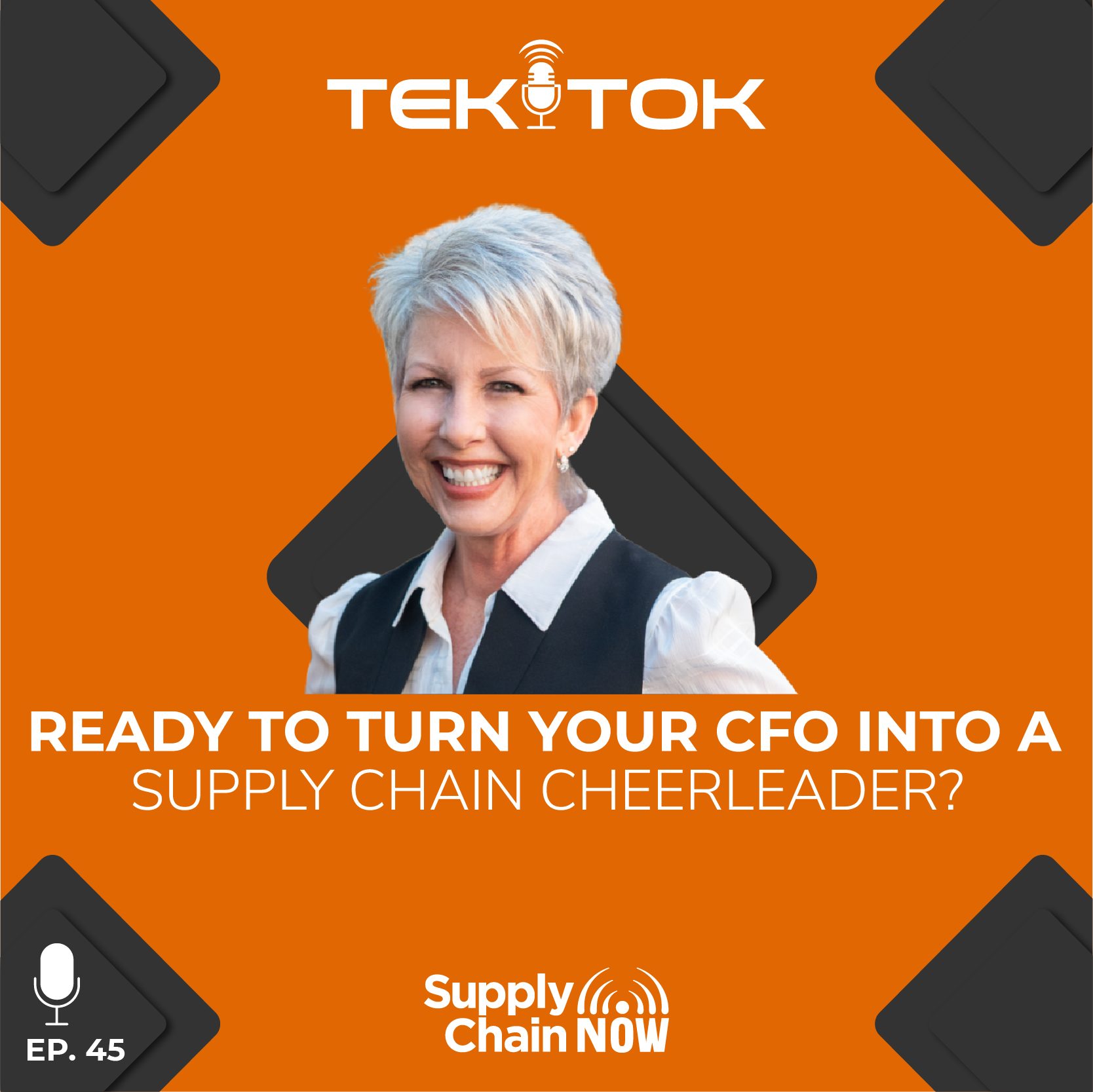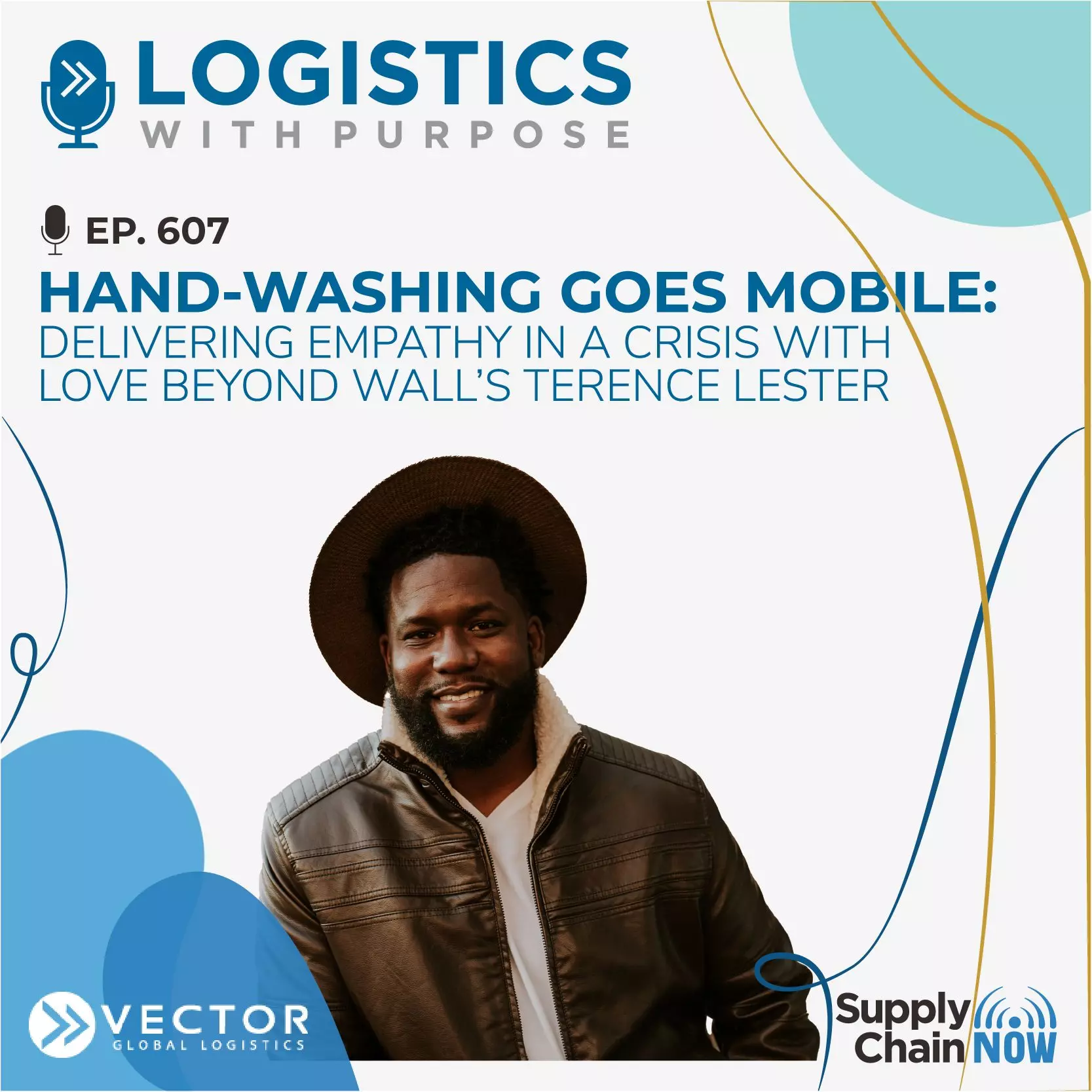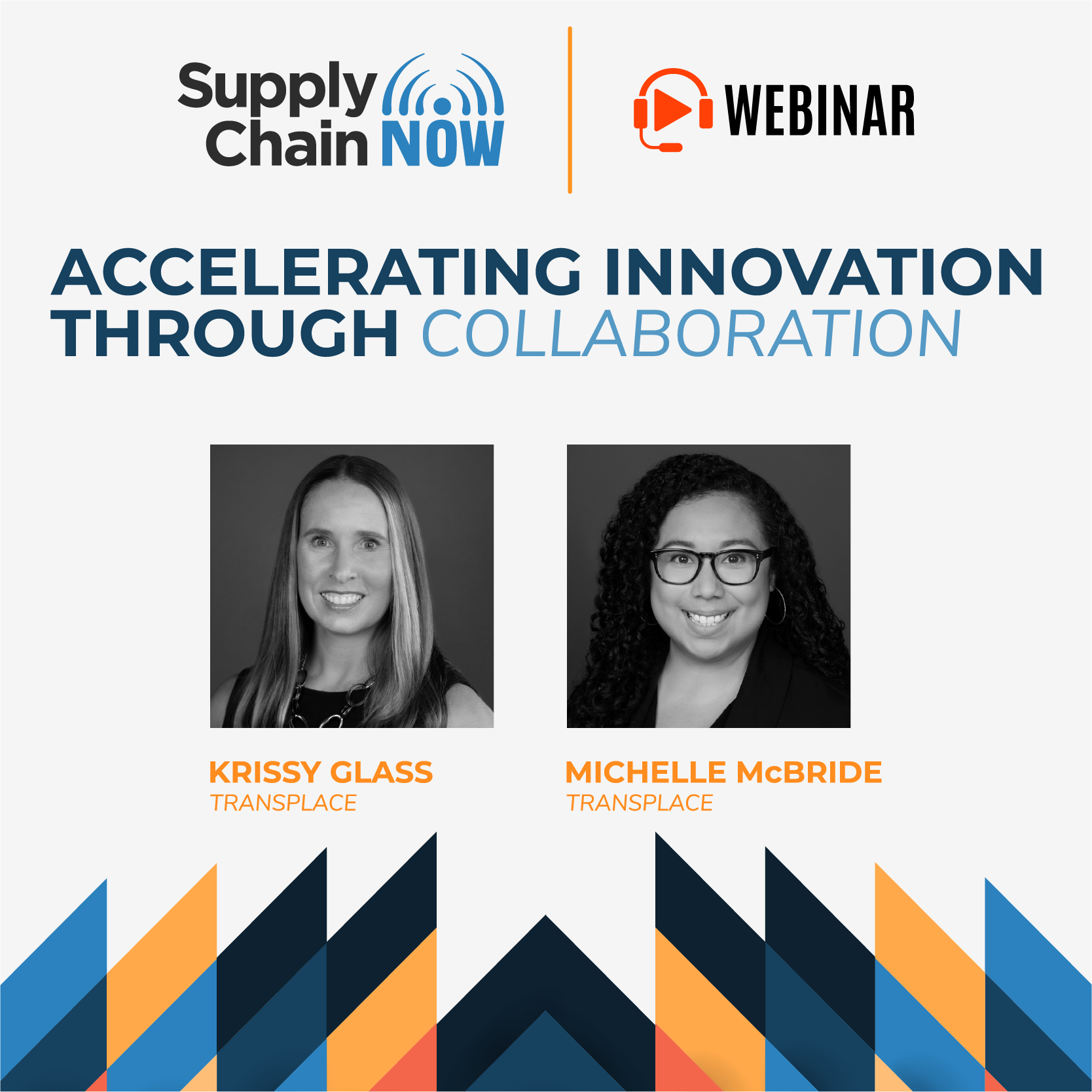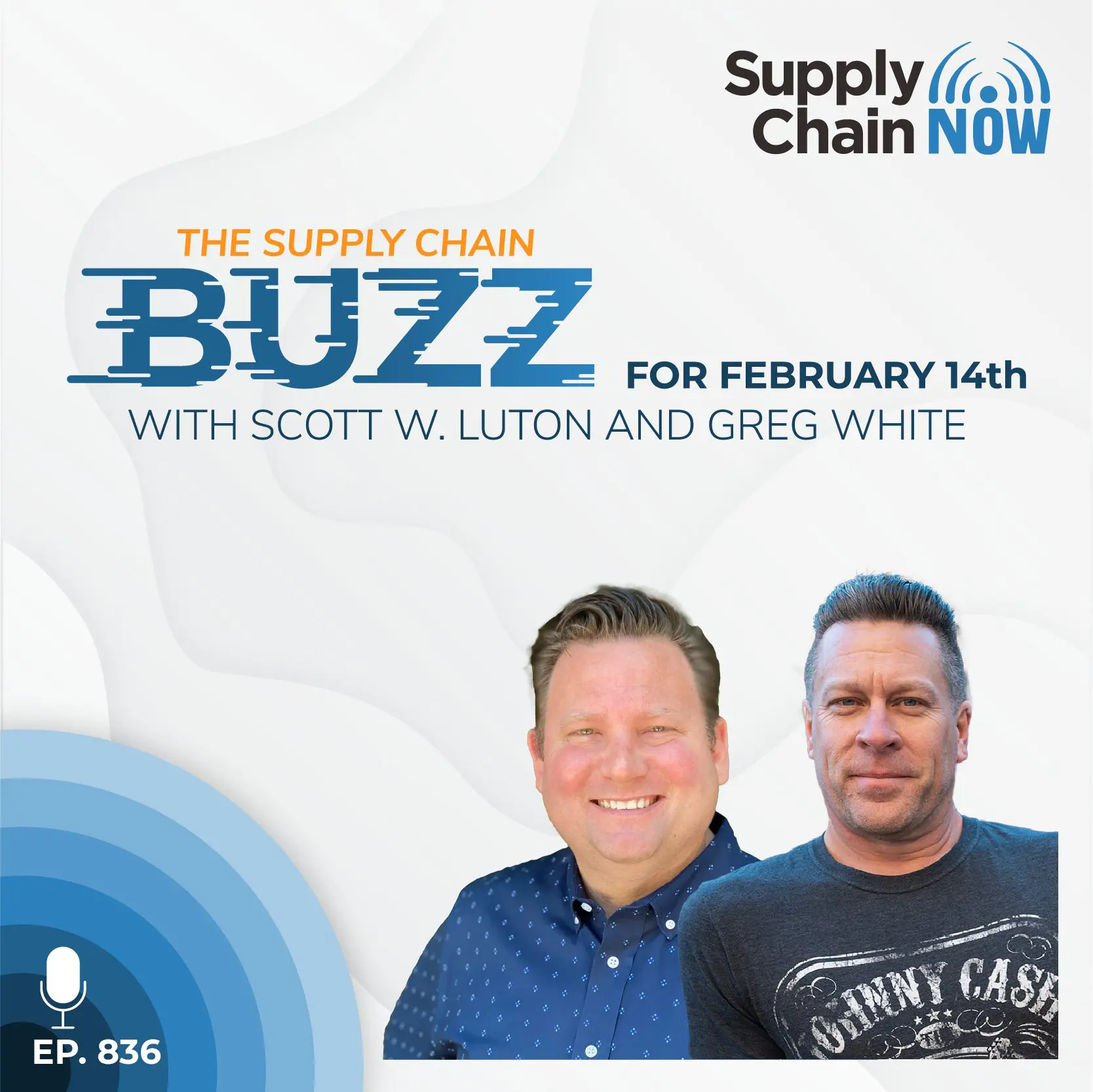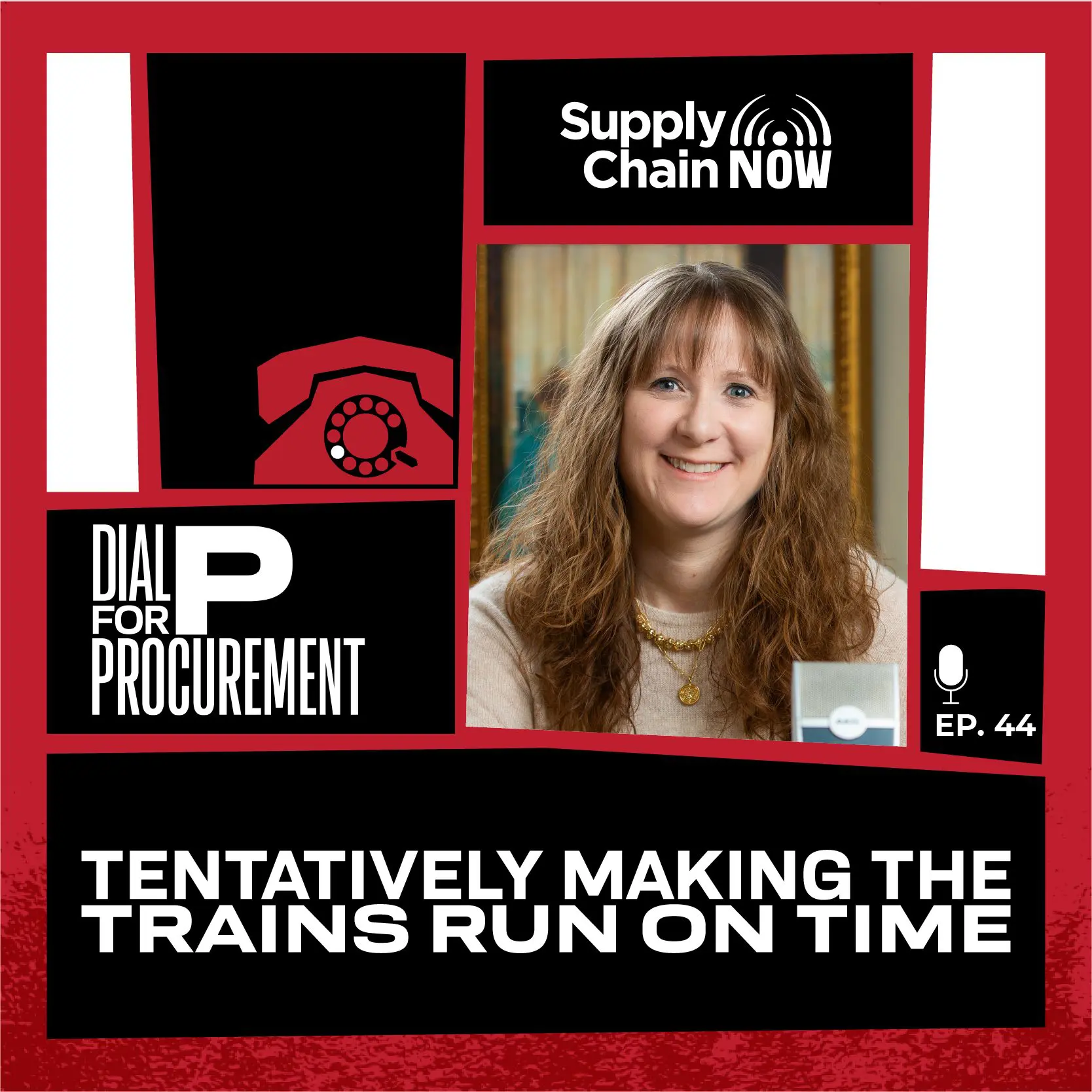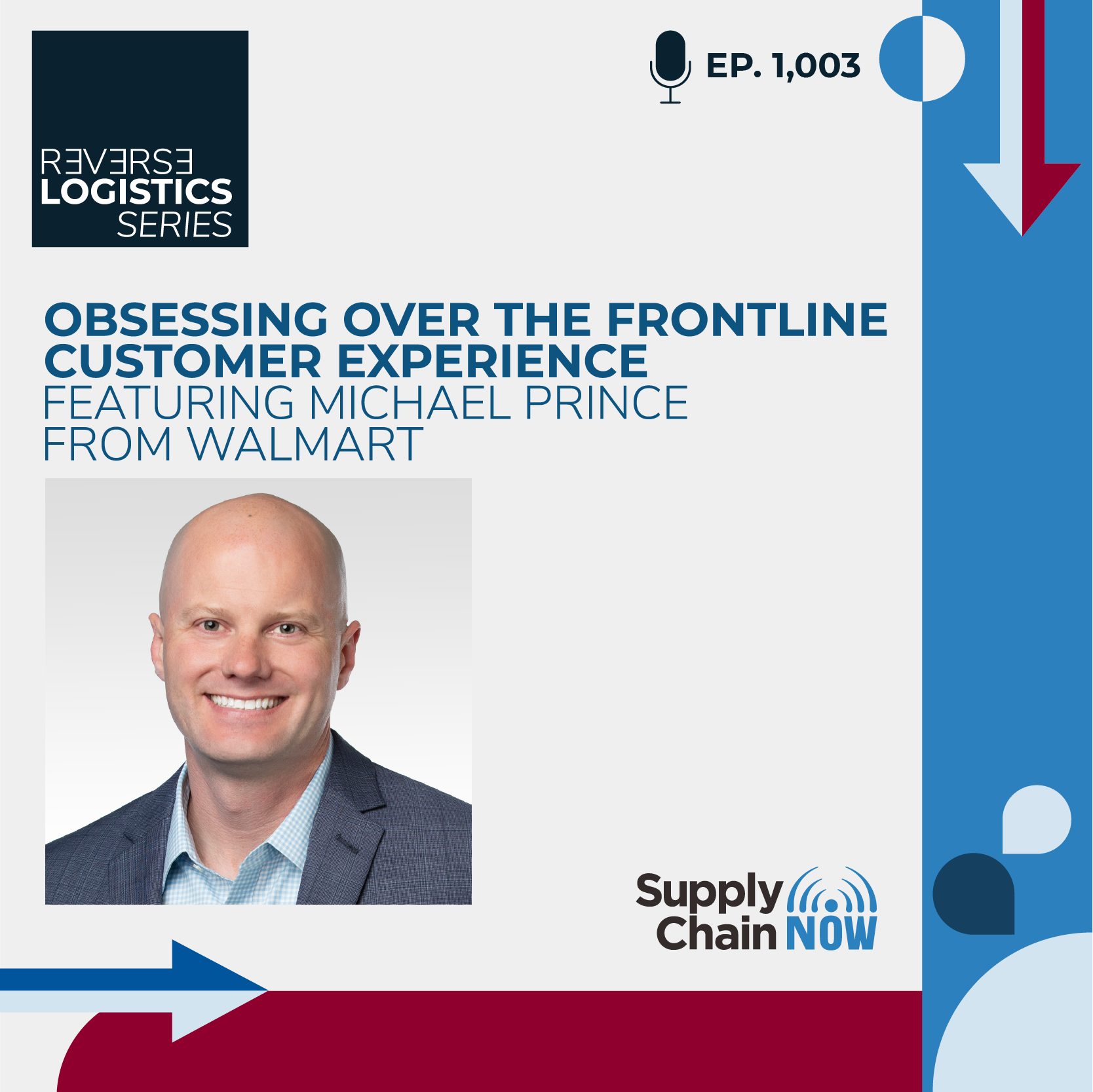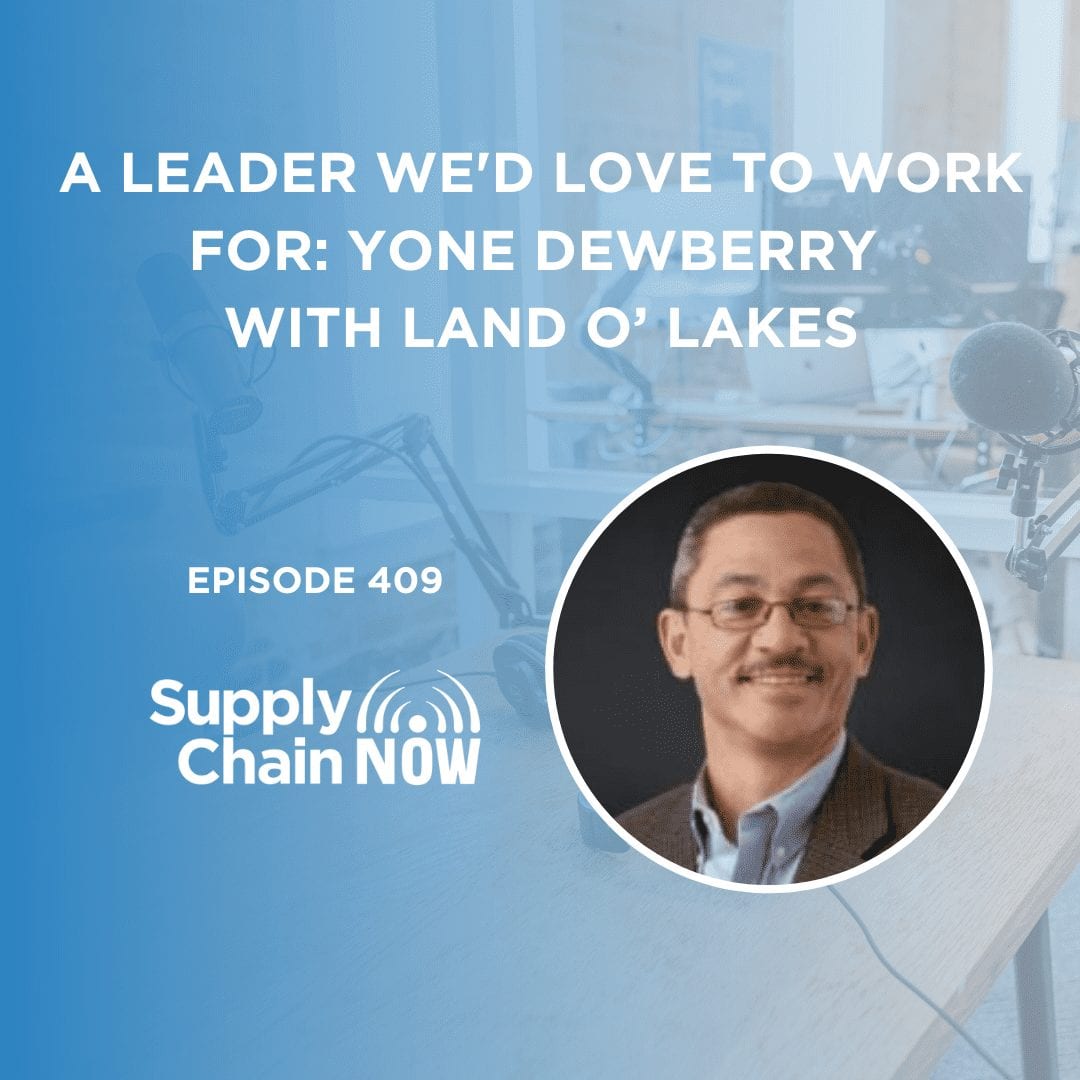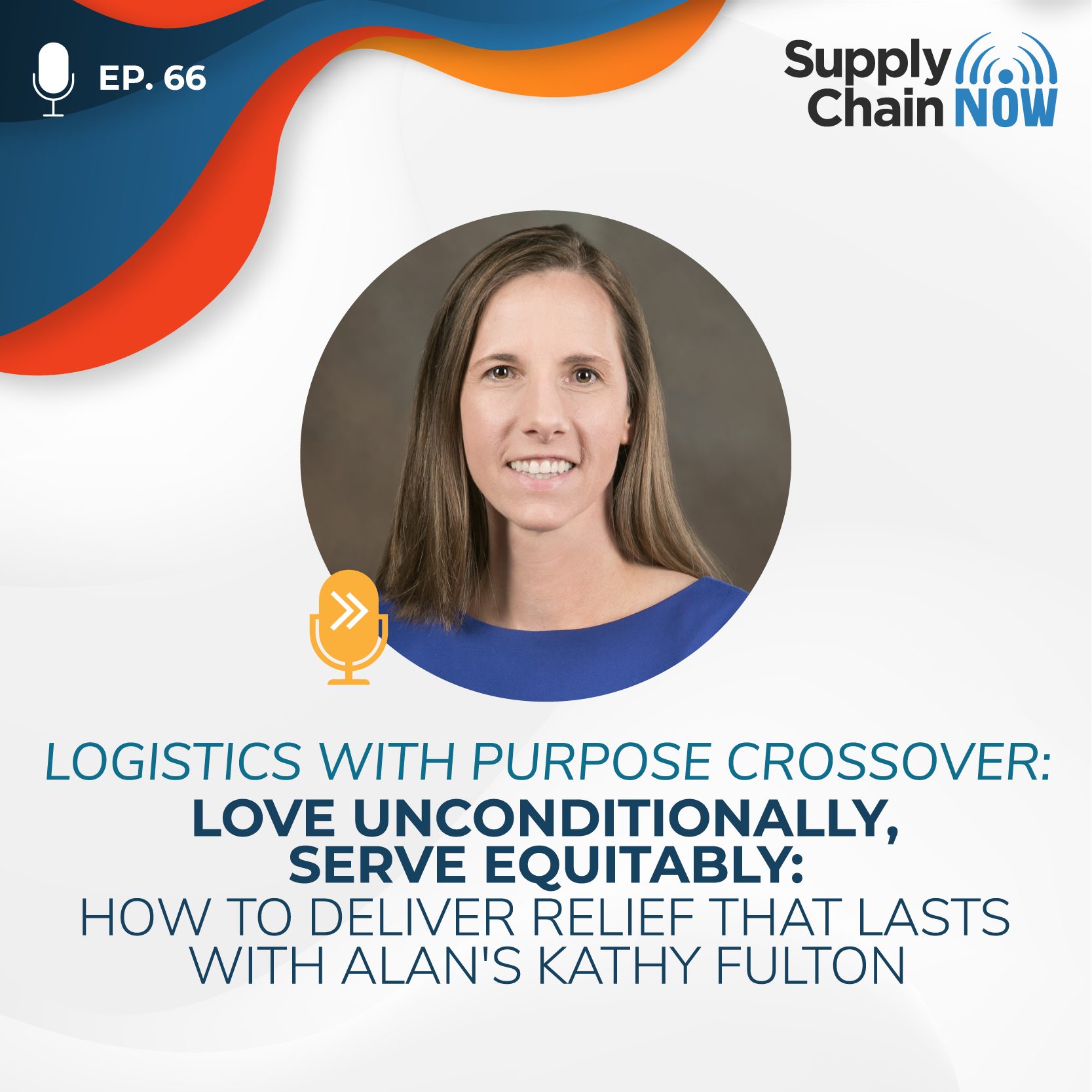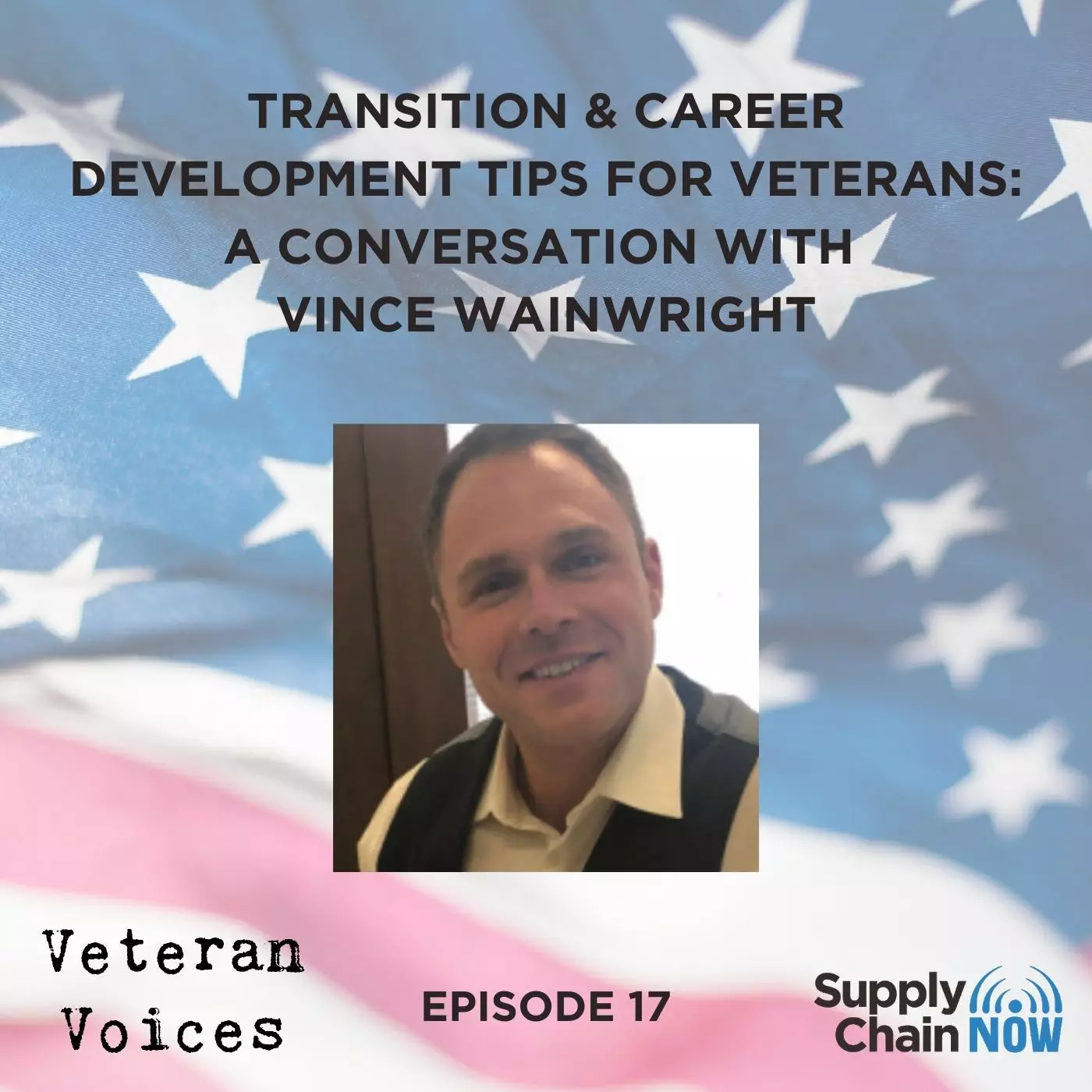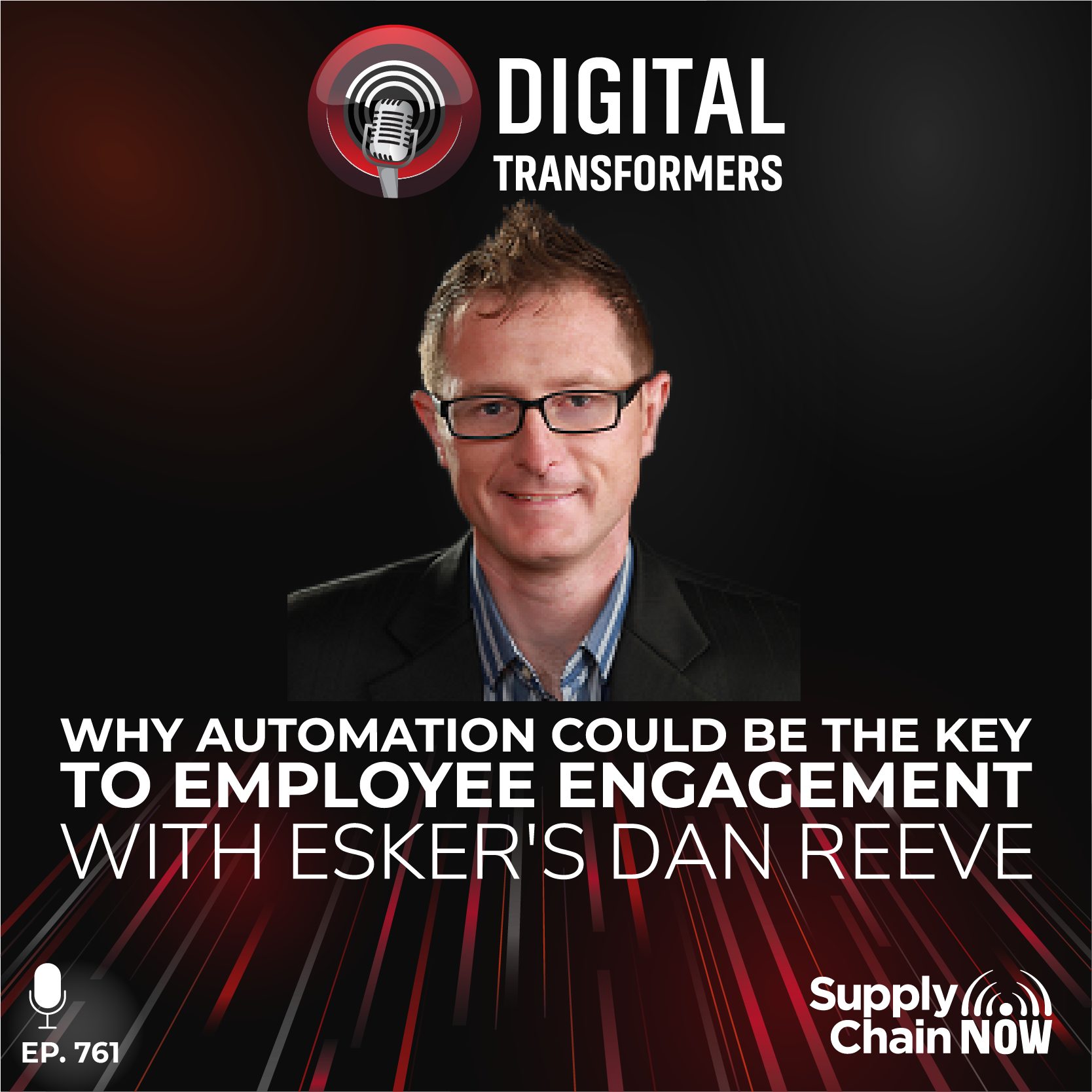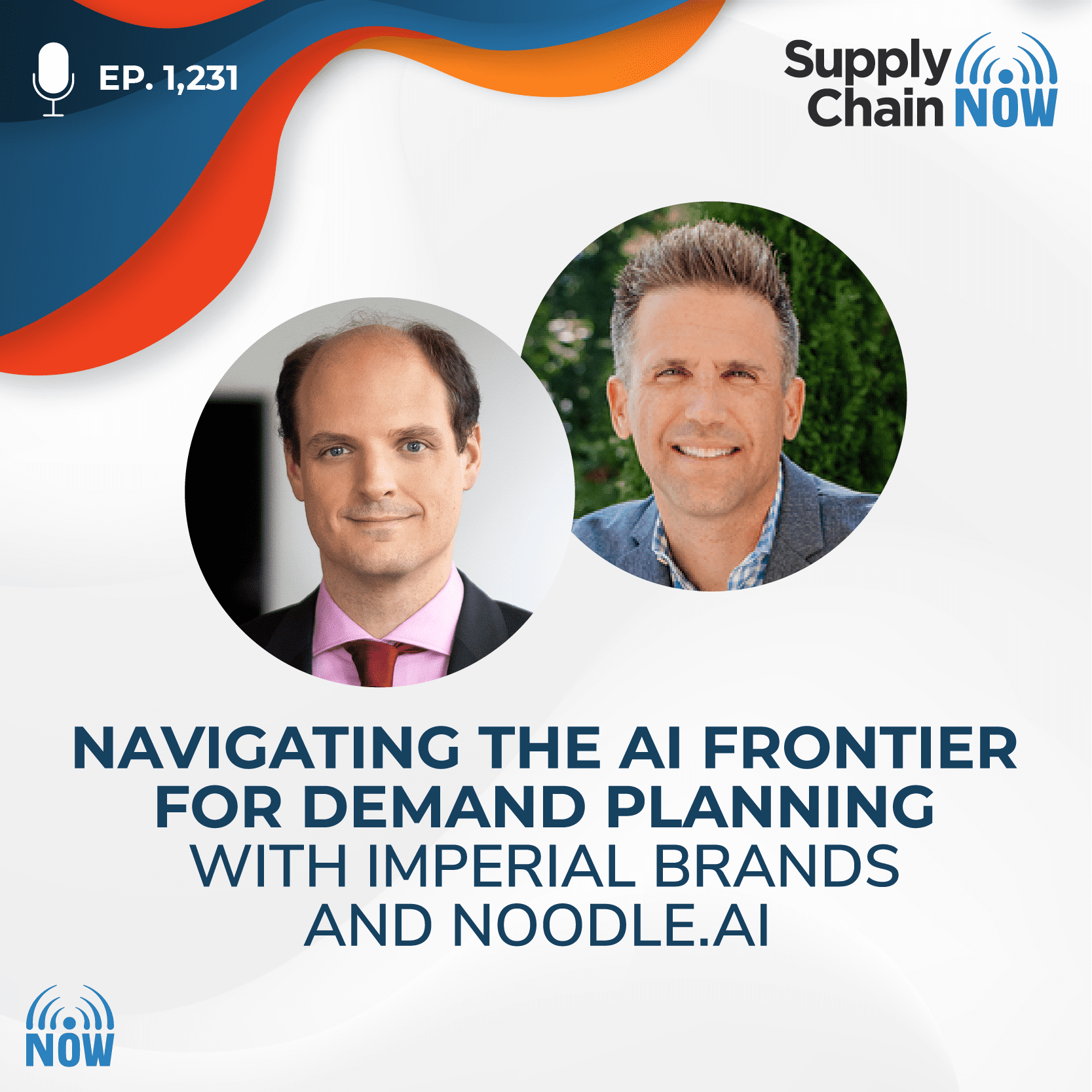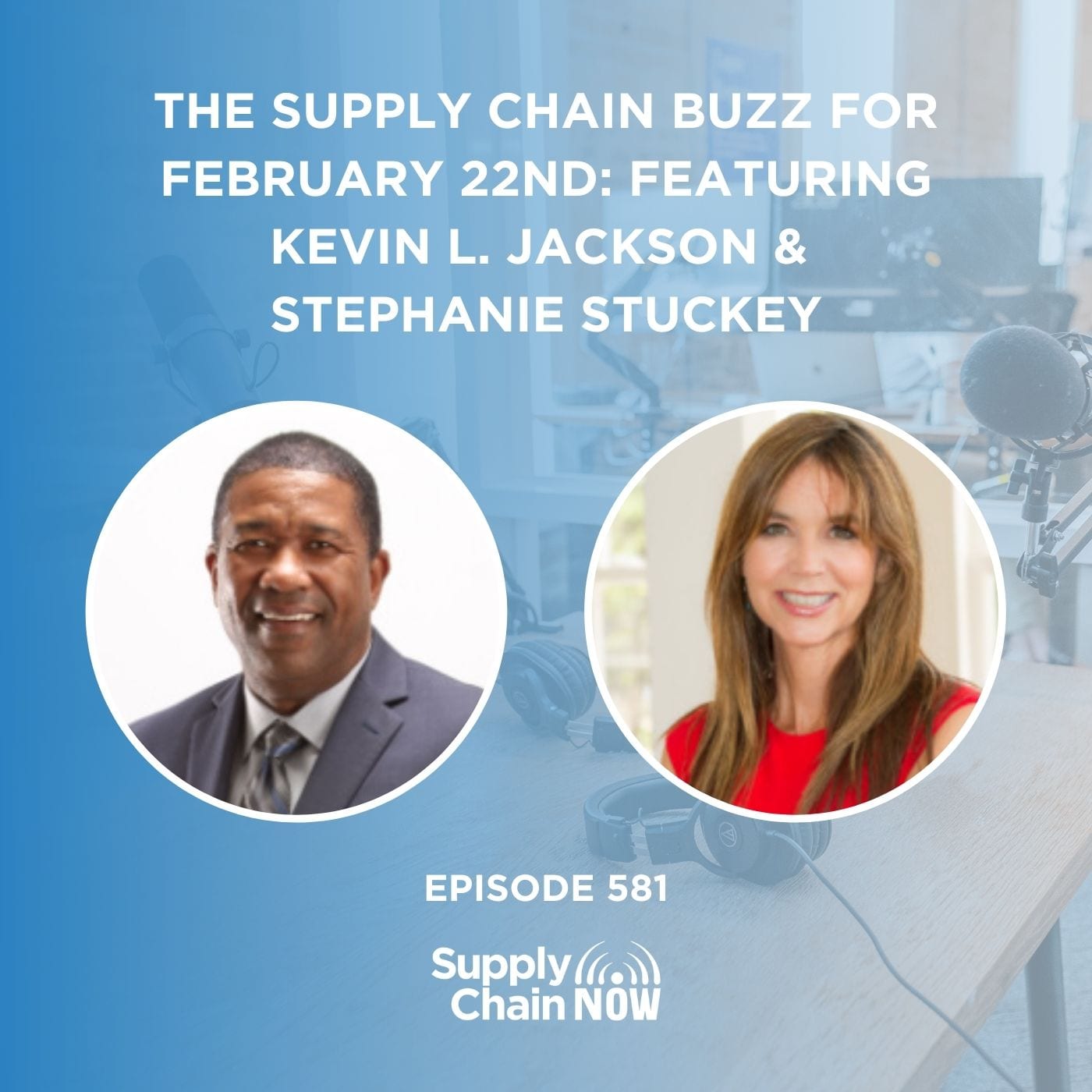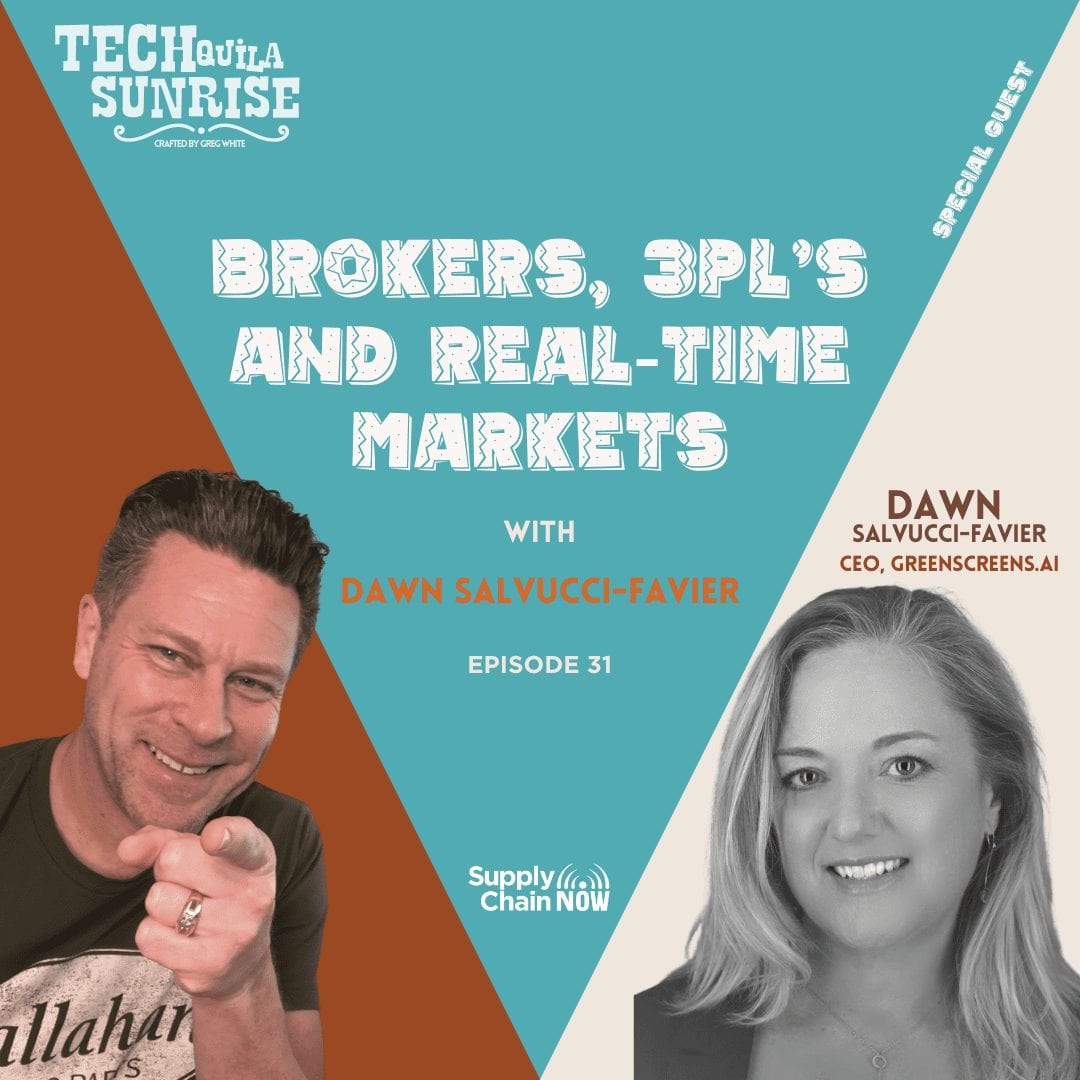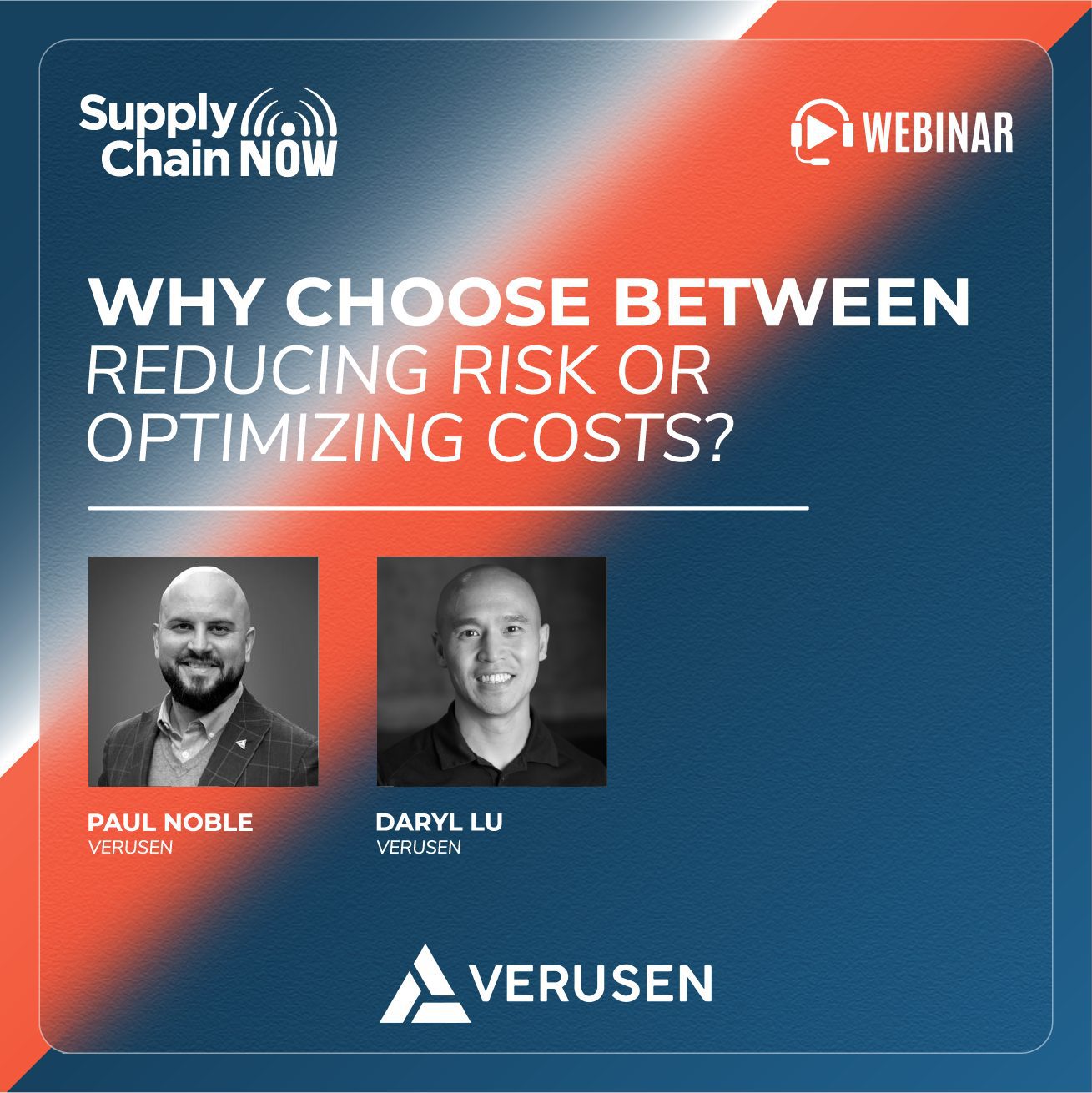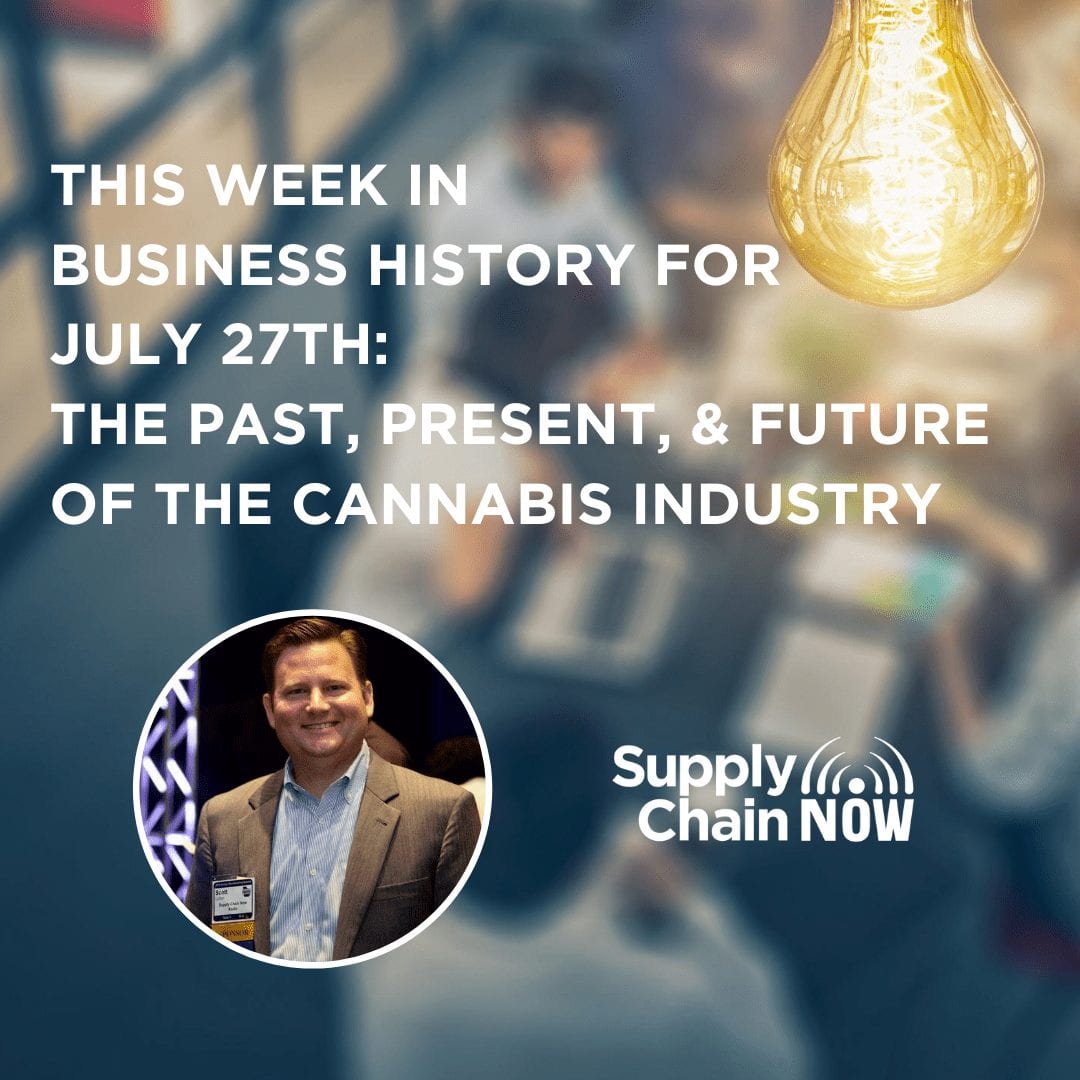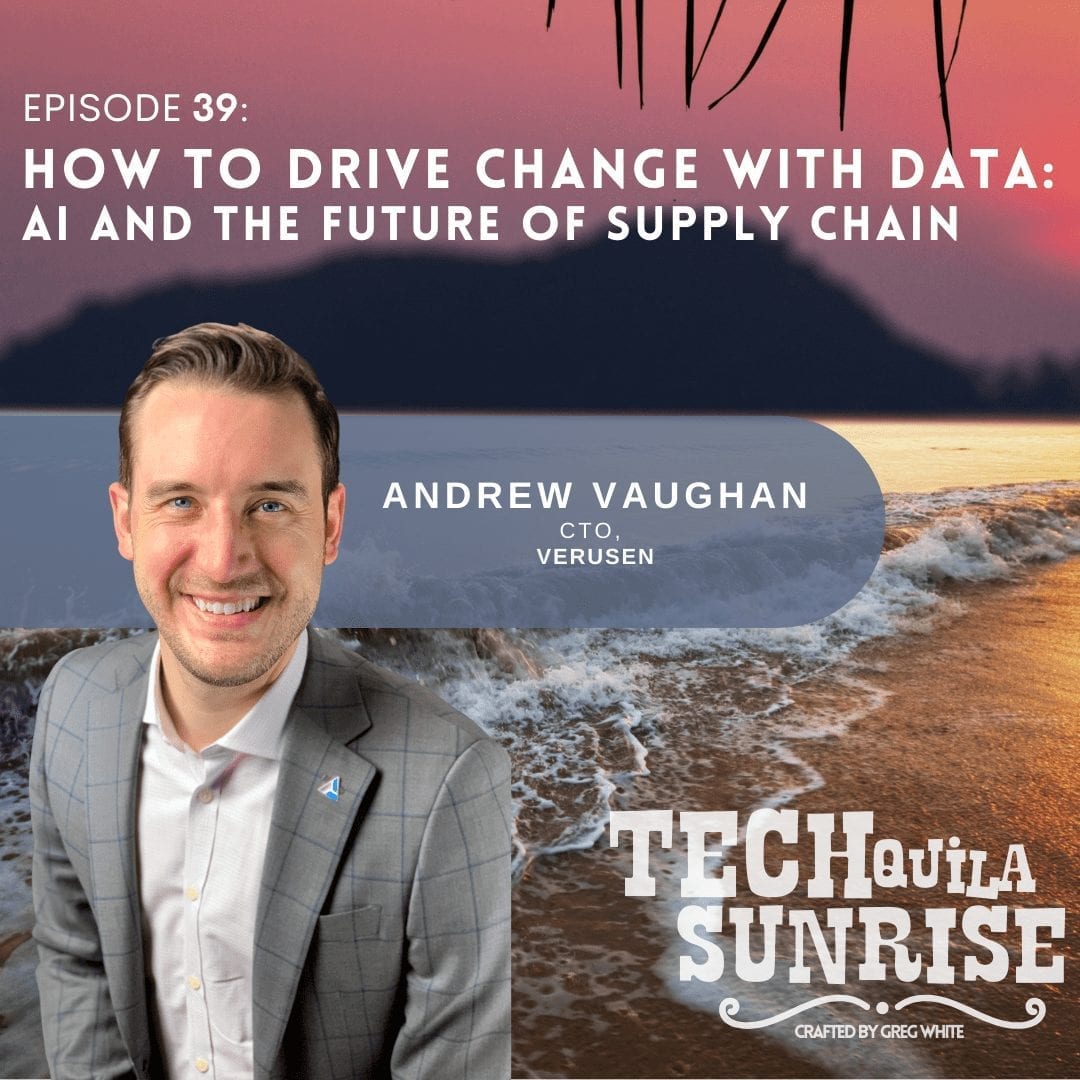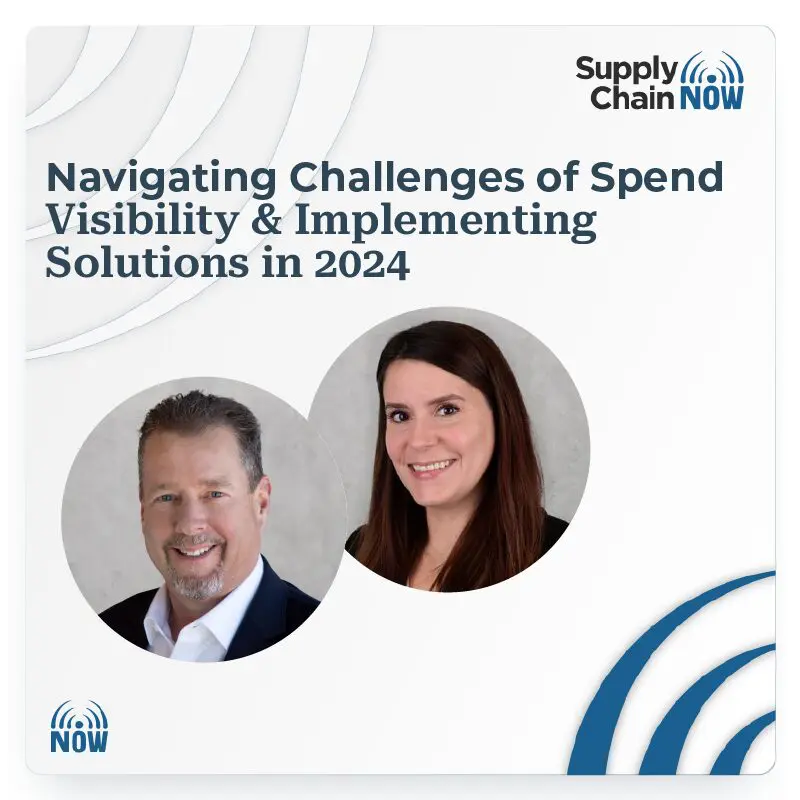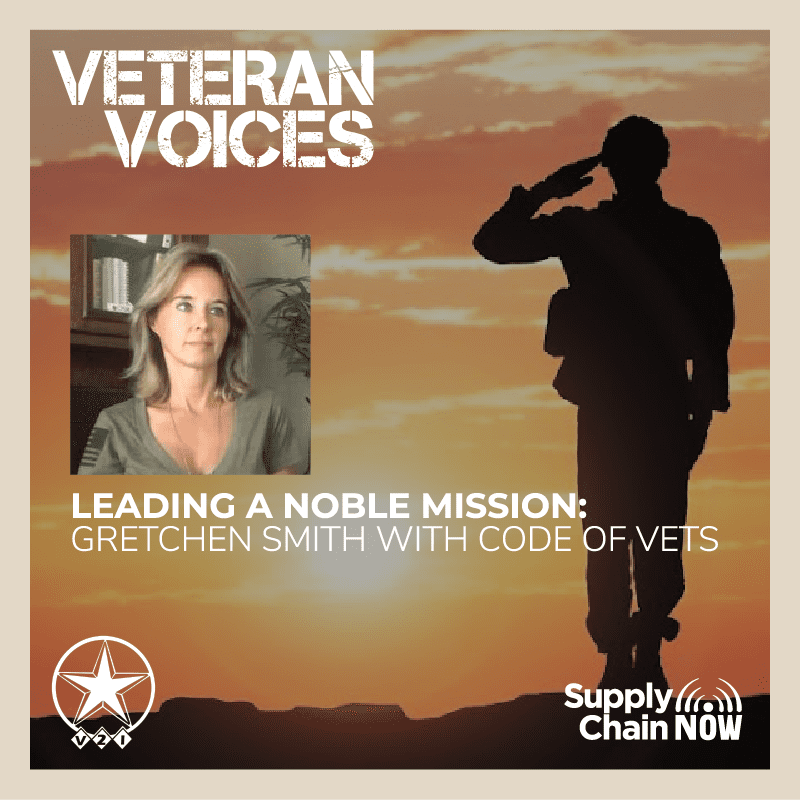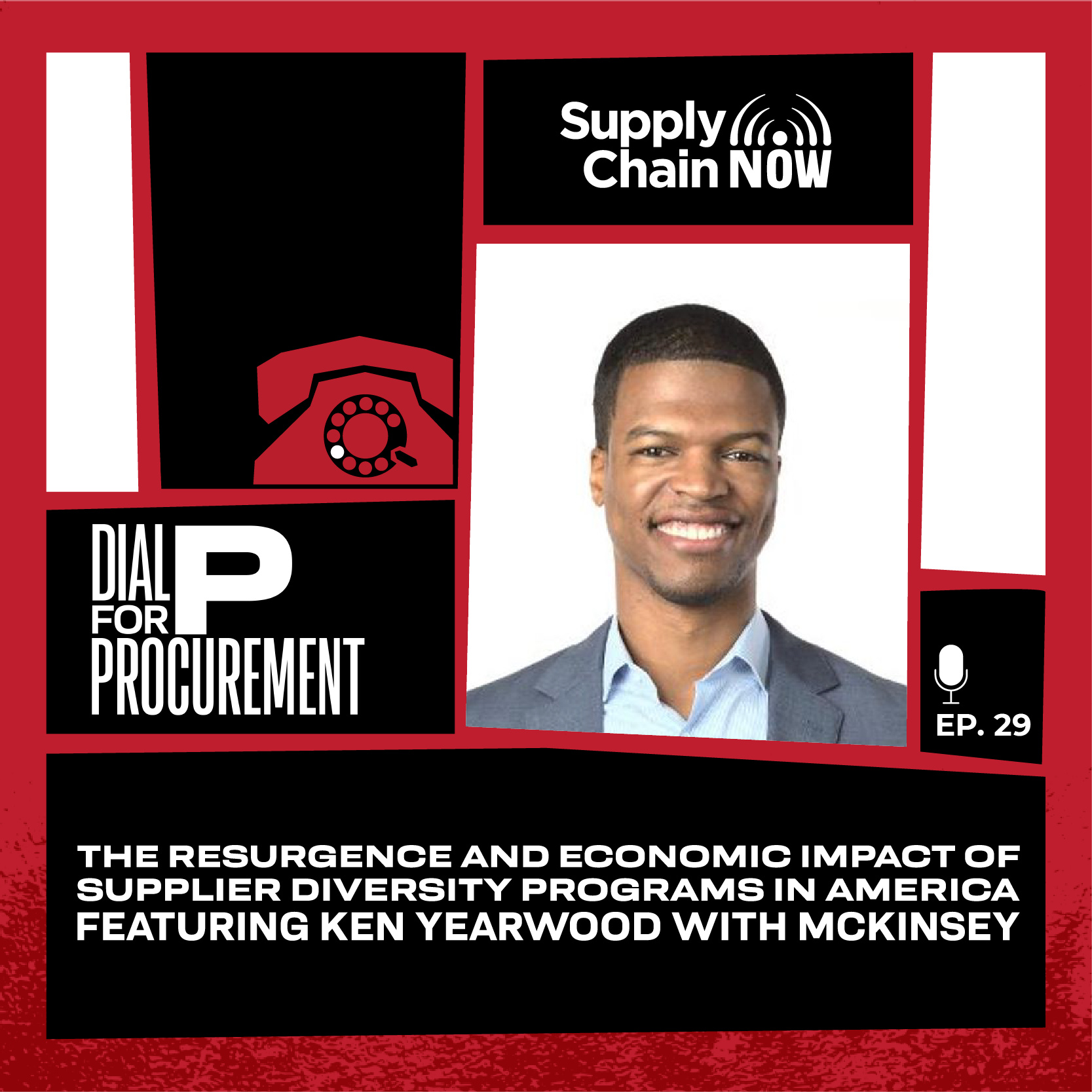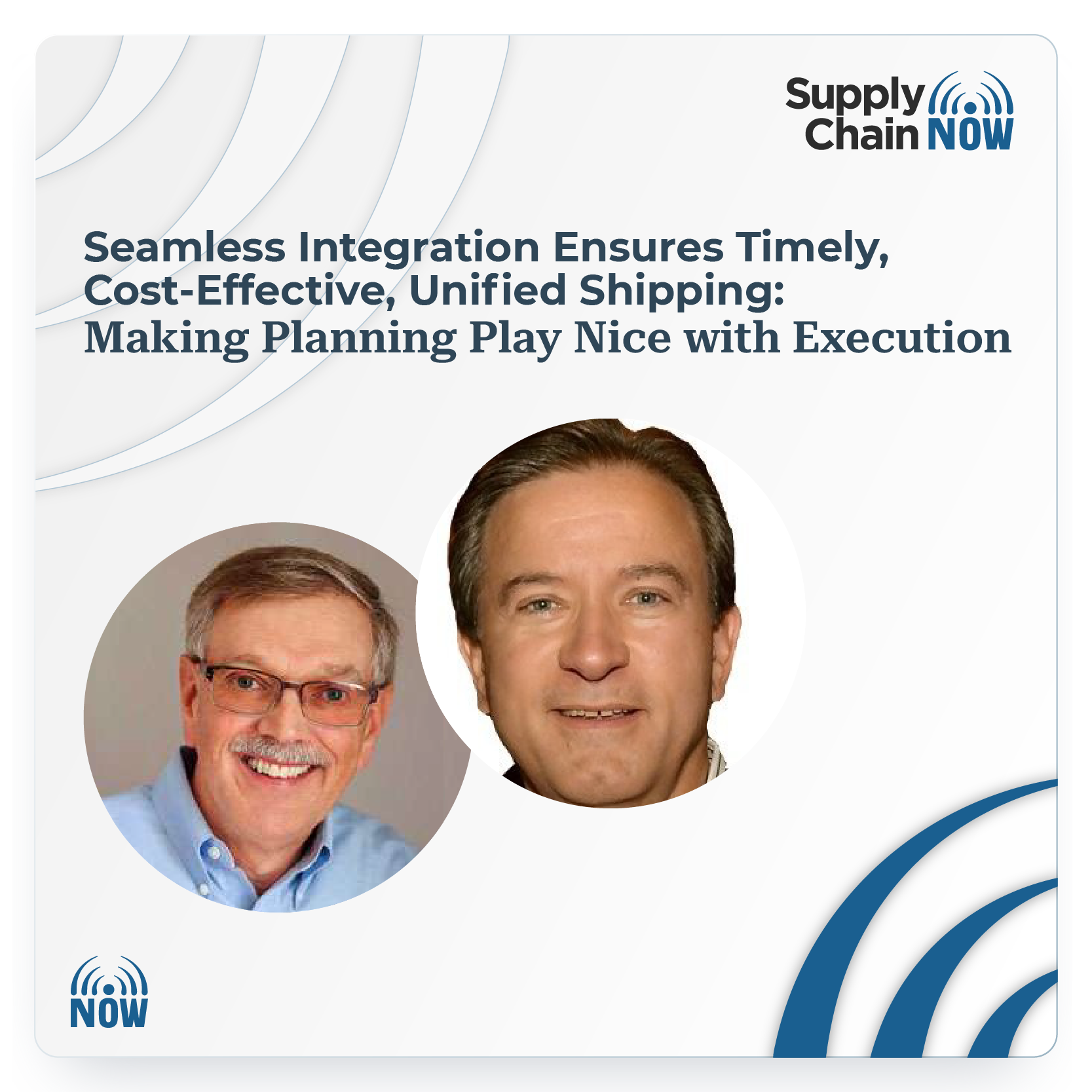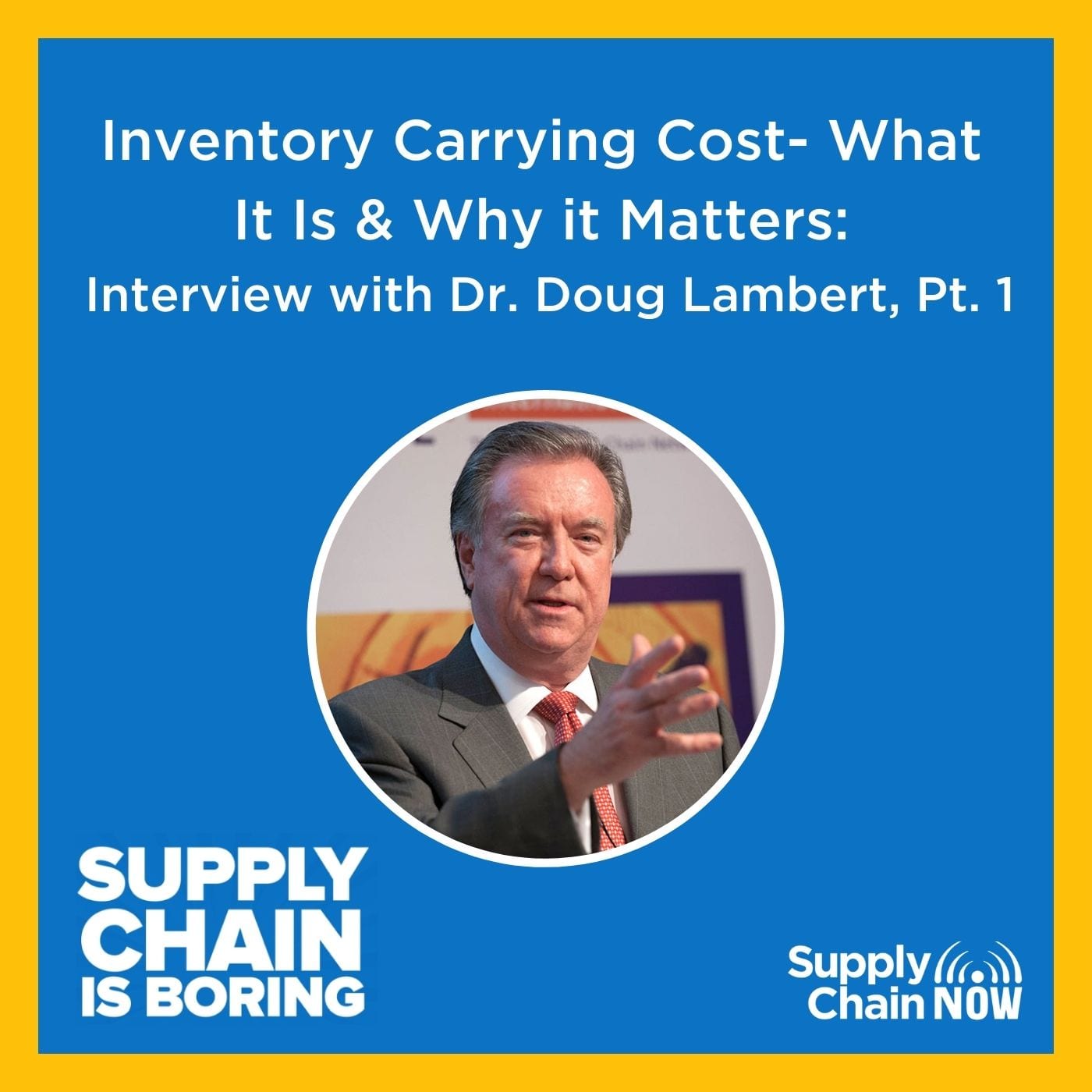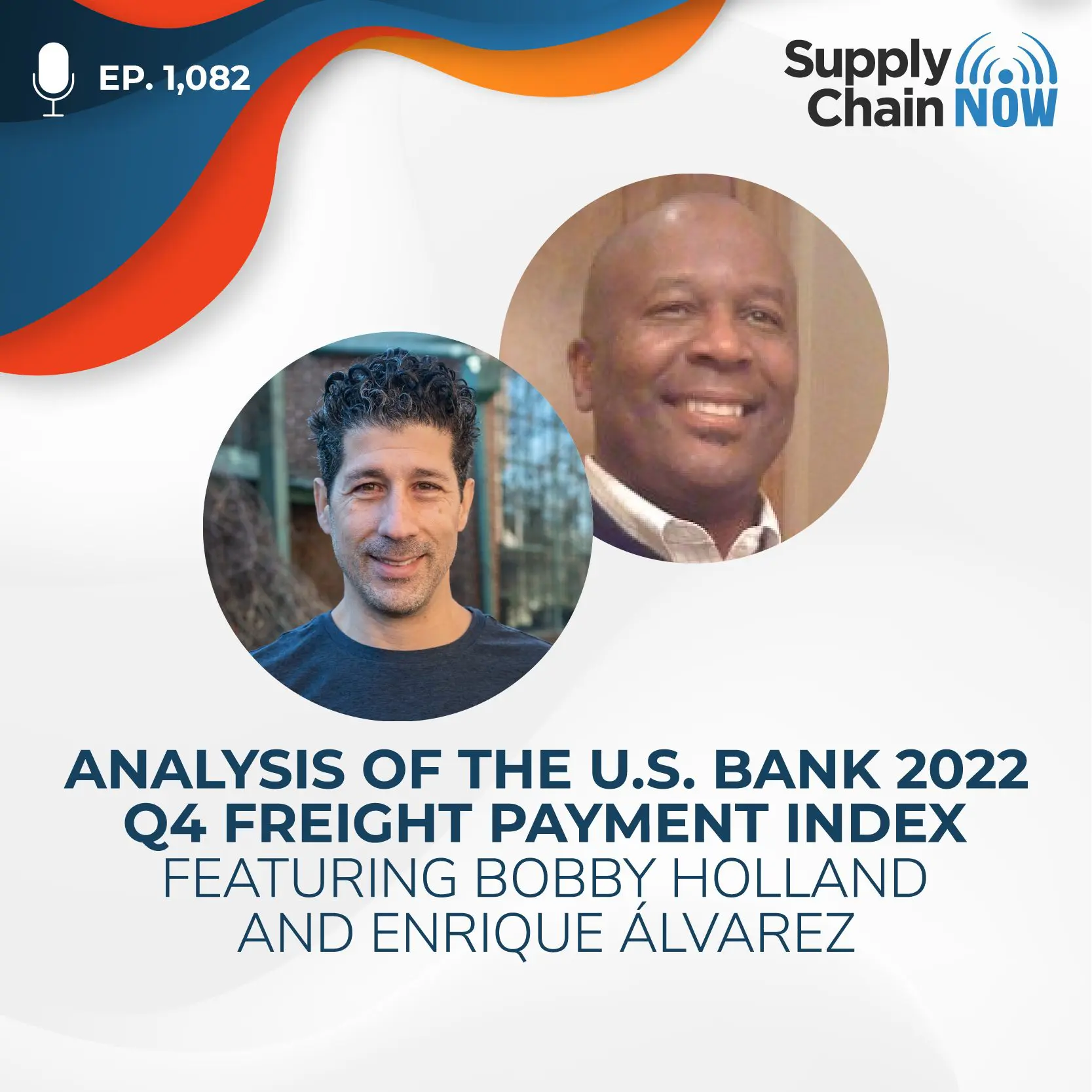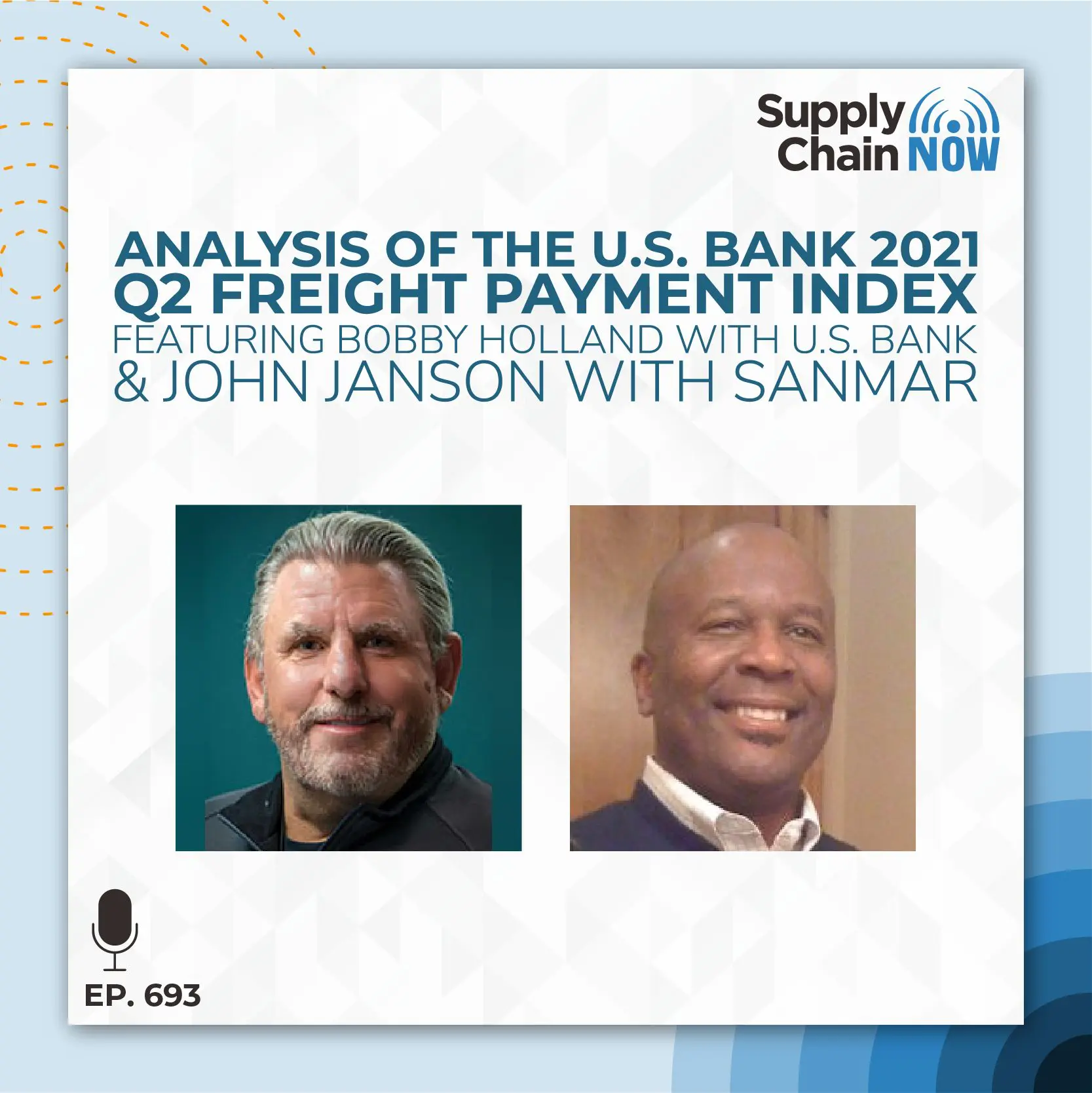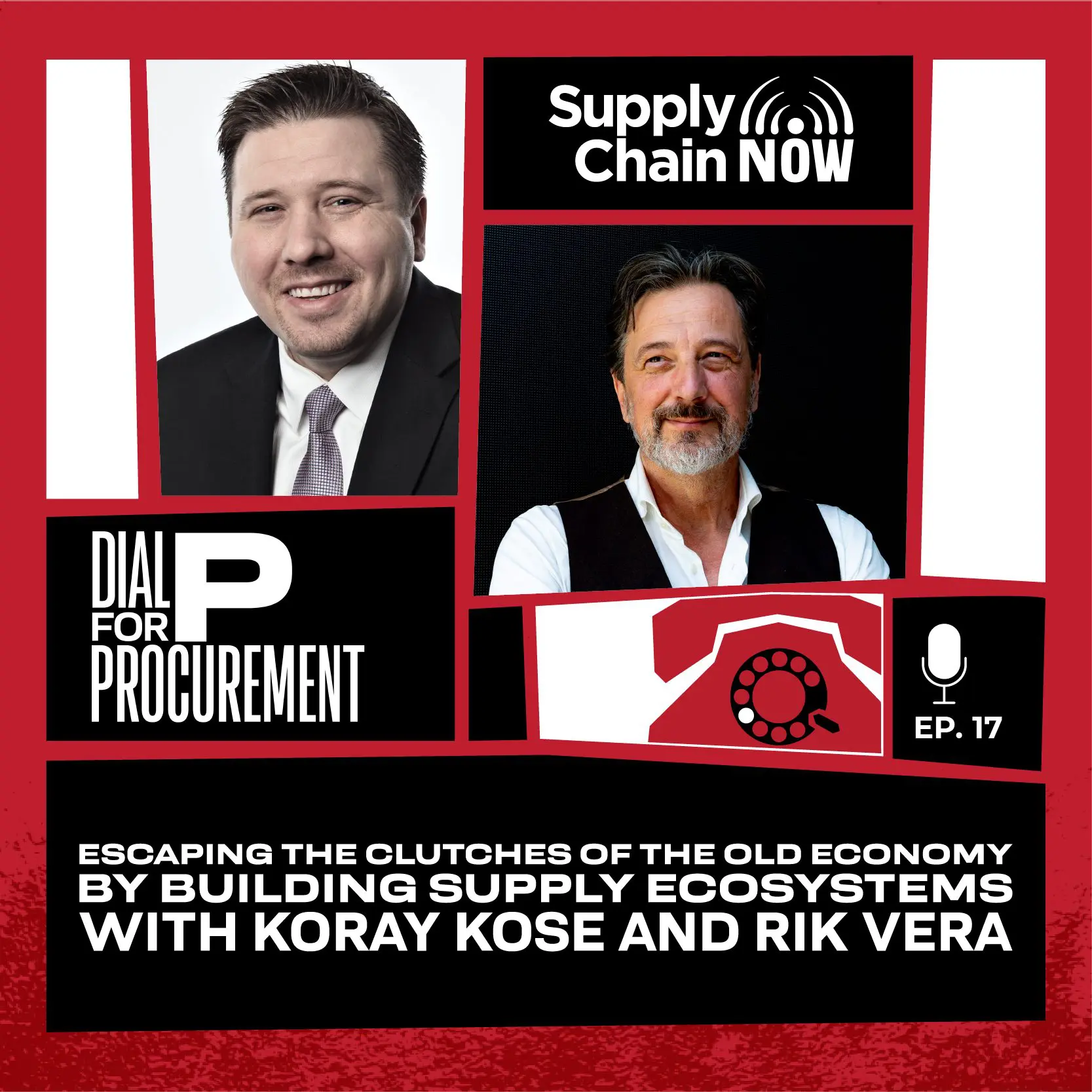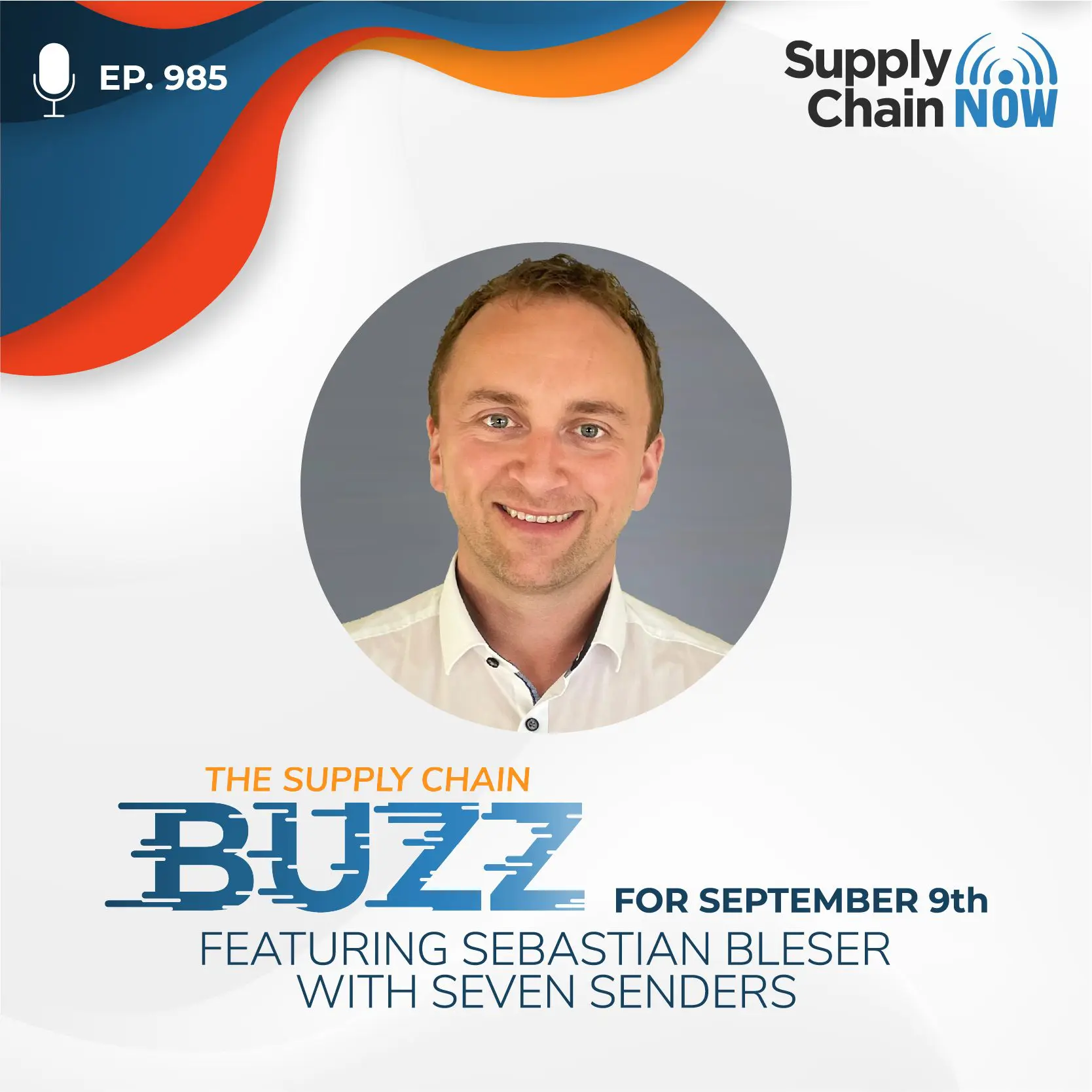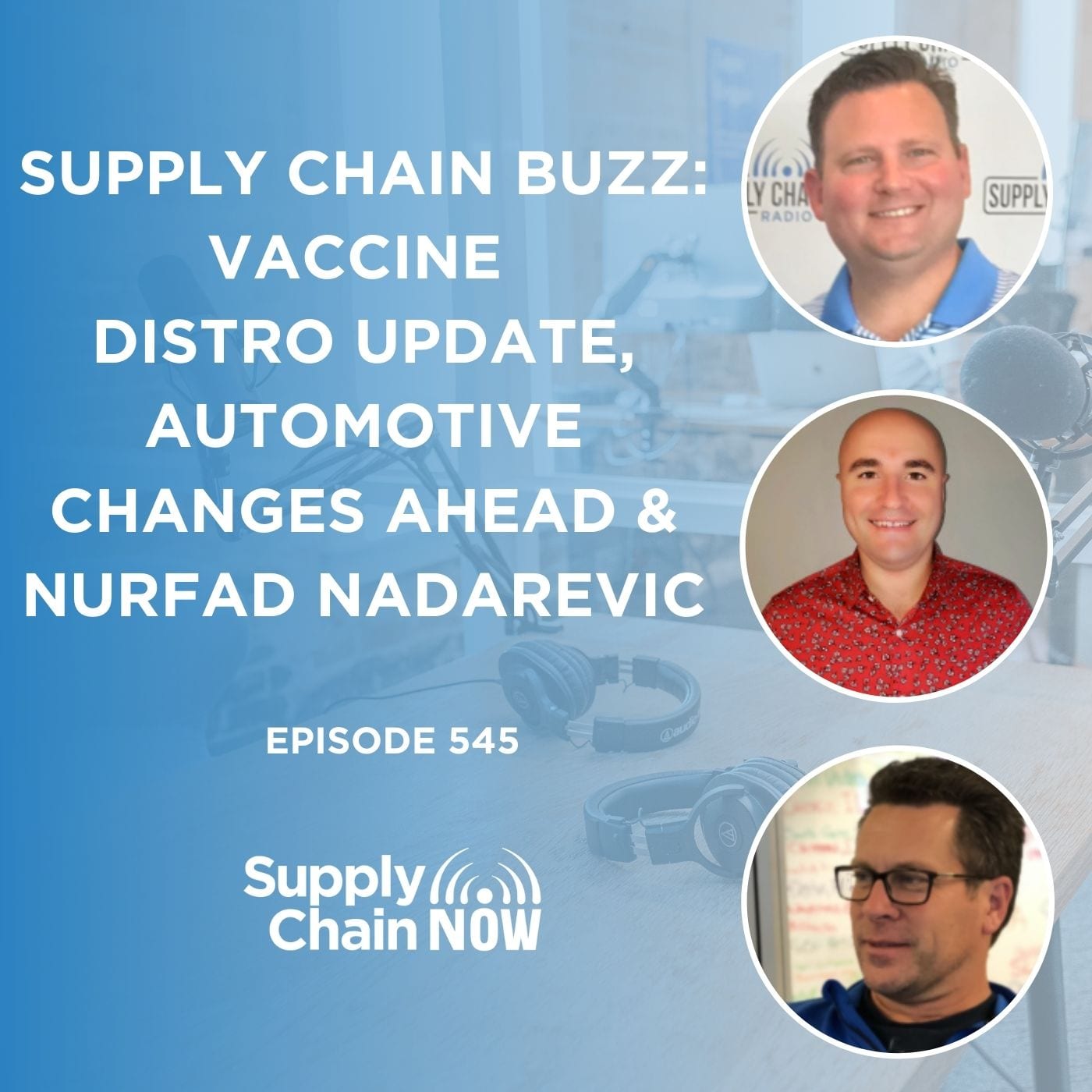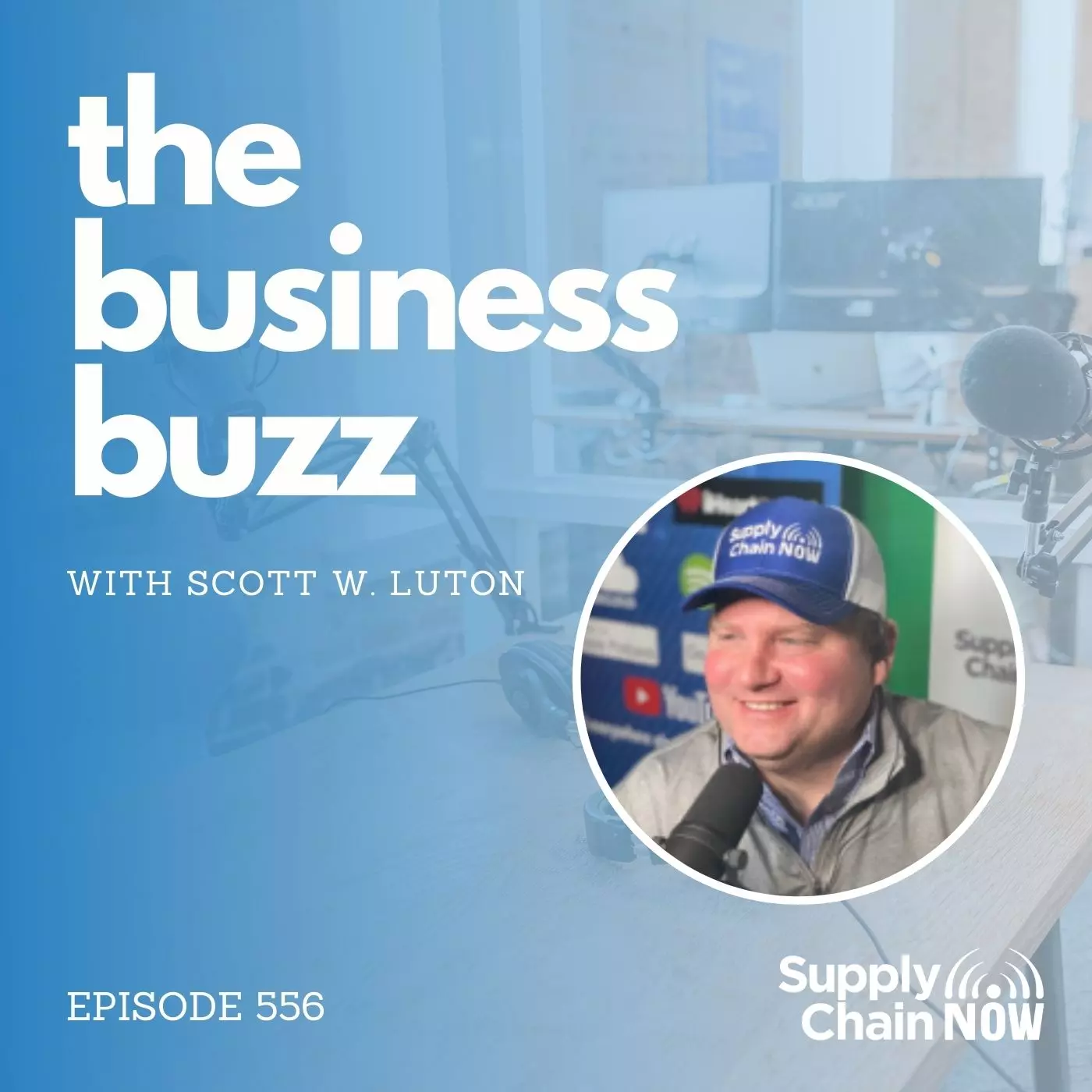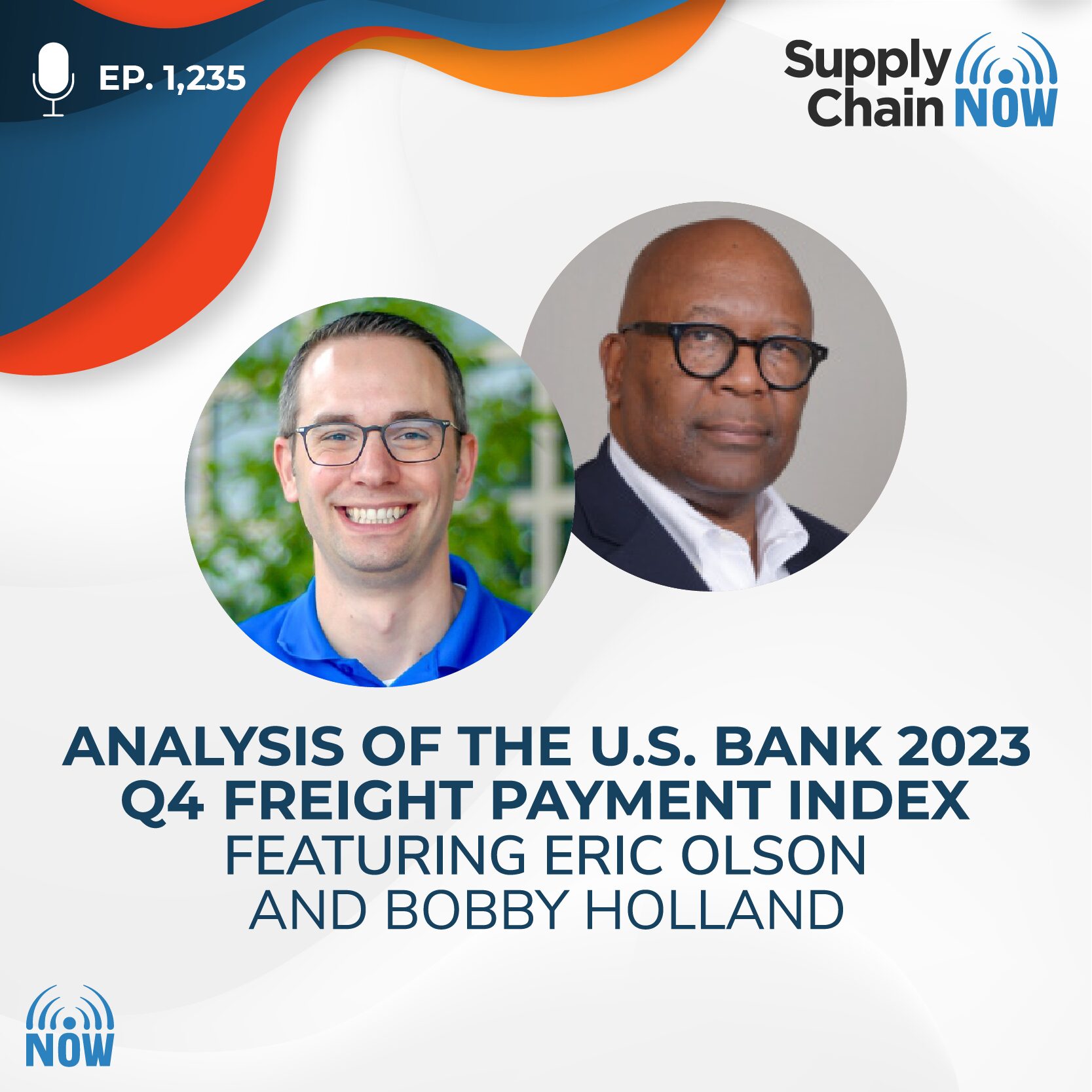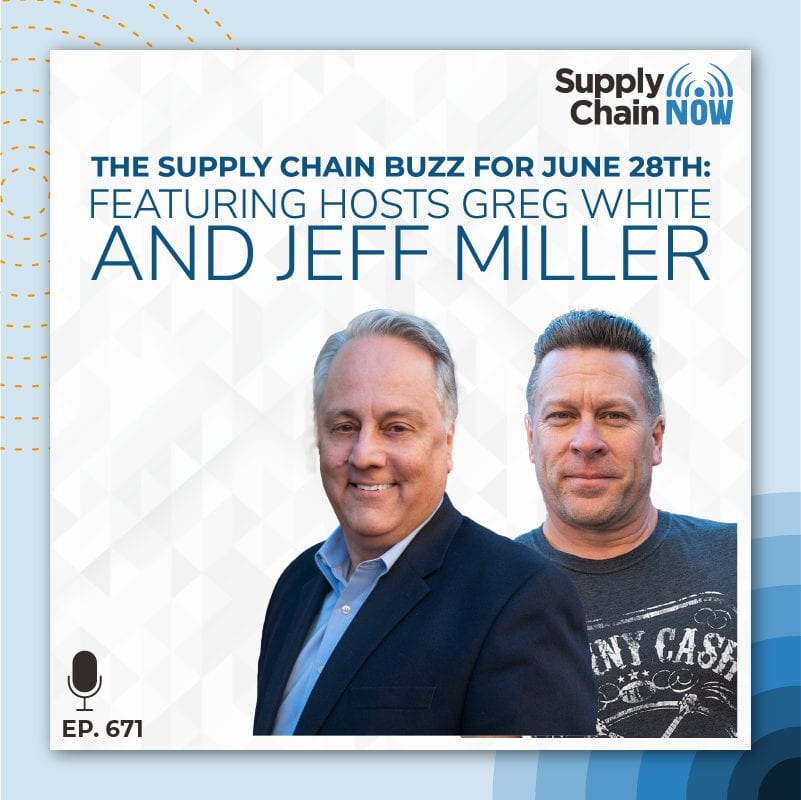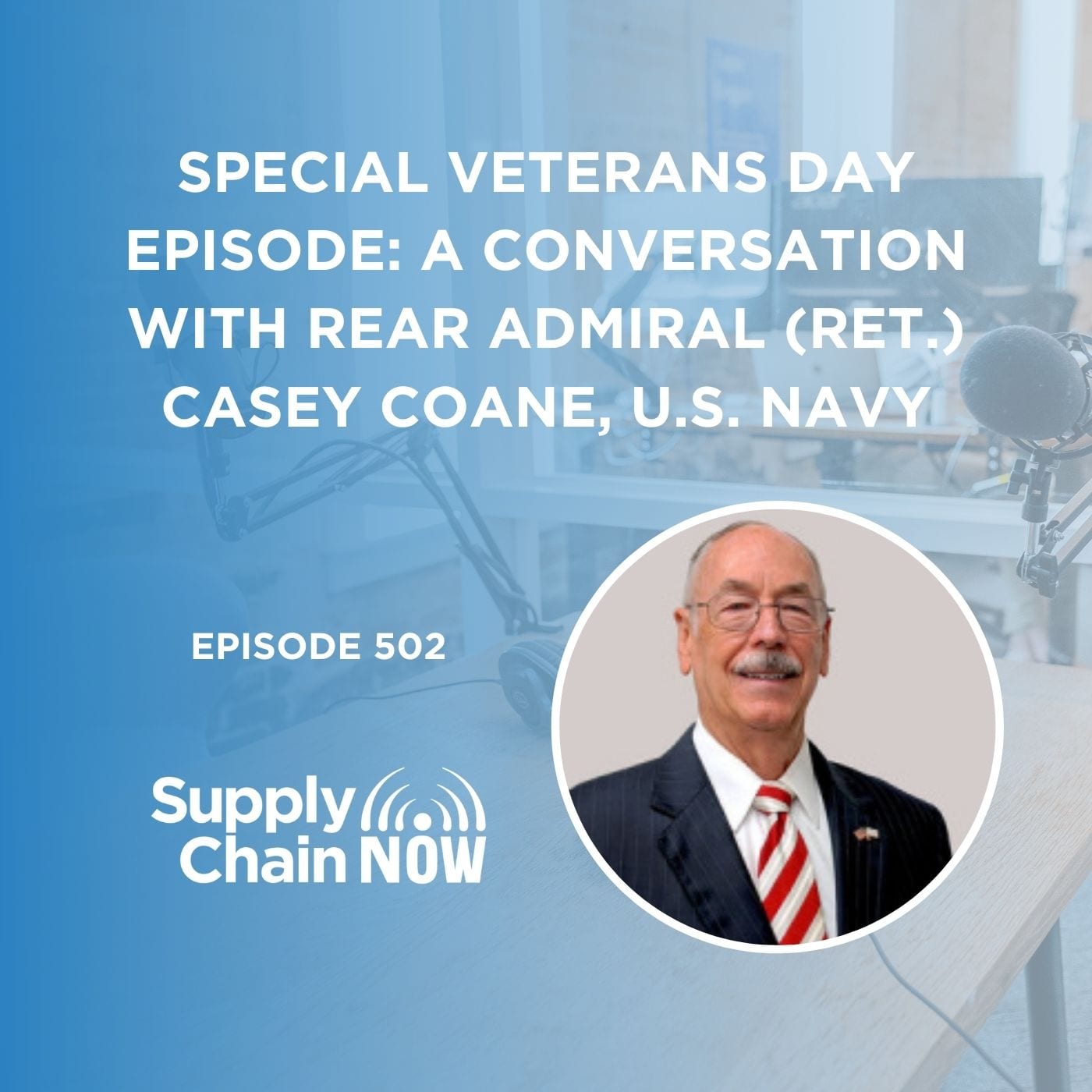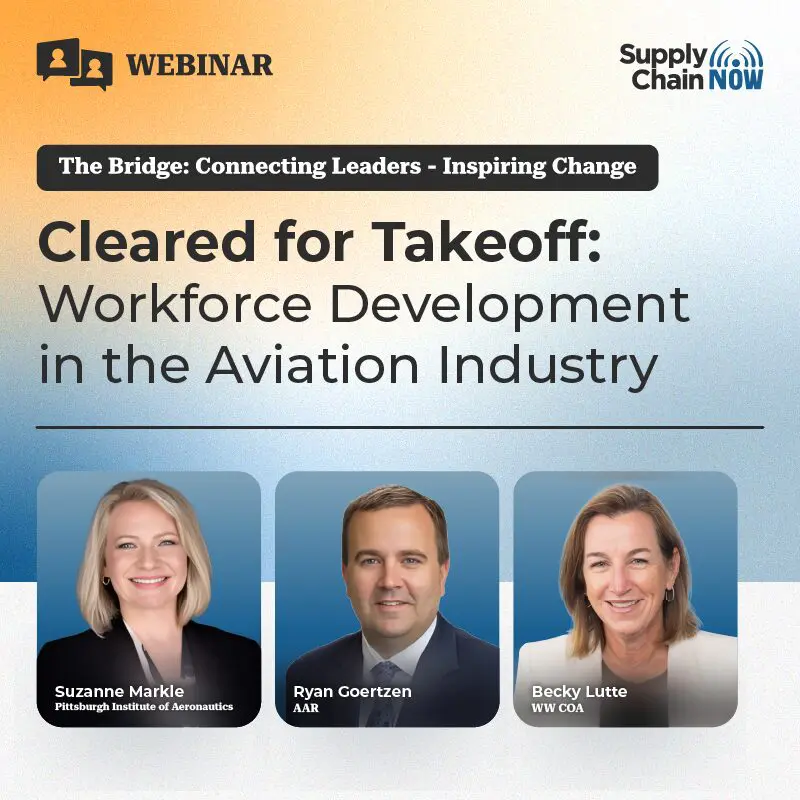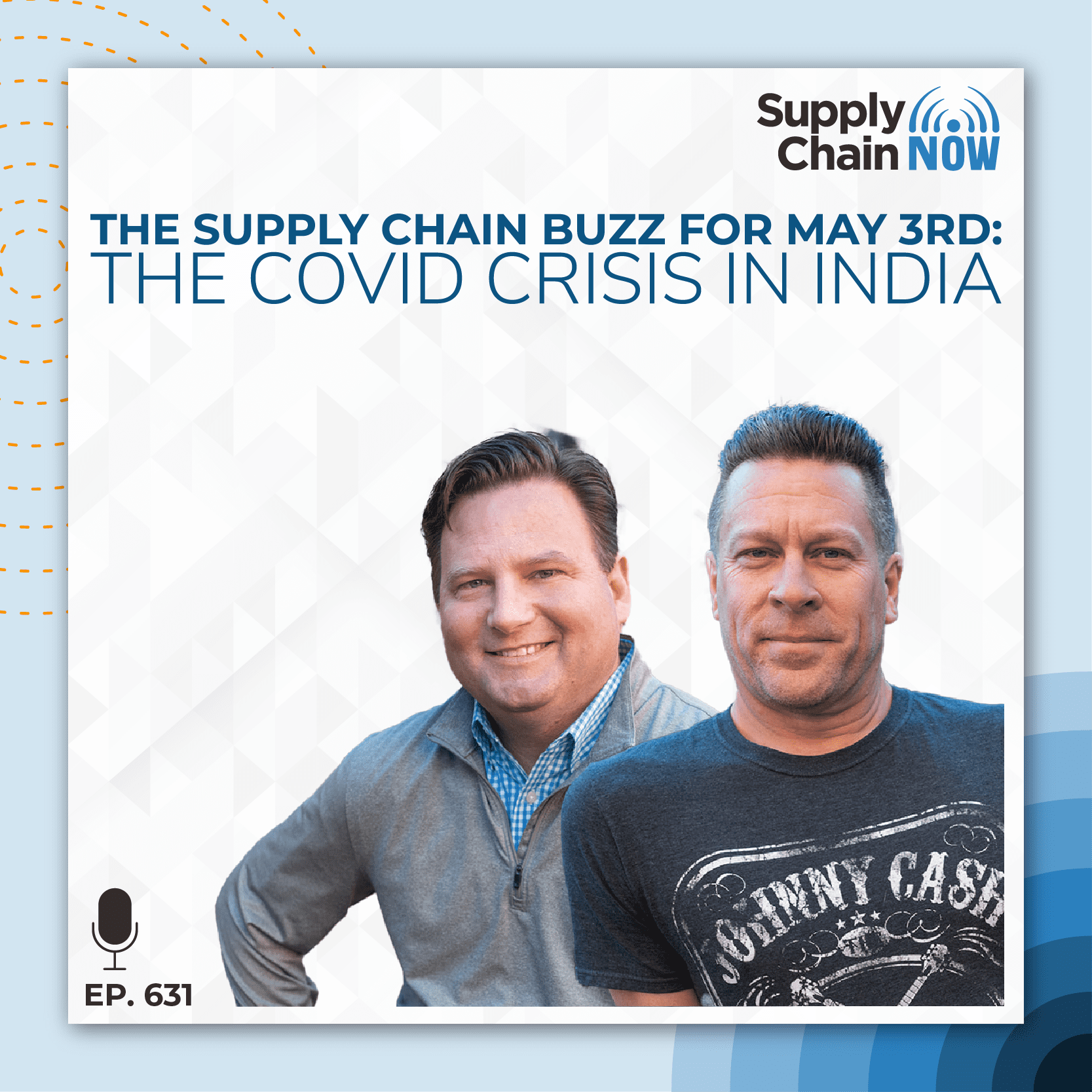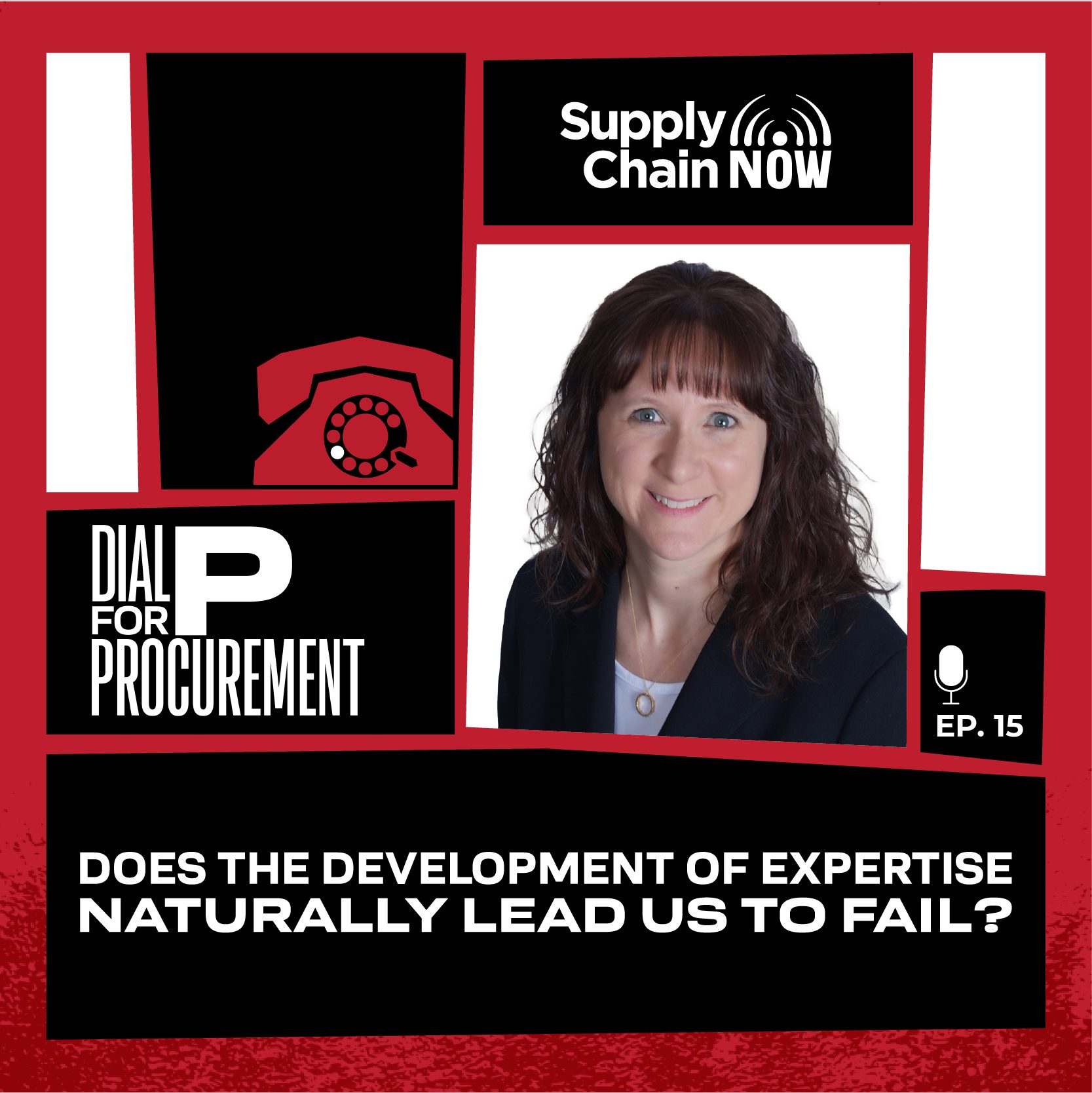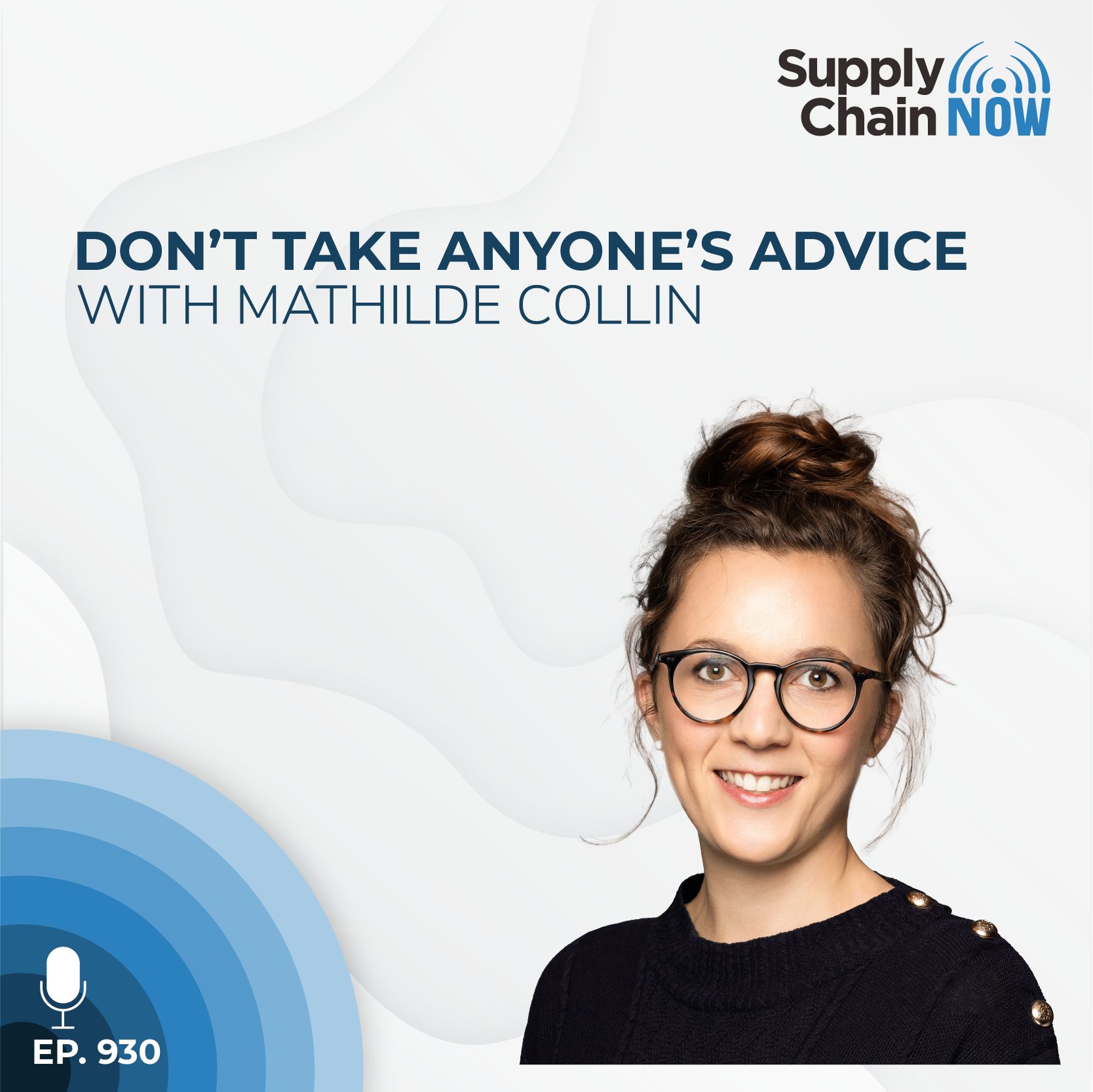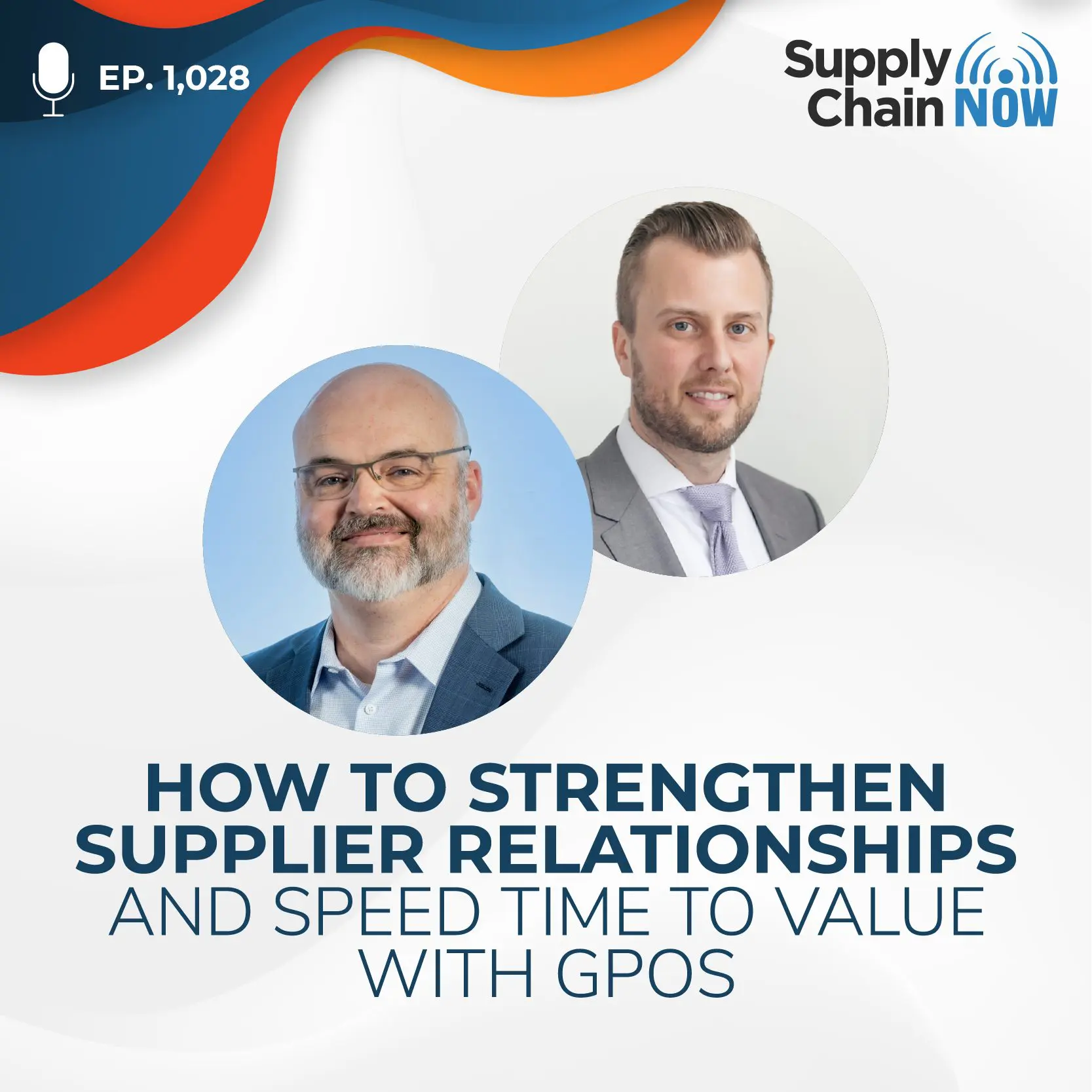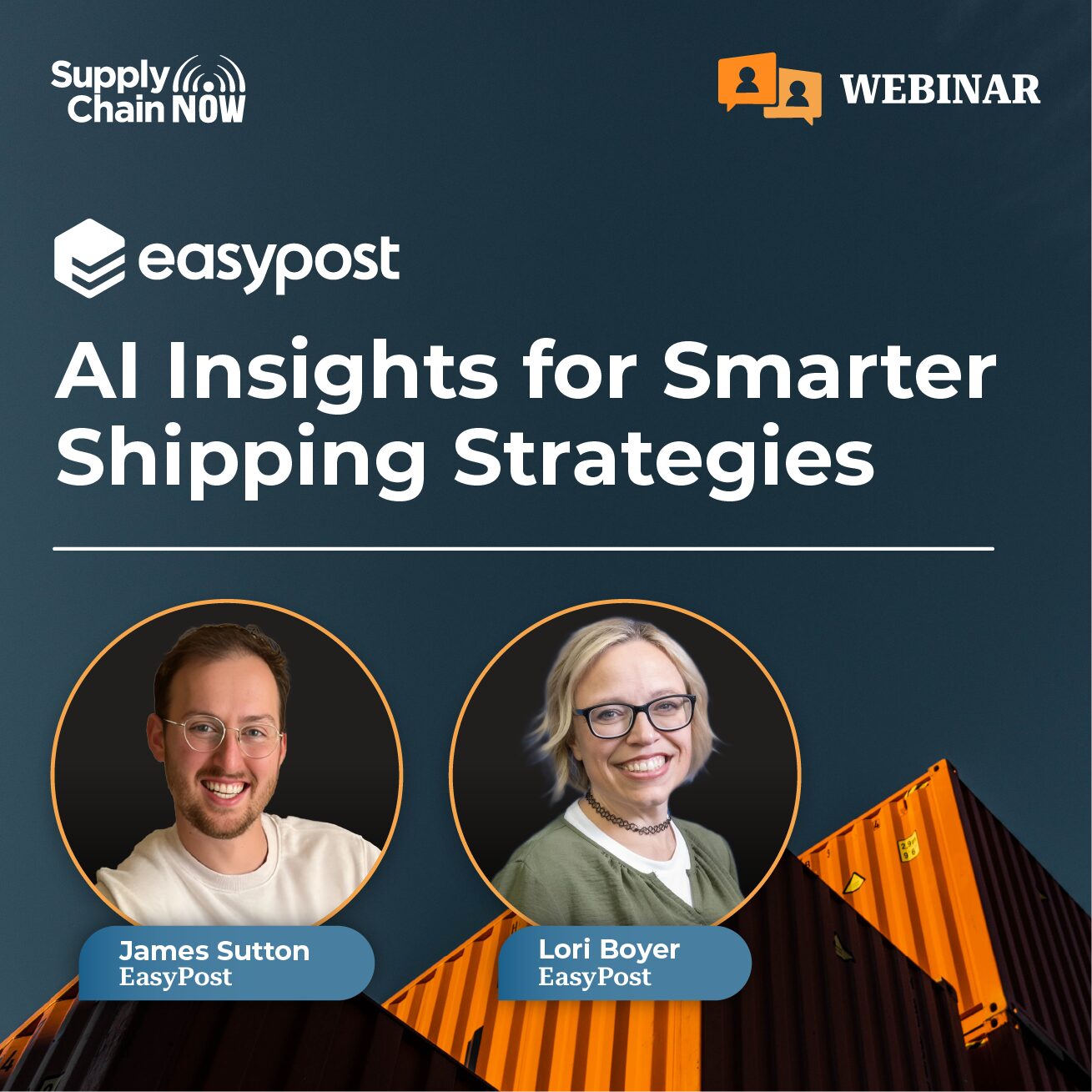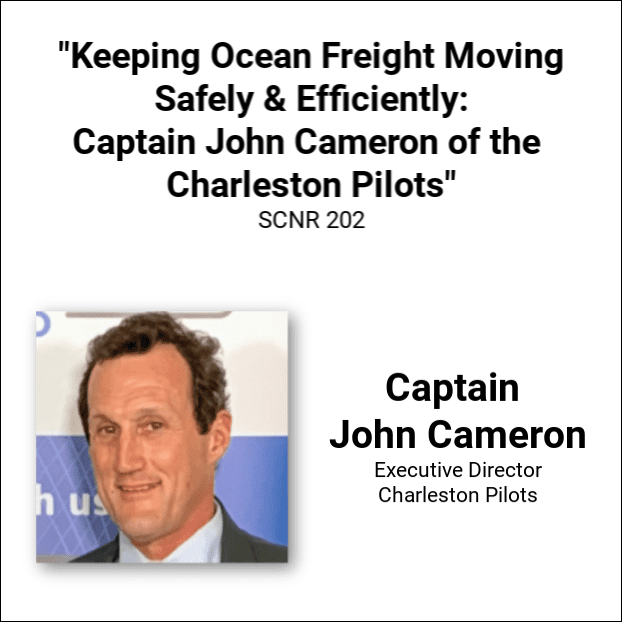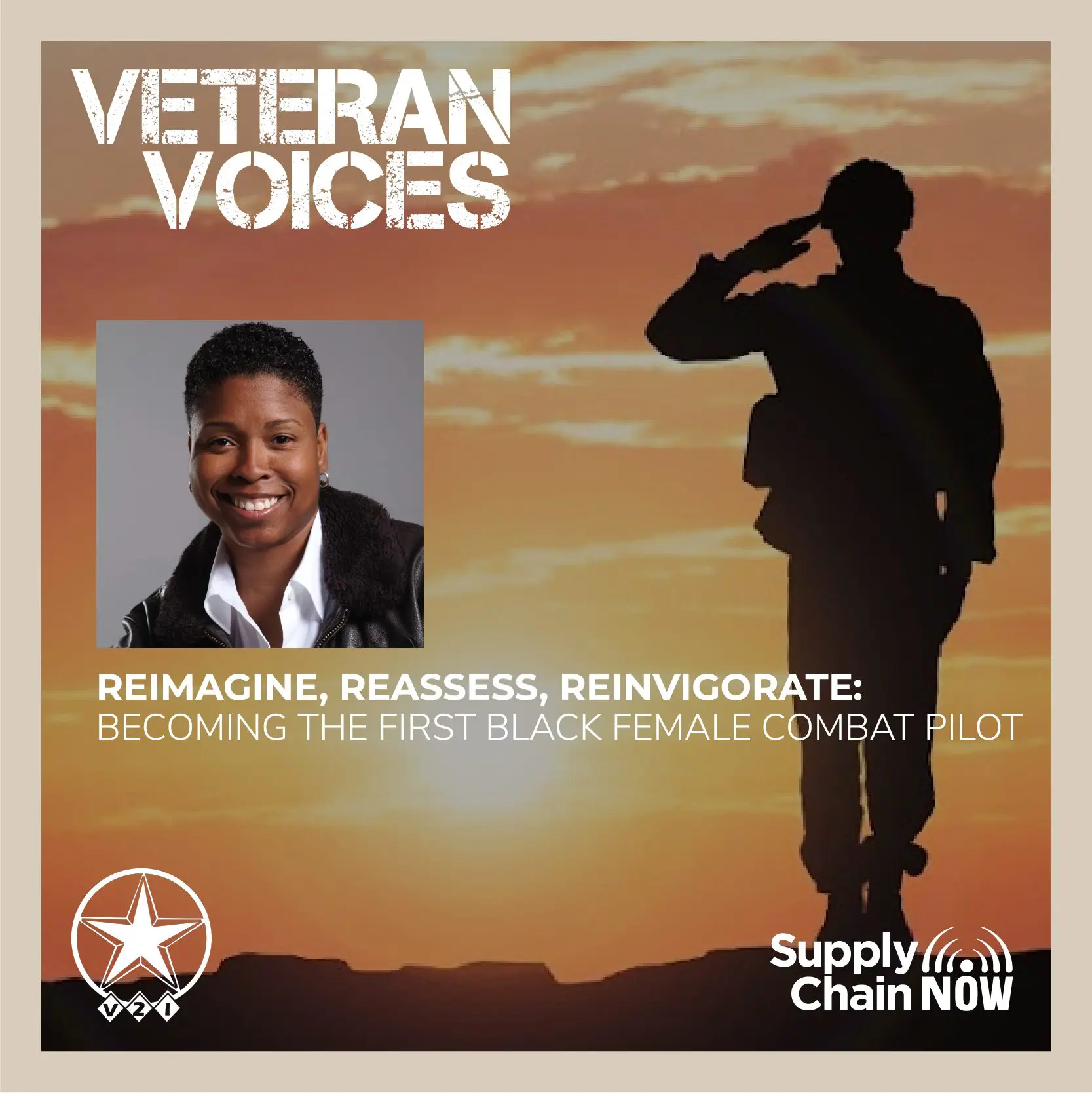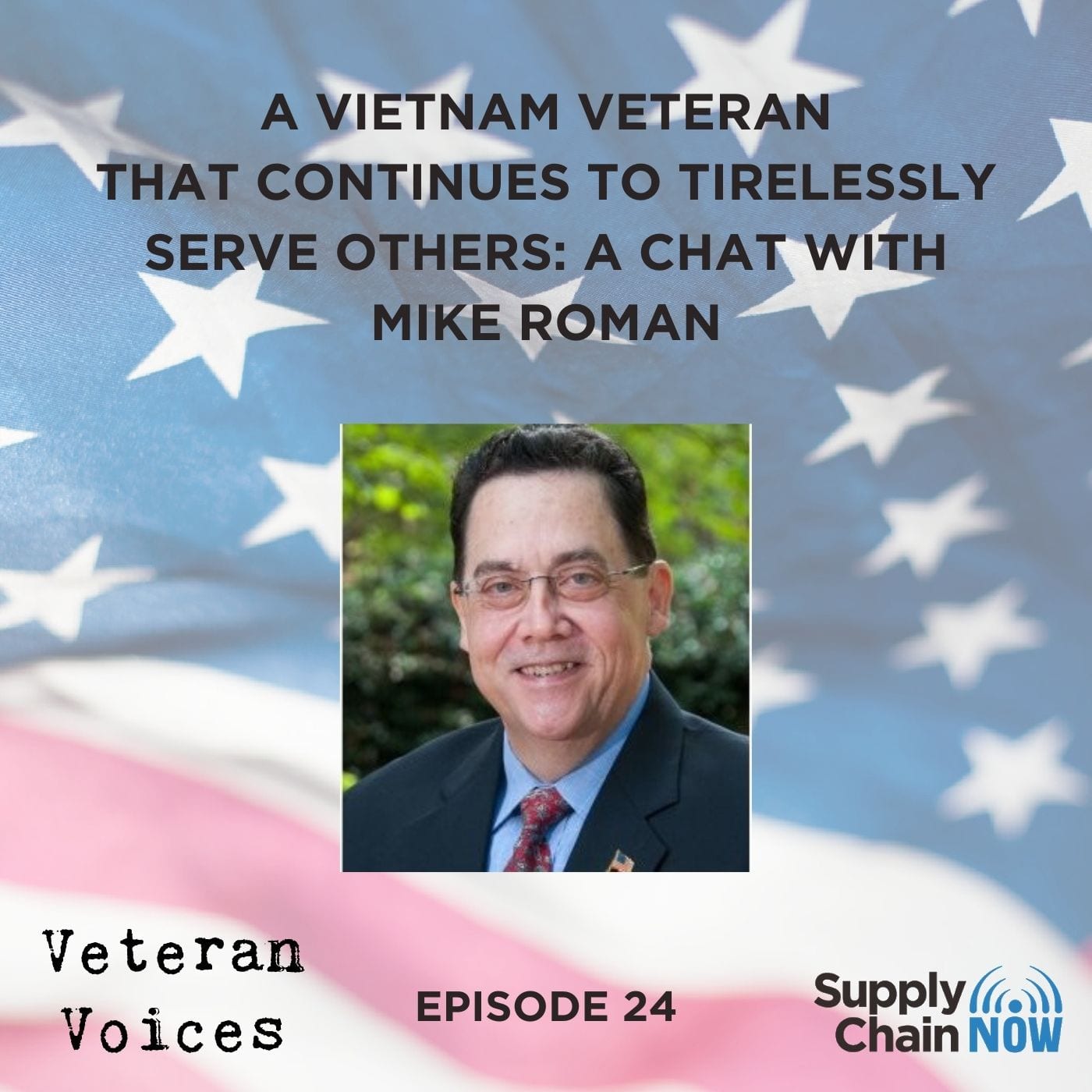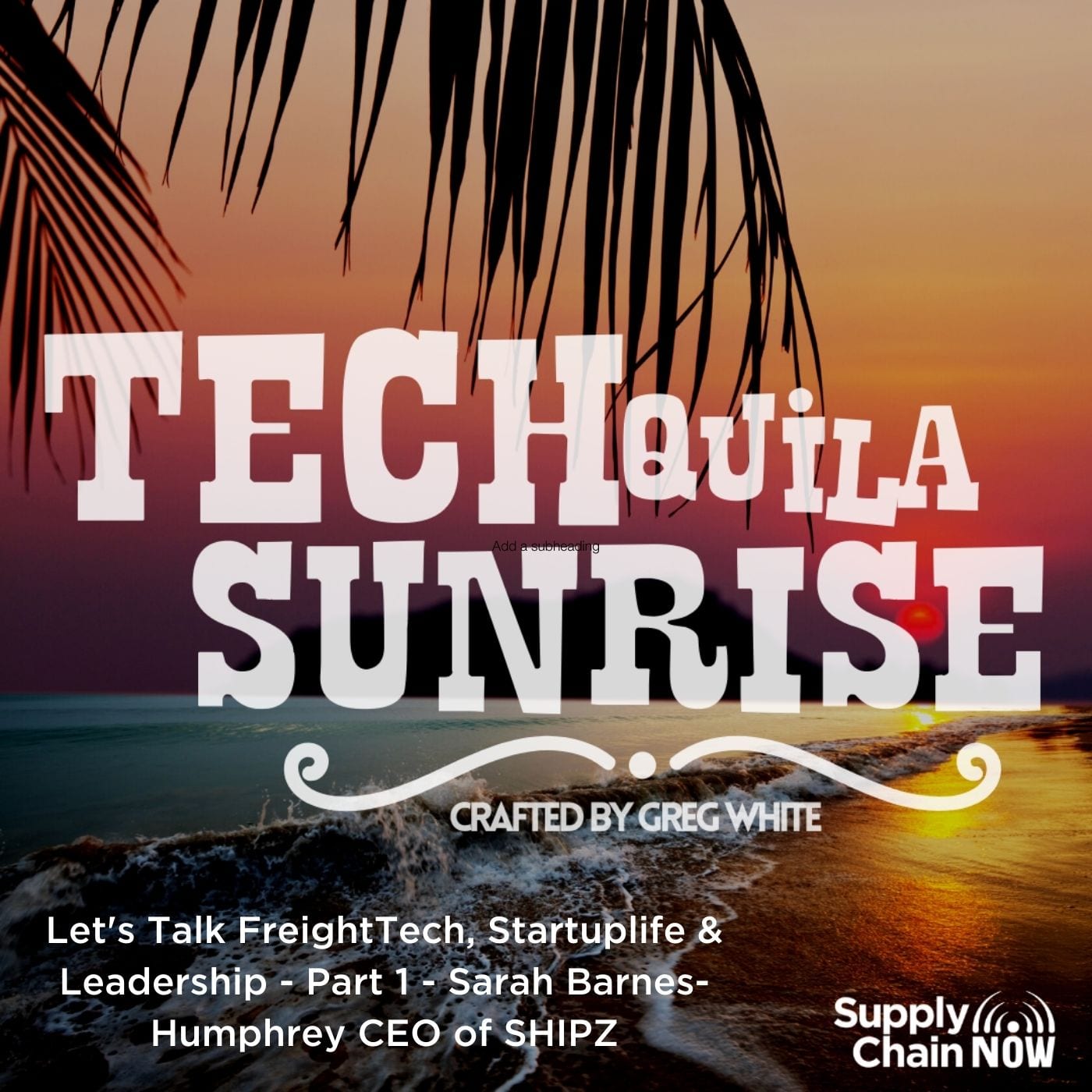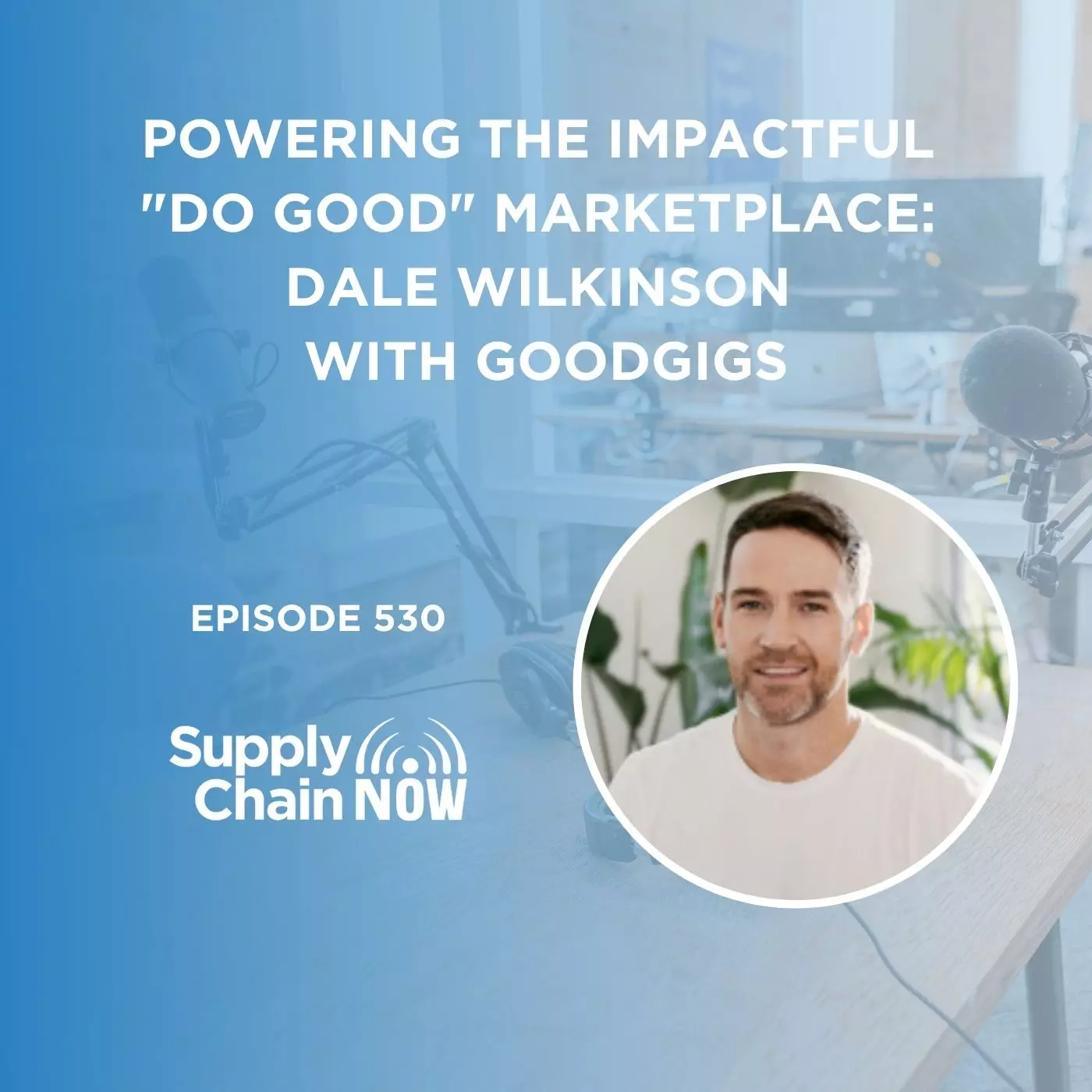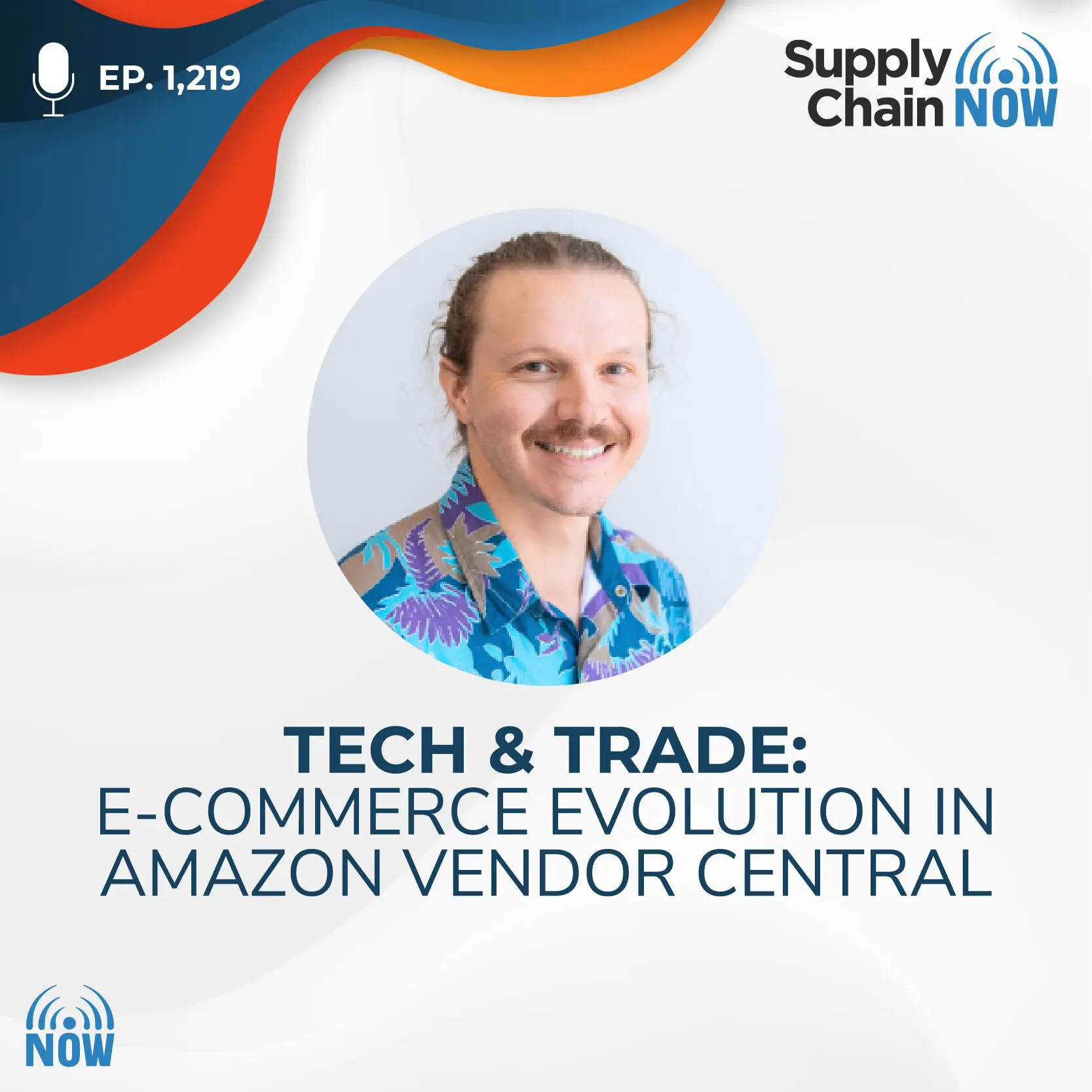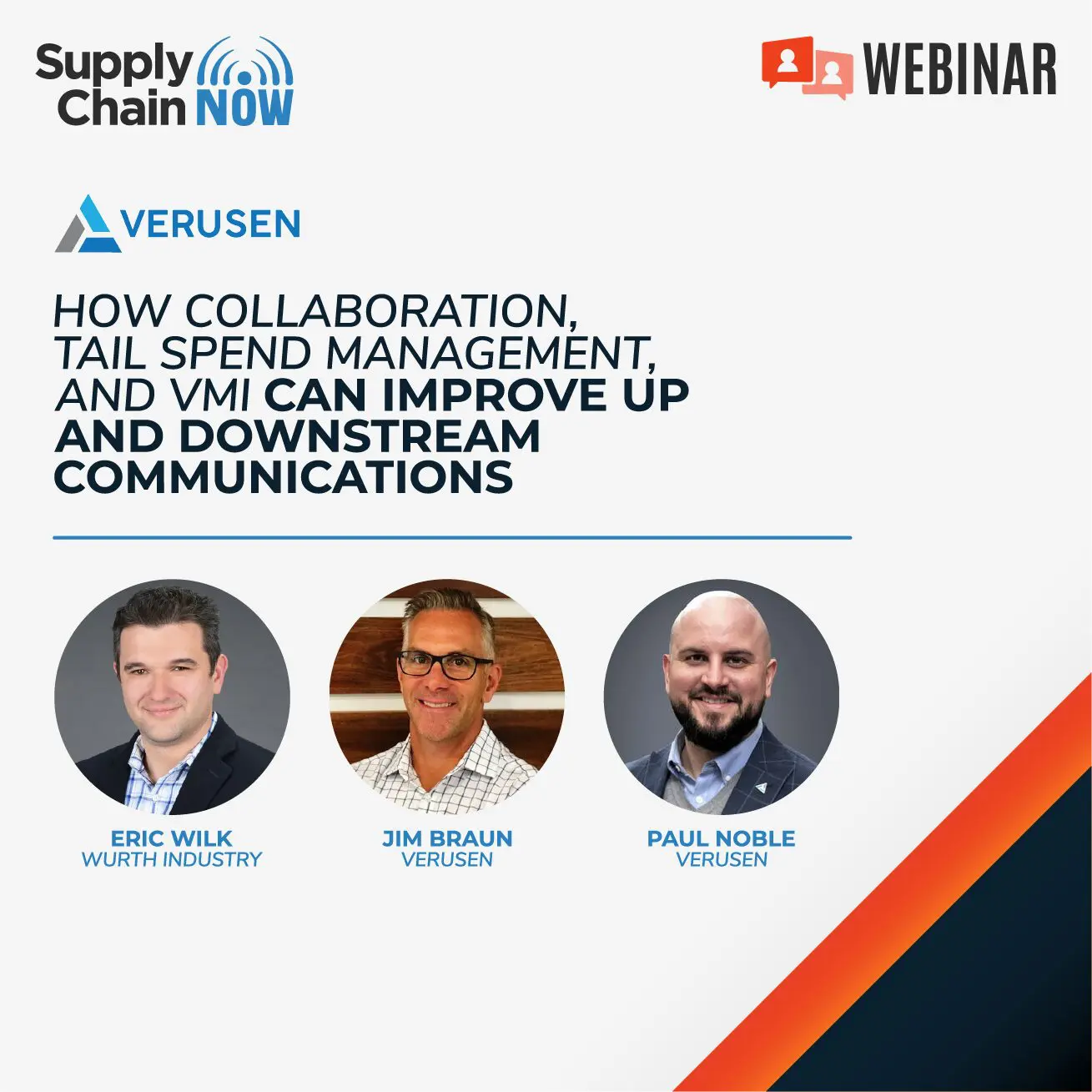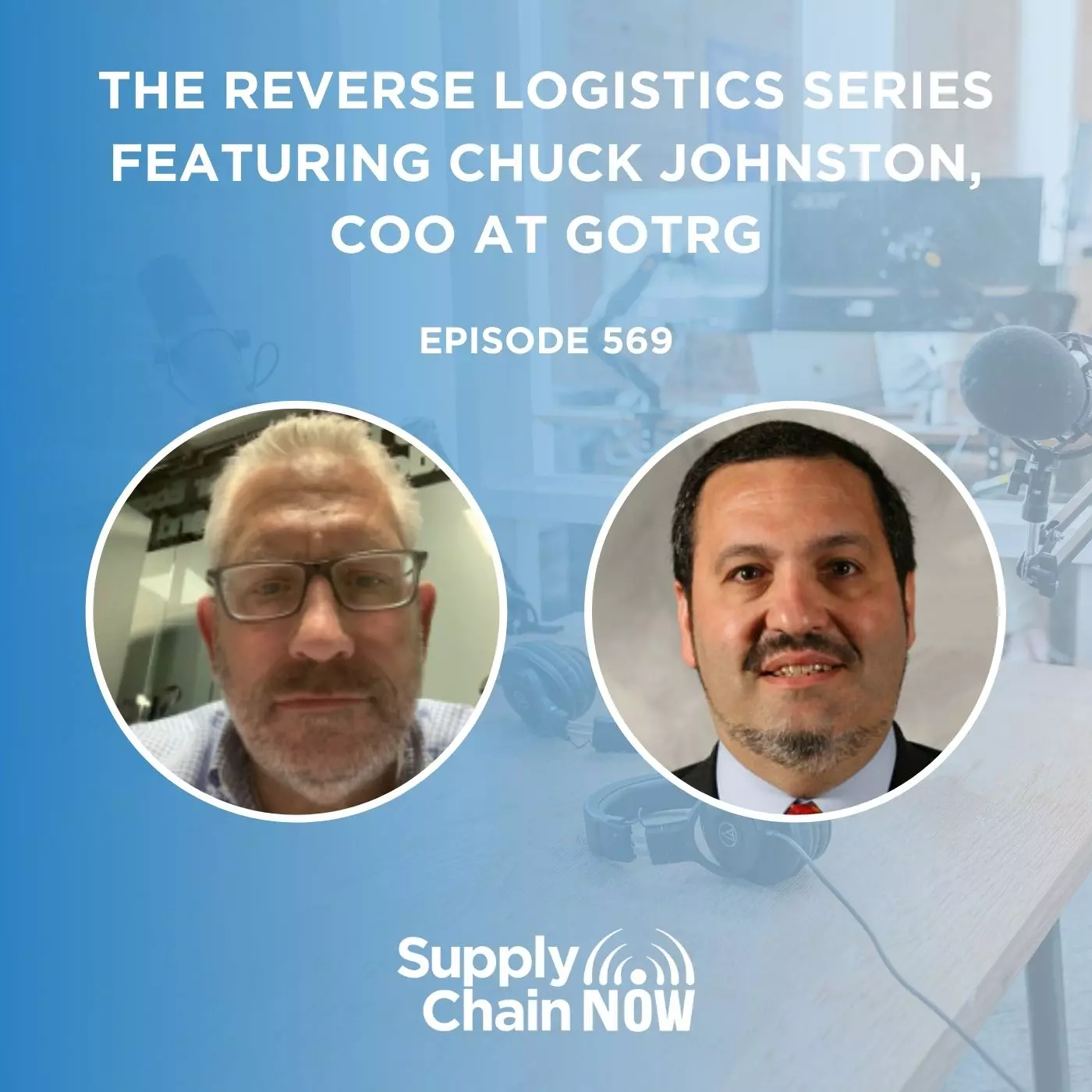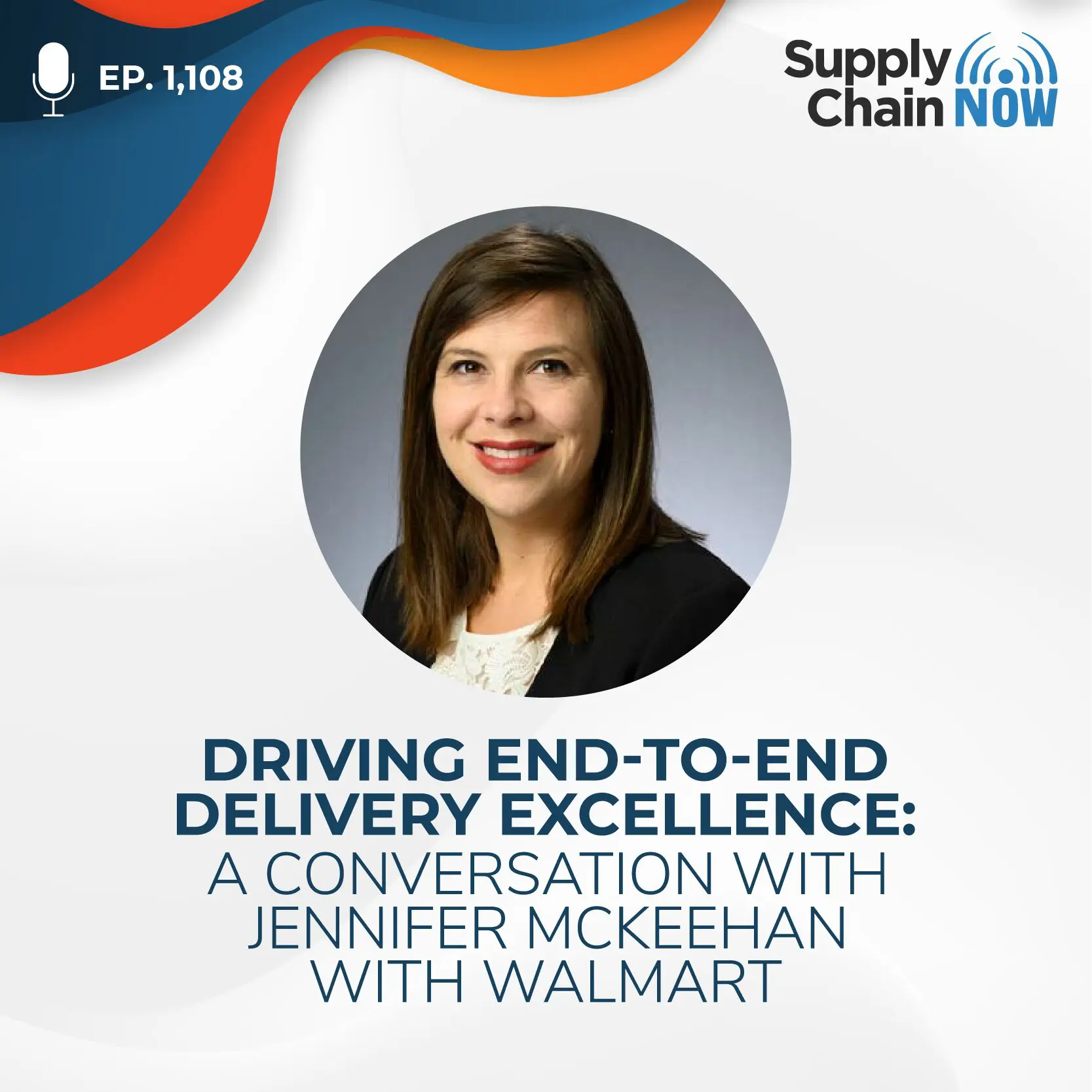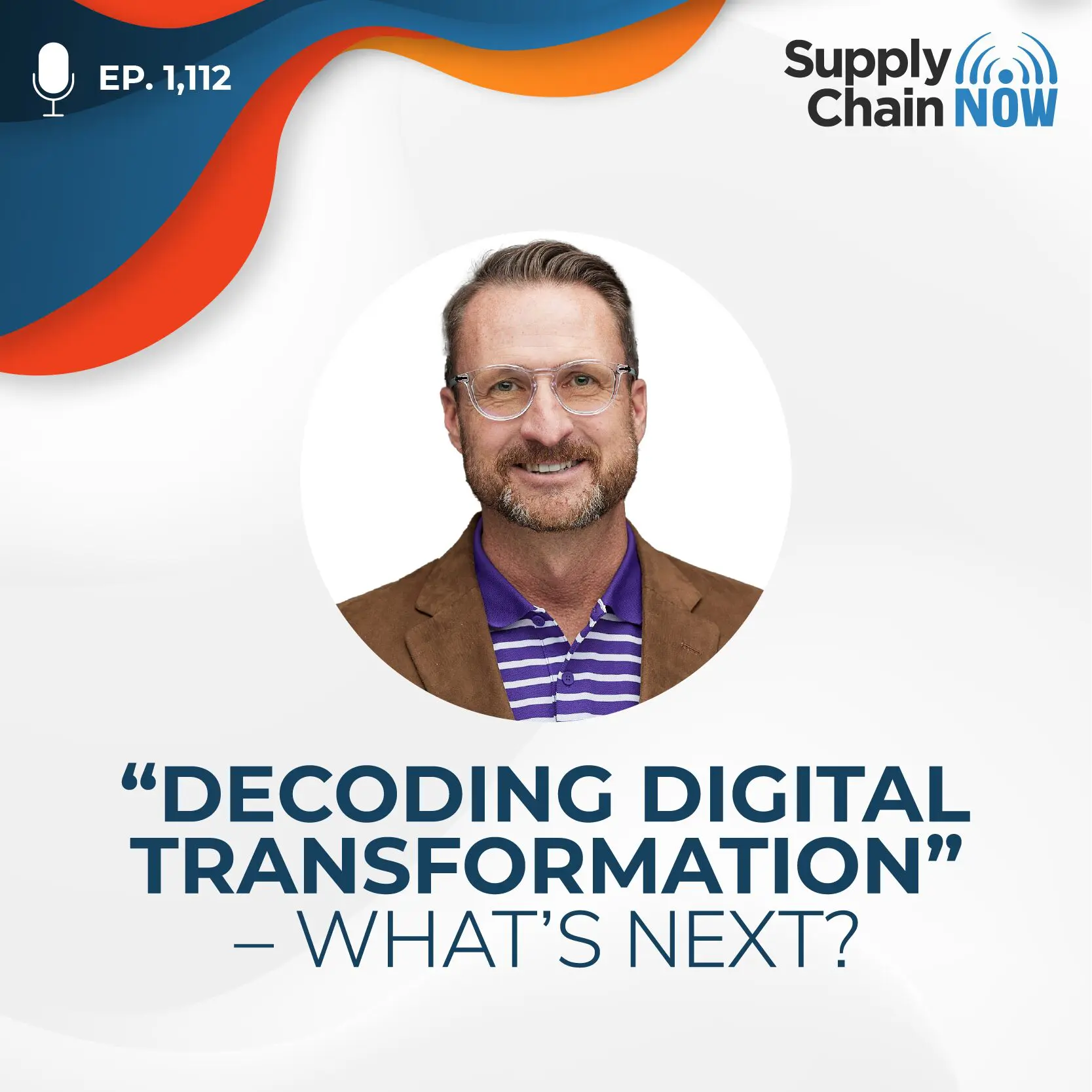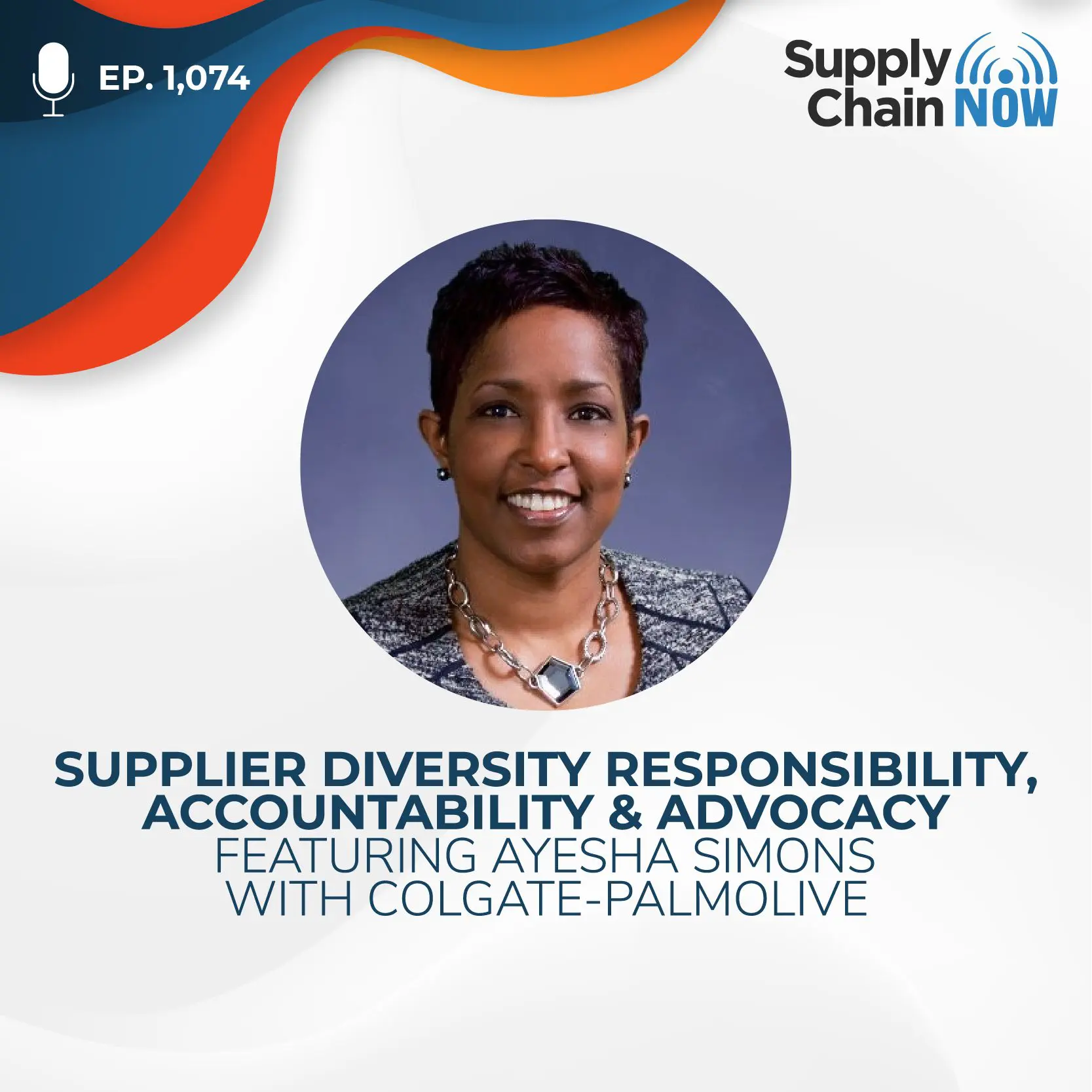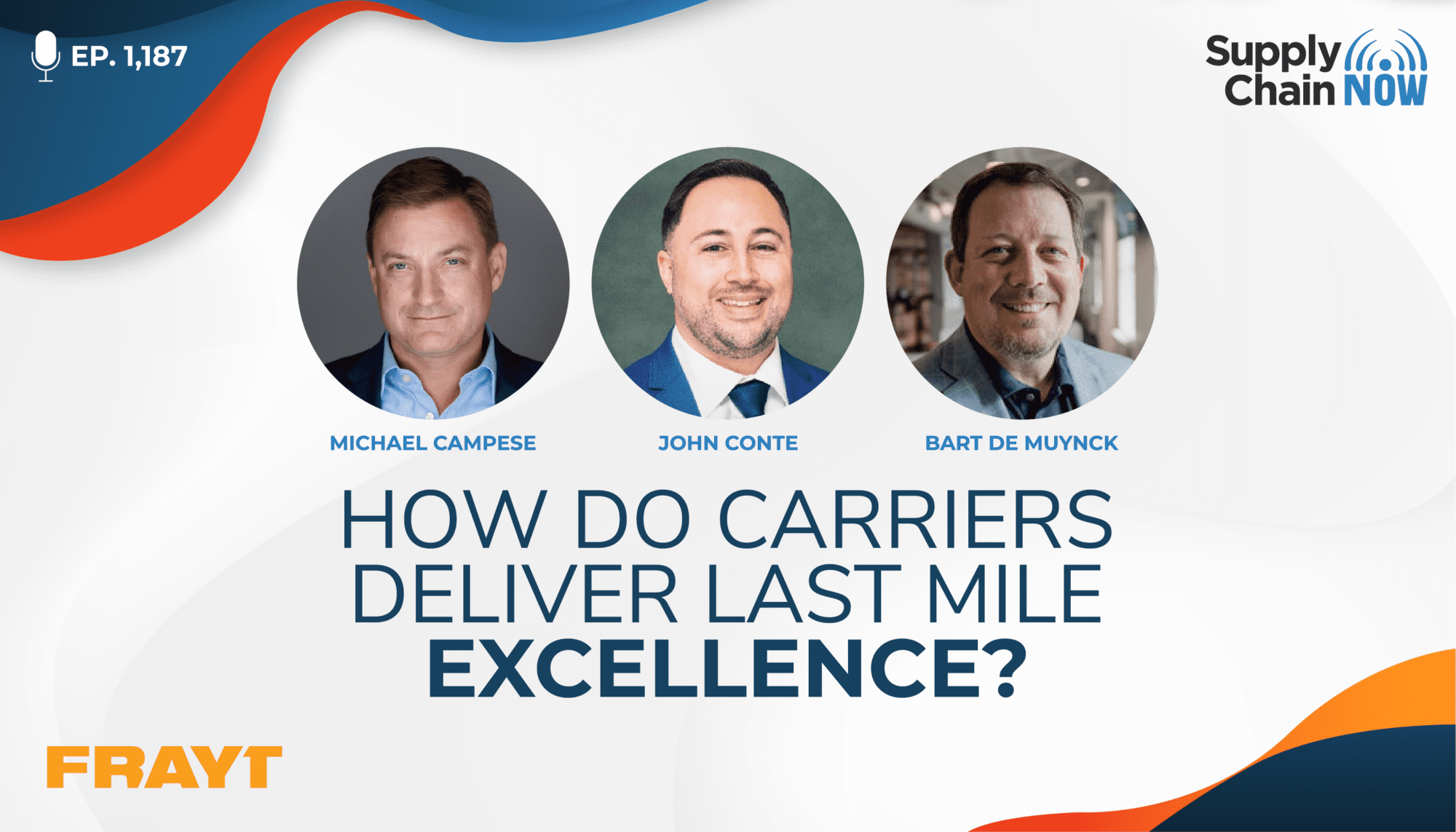
The customer experience equals the delivery experience. The delivery of the product, no matter how good the product is or how cheap your product, if it doesn't get delivered there on time, in full, with no damage, it doesn't really matter. That's why it's so important to have great services.
-Bart De Muynck
Episode Summary
With over 50% of shipping costs and a staggering 94% of online shoppers placing paramount importance on this phase, it’s clear that the last mile carries immense weight.
In this electrifying episode of Supply Chain Now, sponsored by FRAYT, we embark on an exploration of the dynamic world of last-mile delivery, an absolute game-changer in the realm of e-commerce. Hosts Scott Luton and Greg White welcome special guests Michael Campese with Estes Forwarding Worldwide, John Conte with FinditParts, and industry thought leader Bart De Muynck, as they unveil the strategies to not only meet but exceed ever-evolving customer expectations, underscoring that last-mile fulfillment isn’t solely about punctuality – it’s about projecting your brand’s identity. They also dive deep into the innovative technologies reshaping this final stretch of the journey, transforming it into a hotbed of groundbreaking solutions. Join us for an unmissable voyage into mastering the last mile and seizing the lead in the fast-evolving delivery landscape.
Episode Transcript
Intro/Outro (00:03):
Welcome to Supply Chain Now, the voice of global supply chain. Supply Chain Now focuses on the best in the business for our worldwide audience, the people, the technologies, the best practices, and today’s critical issues, the challenges and opportunities. Stay tuned to hear from those making global business happen right here on Supply Chain Now.
Scott Luton (00:33):
Hey, hey. Good morning, good afternoon, good evening, wherever you are. Scott Luton and Greg White with you here on Supply Chain Now. Welcome to today’s live stream. Greg, how are you doing today?
Greg White (00:43):
I’m doing quite well, Scott. I’m trying to figure out if that is too broski. You know, is this —
Scott Luton (00:49):
Hey, we’ll post. We’ll get feedback from our global audience.
Greg White (00:52):
Yes.
Scott Luton (00:52):
smartest audience in global supply chain. But today, Greg, we’re focused on last mile excellence and given the cost of the last mile, as well as how important it’s to customer experience and expectations. Execution has to be at least excellent in this modern era. Is that right, Greg?
Greg White (01:11):
Depending on where you get your numbers from, 53% of freight cost is in the last mile. Can you believe that? Think about that one mile and the cost. I mean, when you think about where stuff comes from, right, 7,000, 8,000, 9,000 miles away, the last mile is what costs you the most. That’s crazy.
Scott Luton (01:33):
As excellent perspective of —
Greg White (01:35):
If you got it.
Scott Luton (01:36):
Yes, do that math. Folks, stay tuned as we gain the perspective from a trio of business leaders with tons of experience in final mile success. And folks, get ready, we want to hear from you all as well. So, drop your chats and your observations in the comments section, the cheap seats, and we’d love to bring that in.
Scott Luton (01:53):
Big thanks — Greg, we should thank our sponsor for today’s session. Big thanks to the team on the move over at FRAYT for sponsoring today’s session. Learn more about this innovative last mile delivery technology company at FRAYT.com, and that’s F-R-A-Y-T dot com. I think I got that right, Greg, right?
Greg White (02:13):
Y-T, that’s right.
Scott Luton (02:14):
You all check it out. And, hey, if you stick around at the end of today’s session, we’ve got a great offer from the team at FRAYT, so stay tuned. All right. Greg, we got to get to work. Are you ready?
Greg White (02:26):
I’m excited. Let’s go.
Scott Luton (02:28):
All right.
Greg White (02:28):
I love these guys.
Scott Luton (02:29):
I do too. We’ve had a great —
Greg White (02:30):
They’re doing it, right? They’re getting it done right. So, great folks to learn from.
Scott Luton (02:34):
Yes, you’re going to hear from folks that have been there and done that and are here to offer some great best practices and perspective with you. So, I want to welcome in our featured guests today. We’ve got three of them. Michael Campese, chief marketing and experience officer with Estes Forwarding Worldwide, a.k.a. EFW. We have John Conte, vice president of supply chain with FinditParts. And backed by popular demand Bart De Muynck, a well-known industry thought leader and advisor.
Scott Luton (03:03):
Hey, hey. Good morning, good afternoon, evening everybody. How we doing? Bart, how you doing?
Bart De Muynck (03:08):
Doing wonderful. How are you this morning, Scott?
Scott Luton (03:10):
Wonderful. Welcome back, John. Great to see you. How you doing?
John Conte (03:14):
I’m doing well. Great to see you.
Scott Luton (03:16):
All right. And quick — we can’t have any other sports discussion, but good luck to your Phillies. They’re doing great work. And Michael, great to see —
Michael Campese (03:23):
Go Phil.
Scott Luton (03:24):
Michael, good to see you. How you doing?
Michael Campese (03:26):
Good to be here. Great, thanks Scott.
Scott Luton (03:28):
So, Greg, we’ve got an outstanding panel. Before we get into the conversation, what you think — I’m going to ask about their professional — about their professional journey. How’s that sound, Greg?
Greg White (03:37):
Yes, let’s find out why we ought to be listening to these guys.
Scott Luton (03:41):
Even better question. So, Bart, I’ll start with you. Welcome back. As I mentioned, I really enjoyed our webinar session a few weeks back. I got a lot of good feedback around that. You’ve worked for a variety of major international companies, as most folks should know, in numerous sectors. More recently spent eight years as VP of research at Gartner and also served as chief industry officer at Project 44. What was one of out of — when you look back and think about your background, what’s one industry sector that’s been amongst your favorite places to work in, Bart?
Bart De Muynck (04:11):
Yes, you are right. It’s hard to think back that I’ve been now in supply chain for over 30 years, right. It makes me sound really, really old. But it gave me a lot of different perspectives. So, the question is a good one. I would say I love every single job that I’ve done. And I’ve gone from operations, both on the asset-based trucking side, I’ve been on the shippers’ side, I’ve been on the research side, I’ve been on the technology side, and now as an advisor.
Bart De Muynck (04:35):
But I would say, probably for today’s discussion, I would probably say the CPG industry, so my 10 years with PepsiCo. And the reason is because of the past pace, right? We were talking about, you know, CPG or consumer products. We’re talking about consumers here in the last mile, or any last mile really, and how that’s changed. So, over the 10 years I was there, it changed quite a bit. We used a lot of different technologies, very advanced PepsiCo. Great, great company.
Bart De Muynck (05:02):
But for example, just to figure that out and compare it to today, when I left PepsiCo in 2014, our last mile would be like sending a box of chips to a bar, or driving products to 7-Eleven. Nowadays, for pretty much any manufacturer, everyone sells directly to the consumer, right? Just like Nike’s, you used to buy them in a retailer or a Foot Locker. Now, you can buy them through nike.com, same with PepsiCo. So, imagine how that puts a pressure on all these companies to figure out the last mile.
Scott Luton (05:33):
Yes, and do it well. Bart, good stuff there. Great level setting on a front end.
Scott Luton (05:37):
Michael, I’m going to switch gears and give you a chance to share a little bit about your background. You’ve spent 30 years in the logistics industry, about 25 years at Estes alone where you’ve held a variety of leadership roles. And hey man, we’ve done our homework, Michael. We’re tracking you all, getting some market intel.
Scott Luton (05:55):
Greg — by the way, folks, Greg White does not miss anything. So, we’ve got the best market intel. Now, we understand you specialize, Michael, in complex organizational change, which probably everyone here can relate to, a lot of our listeners can relate to. So, I want to ask you, and this may not be a fair question but just in a nutshell, what’s one overlooked simple tip when it comes to managing change as business leaders?
Michael Campese (06:16):
Yes, it’s a good question. I think organizational change — in general, people don’t like change, right? I mean, they say they like change. And So, you say, well, you actually have to do something different. And it’s like, oh, you mean I have to change something? I thought you were going to change everything. It was all just going to be better.
Michael Campese (06:32):
Well, So, in general, I’ll say two things. One is really important on the front end to make sure everybody understands the why behind what you’re doing, right? Ultimately leadership in organizational change makes a decision and says, all right, here’s where we’re going. And you can’t make the mistake of just going out there to the troops and saying, here’s where we’re going without really making a connection with each one of them individually. So, they — everybody understands here’s why we’re doing it and here’s what things are going to look like on the other side.
Michael Campese (07:04):
And you got to have the stomach for it and you got to make sure everybody’s willing to, kind of, not just decide we’re going to do something new and we’re going to change, but we’ve got to let go of some of the old structures, right? You got to bring up that old cement so you can lay some new stuff. And —
Scott Luton (07:19):
I like that, Michael. And I like what you’re implying there, back to connecting with the troops individually than with them, what’s in it for me? We’ve got to answer that question almost individually these days. All right. And finally — and Greg, I’m going to get you to comment on our esteemed panel here once we get John’s response. Because John, you lead supply chain at FinditParts, which we understand the largest source for heavy duty truck and trailer parts. So, I want to ask you this, what is one favorite aspect for you in your role as — clearly your team is helping keep the critical backbone of our supply chains rolling forward? What’s your favorite part, John?
John Conte (07:55):
I think my favorite part is logistics and supply chain technology and how fast it’s evolving and all these new products coming to the market is getting a lot of super smart people around me on my team to figure out, how do we use this stuff, right? Like, you know, let’s dig into the data. Let’s figure out if this company works for us. And how do we help to get products delivered quicker or at a lower cost?
John Conte (08:16):
And to your point, if that truck’s down, the final mile is the whole part that matters to that end user. Whether it’s a fleet owner, an owner operator, a shop, right? They want that part to get that vehicle back on the road and generating revenue. So, I — that’s my favorite part is looking at all this great technology that’s out there, all these new partners and trying to figure out how we can fit into what they’re giving to the market so we can take advantage of it.
Scott Luton (08:40):
Thank you, John. Appreciate it. And thank you Bart, John, and Michael for sharing just a little bit of you all’s perspective and how you look at the — what your worldview is like almost on the front end. Greg, when you think about the panel we have here and kind of where they come from and their journeys, what’s one thought that comes to your mind before we move forward?
Greg White (08:58):
Well, clearly, they passed muster. Not only have they been there and done it, as you said, Scott, they’re being there and doing it now, right? Bart advising companies, and Michael and John doing the doing right now, which is critical. And I think that is — that’s what we try to bring people here, is practitioners who are doing the doing so we can all learn more from that. So, you know what I’m going to say next, you know.
Scott Luton (09:27):
Listen up, Greg says. All right. Greg, I can’t agree with you more. So, welcome in everybody. All right. So, now I want to shift gears over to the topic why we’re all here, right? Why folks are here to tune in and listen to our conversation and hopefully contribute in its last mile.
Scott Luton (09:43):
So, for starters, I want to start with John here. For starters, how — John, in an interview, how do last mile delivery services enable greater customer satisfaction and really overall customer experience in the last mile? What are some of your initial thoughts there, John?
John Conte (10:00):
Yes, I mean, for me it’s really about the flexibility that comes into it. So, in the past, using traditional carriers, for example, it was very rigid. They take a product, they try that final mile delivery, they try to deliver it, and you’re not home at 1:00. So, what do they say? We’re going to try again tomorrow at 1:00, right? Where you’re probably not going to be home again.
John Conte (10:20):
So, it just makes it for a really poor experience where now with the more flexibility and the new carriers that exist in the marketplace that can do this final mile delivery, you can connect directly with the driver in some instances and let them know as a customer, hey, I’m not going to be home at 1:00 but please leave the package on the side door or in the garage, or things like that. So, it’s really all about flexibility.
Scott Luton (10:43):
John, I love that. And also, what you mentioned there, not just flexibility for customers, but flexibility for drivers, which is really important.
John Conte (10:51):
Yes.
Scott Luton (10:51):
Michael, your thoughts in terms of customer satisfaction and customer experience and how last mile delivery services help enable that?
Michael Campese (10:59):
Yes, for us as a logistics provider and you know, really a non-asset-based logistics provider, we’re as good as our — as the network we manage. We have thousands of providers that, sort of, make up the quilt of what we do. This — being able to use a service like this and technology like this, it — it’s another tool. I remember when my grandfather, when he didn’t have a tool to fix something in the house, he would literally build one, right? And this is a situation where the market has actually created another tool for folks like us to be able to just the complexities of reverse logistics and — hey, logistics, look at that. I’m in a hotel with fire alarms. You never know what’s going to happen. You got to be able to improvise.
Scott Luton (11:41):
That’s right. That’s right.
Greg White (11:43):
Michael is safe though. Everyone, need not worry.
Scott Luton (11:46):
So, folks, hey, live programming in 2023, we roll with the punches there. They’re doing fire alarms in several of the hotels our panels are in. But Michael, as you were saying, and really, I loved your comment there about your grandfather. If not a tool out there, you build it. You’re — finish your thought if you would. Oh, we’re still may be waiting on the fire alarm announcement.
Bart De Muynck (12:04):
I know, Scott, for a second there I thought he was on a loading dock because that’s what it sounds like. It’s really noisy.
Scott Luton (12:10):
Hey, going to the Gemba, Bart. Going to the Gemba, huh?
Bart De Muynck (12:13):
Yes.
Scott Luton (12:14):
Let’s keep driving here and we’ll come back maybe to Michael once we get the fire alarm complete. Bart, when you think about these last mile delivery services and how they impact customer experience, you name it, your thoughts, Bart?
Bart De Muynck (12:26):
Yes, Scott, we live in a different world, right? I mean, last mile has become so complex. Again, I alluded to — a little bit to that earlier. But if you look at it, how many different ways do we have to go to the customer, right? And by the way, for some of us that still think last mile is only ordering something on Amazon and then getting it to your front door, last mile is a lot of different things. It’s business to business, sometimes with fairly large and heavy last mile products, and it can be all the way down to inside of your house.
Bart De Muynck (12:56):
So, a lot more different ways of getting to your customers and different customers, but also in a lot of different channels that we created. Who doesn’t remember the incredible invention of Bull Piece [phonetic] and Bull Pac [phonetic] during Covid, right? We probably thought, what the heck have they done now? Well, what is that thing, right? You buy online, you pick up in the store, you buy online, you pick up in curbside. What else are they going to invent?
Bart De Muynck (13:18):
So, more channels means more complexity. And so, people need different options to go and execute that last mile. So, think of it perspective of capacity. We need more capacity. We’ve built more volumes. So, for people that only use a couple of services, they need to expand their service. And that’s what we’ve seen happening. People using more carriers. They use different methods because now we have gig workers. So, it’s not just a big UPS’s and FedEx, we have a lot more options.
Bart De Muynck (13:46):
And by the way, did we mentioned consumers have different expectations as well as our customers? And I would claim to say that the customer experience equals delivery experience. The delivery of the product no matter how good the product is or how cheap your product, if it doesn’t get delivered there on time, in full, no damage, it doesn’t really matter. That’s why it’s so important to have these great services.
Scott Luton (14:10):
All right. Well said. Michael, you’re back with us, I think. Fire alarm is done. Your final thought there.
Michael Campese (14:16):
Yes, I — thanks for bearing with me. You know, we — listen, we got to remain nimble in logistics, right? So —
Scott Luton (14:23):
That’s right.
Michael Campese (14:24):
No, I think that additional kind of along the lines of what Bart’s saying, I mean, that additional tool, it gives us, whether it’s a market that we don’t have great coverage in or whether it’s a particular type of pickup or delivery, the ability to leverage a solution like this, it gives us that capability and ultimately just is able to satisfy a customer need. Sometimes it’s something very granular where we have to make a particular pickup on a return or at a — in a place that’s hard to get to. So, yes, the flexibility is key.
Scott Luton (14:57):
Wonderful. Thank you for that, Michael.
Scott Luton (15:00):
All right. So, Greg, you heard three perspectives there in terms of how final mile really drives customer experience amongst other things. And I saw you, in particular, really nodding your head and agreeing with Bart when he said customer experience equals delivery experience. Your thoughts here, Greg, based on how Bart, John and Michael answered our first question?
Greg White (15:17):
Yes, well, I was thinking of our very first statistic, which is it’s 53% of your logistics cost, but it is 100% of your customer experience, right? It doesn’t matter what promises you’ve made, how great your marketing is, how strong your brand identity is, if you can’t get it in our hands and all those hands out there, the way that we want it, when we want it, where we want it, right, in the condition that we want it.
Greg White (15:45):
I think we — I bet virtually everyone here just had a delivery experience flash through their mind as I described that, right? And that’s what makes this aspect of it so important up until the point that a product gets delivered or it gets prepared to be delivered to an individual or an individual business, it’s in a protective car often, and it’s taken out of that protective carton and then it’s delivered to that person. So, there’s a lot of risks there. And I think one of the things you have to identify is not just the flexibility, but also the risk that you’re embracing whenever you deliver the last mile.
Scott Luton (16:26):
Well said, Greg. And we — yes, we did all have a certain delivery flash through our minds, just as you suggested that. I want to keep driving here. So, Bart, we got a lot of good stuff to get into. Folks, stay tuned. We’re going to talk more in a moment, especially from that retail perspective and how these third party last mile platforms can really help.
Scott Luton (16:45):
Bart, let’s talk about fleet augmentation. The benefits of using fleet augmentation provided by third party delivery solutions. Beyond the obvious, beyond the speed of delivery, what are the benefits you see there, Bart?
Bart De Muynck (16:57):
Yes, well, we saw it historically, right, is that companies use, I would say a very small group of carriers. And even within those carriers, very few services. So, again, what we explained before, it’s a lot more important, become a lot more complex, so you need to have more options. The other part is, if you look and we’re right in the middle of the holiday peak, right? It started about over a week ago, so if you look UPS and FedEx, they announced their peak surcharges, right? They have, you know, more capacity, so they’re now going to have all the capacity for you that you need. And by the way, we see also service levels degrading.
Bart De Muynck (17:34):
So, when you want to have the highest service level, you want to get all the capacity for all that stuff that you’re selling, especially if you’re selling more maybe in this peak season, and you want to do that at a fair cost, you got to spread your beds, right? If you’re just going to stick with a couple of options, you’re not going to have the capacity. You’re going to pay way too much, and you got — you’re not going to get the service level that you promised to the customer.
Bart De Muynck (17:56):
So, it’s all a question of having options. And I think that’s really where have these new platforms that are providing that or connecting. And by the way, it’s not a single company, it’s an ecosystem. We all work together. It’s some of the technology companies working together with these on demand platforms that work together with other systems. And then together you can provide a much better experience both for the people that are trying to fulfill on the promise. Because remember, supply chain, we don’t always make the promise. We’re responsible for delivering on the promise of getting it there online. And that’s really where the value of these new services are coming in.
Scott Luton (18:33):
Love that. And as Bart suggests, I’m — Michael, I’m coming you next. But as Bart suggested, at the roulette table, Greg, don’t put all your bets on red 19. We got to spread it out amongst the red and the black and maybe different segments, who knows, and lose all your money like I’ve done at the roulette table too often. That’s why I stay out of those casinos. Hey, Michael, talk about the benefits of using fleet augmentation beyond what Bart has shared.
Michael Campese (18:55):
Well, I think similar to what Bart said and what we talked about earlier, that flexibility being able to — if you’ve got that fleet, being able to extend it– I mean, you’re — we’re seeing, there’s some interesting models out there in the market these days where you’ve got — you’ve kind of got virtual networks. I always like the example of anybody who’s familiar with MrBeast, right? MrBeast is this internet sensation who’s created a burger franchise. And there is no — there are no locations. If you go online and you look for the MrBeast burgers — burger, you’re going to find a thousand MrBeast locations around the country. And the reality is he’s just using — he’s a virtual business that’s cooking up burgers in the kitchens of other restaurants.
Michael Campese (19:38):
And so, I do think that you see examples of it all over the place in networks and a fleet is just a network where there’s a digital extension, you know, an augmentation of a network, or in some cases like that, in that example, it’s truly a pure virtual network. Phone call service providers do this. And so, I just think that ultimately what it means is, as a customer, from a customer experience perspective, whether you’re the company who’s delivering this or you’re the actual customer, it just enhances the customer experience. Providing the quality is there. It’s managed well. The connectivity is there. It’s, you know, anytime you have more options and more, more flexibility and solutions for the customer, it’s always a good thing.
Scott Luton (20:19):
OK. Good stuff. I — MrBeast, that is new on me. I’m going to look that up.
Michael Campese (20:24):
Oh, man.
Scott Luton (20:25):
Fascinating model.
Michael Campese (20:26):
100 million YouTube subscribers or something crazy like that.
Scott Luton (20:28):
Yes, that’s great.
Michael Campese (20:29):
OK.
Bart De Muynck (20:30):
Scott is also the nickname we use for Mike, by the way.
Scott Luton (20:35):
All right.
Bart De Muynck (20:36):
Mike the beast.
Scott Luton (20:36):
Bart, inside baseball there. Thank you very much. All right. So, John, what — anything else? And all this is going to — there are some strong common themes in the majority of our discussion here today. But anything else you’d like to add, John, before I circle back to Greg and get his final thought here? When it comes to the benefits of fleet augmentation as provided by freight and other companies?
John Conte (20:56):
Yes, for sure. So, from the shipper perspective, I think an older model was we want our own fleet and our own drivers because we can control more, right? We can control the experience. If something doesn’t deliver on time, we could put it on our own vehicle and get it there. But I feel and I’ve seen over time, business rules become more complex, right? Your customers want more and then it becomes really hard for that fleet manager or operations manager with his assets to make everything happen, right?
John Conte (21:25):
Customers get promised early delivery times and dedicated pickup times and things like that. So, again, it goes back to the flexibility where — and risk avoidance, right? You move away from your own fleet. You work with a company like FRAYT or other organizations and you have essentially a virtual and endless driver pool, right? Capacity becomes a lot more expanded. And you don’t have to worry about things like if you’re delivering in your own vehicle to say a dealership to drop off a part, you’re not hitting a brand-new Tesla in the parking lot with your own fleet and then dealing with all of the things that come with that, right?
John Conte (22:01):
So, the augmentation part of it, as a shipper, I love and I rally behind that all the time because it just removes cost and risk and makes the experience better for your customer.
Scott Luton (22:12):
Love that, John. Greg, before I come to you. John, my dad, way back in the day, 30, 40 years ago, ran his own shop where he worked on all kinds of trucks. And I bet, and as I remember going to the auto parts store with him time and time again, ordering stuff, waiting on stuff, he would’ve loved to have a FinditParts there on hand. It would’ve made his life so much easier.
John Conte (22:33):
That’s great.
Scott Luton (22:33):
All right. So, Greg, we’ve talked a lot about the benefits here, your thoughts here before we move on to especially that retail perspective. Greg, your thoughts?
Greg White (22:41):
Yes, transparency is one that comes to mind. Did you know there’s an entire industry built around auditing your UPS bill because it is utterly indiscernible? So, there are entire companies that you pay money to, to tell you what you should have paid to UPS because you can’t do it yourself. And when you have more competition like this, not only do they provide the transparency to what you will pay in advance, not after the fact, which is much — which is very often the case these days, but also what you should pay, right, in advance and did pay as a confirmation of that estimate or possibly even fixed price.
Greg White (23:23):
So, I think that transparency is so critical because how many times have we heard horror stories, talking to John Haber, Scott, about a company that thought they were going to spend $57 to ship a product and they spent $457 because it was a certain dimension and that sort of thing. And it was impossible to discern the freight rules when they shipped it or they changed or something like that. And they wound up spending more on freight than they received an income for the product. So, it’s those kinds of things that we need to have and that solutions like this can bring.
Scott Luton (24:04):
Well said, Greg. And that’s a bad surprise. I think that kind of surprise will turn all of us into MrBeast, Dr. Beast, you name it, right? All right. So, let’s —
Greg White (24:08):
Let me hamburger it out at somebody.
Scott Luton (24:10):
Right. Dead gov it. All right. I want to shift over and focus more in on the retail industry in particular. So, we’ve got — I’ve got a long list of things I want to get you all to speak to, most of you all to speak to in terms of how last mile delivery solutions impact this list of things. I want to start — Michael, I’ll start with you. Help — when it comes until we think about how last mile delivery solutions can help retailers rapidly scale their delivery capacity, and as I think one of you all mentioned earlier, provide that presence in a key market. Michael, your thoughts?
Michael Campese (24:44):
Well, I mean, retailers solve that last mile problem a number of ways. And depending on the retailer, they’re — they have different models or a mix of models in play today. So, you know, if they’re relying on one or a few logistics providers to kind of manage all that, it only gives their logistics providers another tool, an additional outlet, more flexibility.
Michael Campese (25:07):
So, I think that helps augment those fleets of — those logistics’ providers, ultimately those carriers. If they are — some of them are in the stage of development where they’re going store to door and they’re leveraging their brick and mortar for that final mile and they’re sourcing these solutions directly and it gives them the ability to do that in a more — just in an easier way with visibility with the tools that they can source this population of folks who are willing to do this kind of work.
Michael Campese (25:38):
So, the technology is better and it’s evolving very quickly. And it just gives them wherever — it seems like, wherever they are in the model they’re using, if it’s pure, you know, store to door or if it’s — they’re leveraging a managed logistics provider, in either case, plugging these kinds of folks in is — it helps enhance the customer experience form. Ultimately, it’s customer experience play.
Scott Luton (26:00):
Yes, I like that, Michael. And on front end of your answer, what I heard is it greatly increases the art of the possible and it brings all sorts of more options and flexibility to the table. John, what would you add to that when it comes to rapidly scaling retailers’ delivery capacity and any key markets it brings into play?
John Conte (26:18):
Yes, I think to, you know, rapidly scale, it really comes down to what’s available in the markets where you’re trying to deliver final mile. Because the one thing is we’re talking about basically hub and spoke models here, right? So, you really can’t ship coast to coast in this final mile play where you give it to a gig worker and they take it, you know, door to door. So, it’s really figuring out your hub and spoke models, in my opinion, and then who are the technology providers you’re going to partner with to make those transactions happen?
John Conte (26:48):
A lot of times it’s really easy from a shipper’s perspective to get the rates and negotiate the pricing and have all of that, but then it comes to that operational, how do you actually transact on this, right, and generate the connections between the carriers and your customers and that, sort of, thing. So, it’s — it — in my opinion, it’s really about just knowing your markets, what’s available. And sometimes situations like that might not fit every market, right? If there’s a low demand in a certain region, it might not be worth the work to make it happen in that part of the country when you have other parts of the country where you could have more repetitive business.
Scott Luton (27:21):
Bart, what would you add?
Bart De Muynck (27:24):
Yes. So, I would say if you look at last mile delivery solutions, we kind of see different categories there, right? So, you have companies that focus at it more from a, I would say a partial optimization perspective. Companies like Shipium who really look at, how do you optimize all of that and how do you create better capabilities? Then you have companies that would define a more last mile delivery management systems, right? There you have companies like Bringg or OneRail, FarEye. And what they’re really focused on is being able to fulfill and plan for the last mile and that could be — or even with your own private fleet and doing things like route optimization. How do you take — do technology to do it in the most efficient way to reduce costs, by the way, also take some miles out of there, right? We all want to be sustainable and do it as well as possible, but it’s also doing it in a way that the consumer wants to do it right?
Bart De Muynck (28:17):
Amazon — Amazon’s created that kind of expectation. You want everything right now and everything for free. That’s not always good for every consumer, especially the ones, the younger ones that may be more sustainability minded. How do we use technology to really focus on, hey, let me provide you the carbon footprint of every slot that I have available for this week, and then have you make that decision which one you want to do.
Bart De Muynck (28:41):
And then obviously on the back end of it, you need to have the last mile delivery services, right? Platforms like FRAYT who then can go and execute that and give you a lot of different options to say, hey, you can use a specific carrier but it could be like a really high qualified, selected driver. And then it gives you the option to create relationships with those companies that, to be honest, before you never even had access to, right?
Bart De Muynck (29:07):
So, in that environment, it really gives you new technologies, a lot of different options. And the thing is, all of those providers all work together in harmony. They are an ecosystem of solutions rather than these best of breed individual solutions. Now, you can look at it from a real last mile, end-to-end, which again, last mile is just one thing. It’s not just one solution. It’s a lot of different things that have to play together within transportation. And then remember, Scott, also still has to link back to the warehouse where we now have all that automated picking with all the robots that goes lightning fast, and those two have to work together as well.
Scott Luton (29:43):
That’s right. And we’re going to touch — you touched on a lot there. We’re going to touch more on route optimization next. So, stay tuned there. Greg, before I come to you. Folks, we have talked all about FRAYT. FRAYT’s sponsoring today’s live stream. Let’s say, if we can, big thanks Amanda and Catherine behind the scenes. Helping to make today’s production happen. Let’s go ahead and drop the link to FRAYT, F-R-A-Y-T, frayt.com there in the chat and make it easy for folks to connect and learn more.
Scott Luton (30:07):
All right. Greg, when it comes again, what Michael and Bart and John are saying, rapidly scaling that capacity, delivery capacity, key markets and a whole lot more, your quick thought?
Greg White (30:17):
Key markets are often new markets and new markets often have fluctuations in demand. I’m thinking of a particular retail product, which I’m associated, but we don’t have distribution in 25 states in the U.S. right? And we’re trying to, sort of, usurp the traditional distribution model and go direct B-to-B, right, so, it’s a non-alcoholic beverage, right? It’s the free spirits thing, Scott. So, we’re trying to go direct to the bars because bars are begging for non-alcoholic options because so many millennials and Gen Zs, blah, blah, blah.
Greg White (30:51):
But the problem is without distribution it’s really hard to do it. And obviously a company that’s $10 million or so in revenue doesn’t make sense to have your own trucks or routes or distribution centers or any of those things. And you don’t know whether a market’s going to hit yet. So, what — when you are dealing with the fluctuations in demand from either slow-moving product, which is a lot of what John deals with. And I can empathize, dude, I was in the automotive trade. So, I get it. This thing only fits one thing, right? Sometimes routes — or if you’re dealing with product where you can’t yet — you haven’t established a pattern of demand, right, or even if there’s going to be a substantial amount of demand, the on-demand nature of something like this, of a marketplace like FRAYT allows you to say, OK, we’ve got enough demand to ship to this market. Now, let’s do it. Let’s find a carrier now, right? And you may not ship for another week or month or two months, whatever, right?
Greg White (31:52):
So, I think that opens up new doors to so many of these new retailers and direct to consumer brands and all that sort of thing that they never had options for before.
Scott Luton (32:03):
Yes. Well said there, Greg. All right. John, Bart mentioned route optimization earlier in his response. I want to get you to speak to that for a second. That route optimization for retailers and how last mile delivery solutions really play there.
John Conte (32:16):
Yes, that’s probably one of the biggest keys to success with your final mile plan, right? Is being able to have your routes optimized really for different reasons, right? So, take products like automotive, whether you’re talking hard components or tires or whatever it might be, you’re going to have different endpoints of delivery. In a business, you’re going to have the B-to-C style deliveries, which are a lot easier to make happen, right? But then you have a lot of B-to-B, right? So, either way you’re going to have — you might have tires that get delivered to the second floor of an apartment complex, right?
John Conte (32:48):
So, that route optimization is going to be very different and very dynamic almost every day. You might have your milk runs, which are your standard customers that always order from you, but then you’re going to have customers that are finding you through Google and things like that. And it could be a one and done, but they may live on opposite end of the town or in an obscure area. So, really being able to have the routes sufficient as possible every day helps with your cost upfront because you’re going to be able to know if there’s any sort of accessorials and things like that within your quote. And the more efficient it becomes, the better pricing you can just get as a — from a shipper’s perspective is one of the things that I’ve seen over the years.
Scott Luton (33:25):
Yes, good stuff there, John. Bart., I want to get you to weigh in directly on route optimization and then we’re going to open it back up to the greater cost and time efficiency gains. Bart, speak one more time about route optimization. What are — what the possibilities are there?
Bart De Muynck (33:39):
Yes, I’d say as both the volume of shipments has gone up and then, like I said, there’s a lot of different ways to deliver it. And it can be a box truck, has to be a van, some people might say I want electric versus regular. We see more and more around the world more regulations around what vehicles are allowed in cities and what are not.
Bart De Muynck (34:00):
So, a lot of these requirements are getting larger and larger. So, you have to have smarter systems that can handle. Then I’d say traditionally route optimization used to be something that was more these, what I would call, static heuristics. You would program them and you go live with, and then 10 years later we’d still do the same thing. Now, we also get from mobile devices, from sensors on vehicles, we get this live information back that allows us in real time to update that and say, hey, I know I was just five minutes late here, let me update that so I know what the expected time of arrival is for my next delivery.
Bart De Muynck (34:34):
Where if needed, I can contact my customer or I know, hey, it looks like I’m going to be late because I was late for the previous one. But really that difference doesn’t make a difference. I don’t have to go and send an exception, but I have the intelligence around it. The same thing would go, you use that real-time data to make the next time you optimize that route to make it smarter because you know, oh, wow, on a Friday I now know that this is happening or I see these patterns, or I see a pattern when I park in front of that store to deliver or in that yard when I go and deliver maybe a larger product. It’s all about how do you make optimization much more smarter and much more real time that allowed these retailers to have a lot more agility.
Scott Luton (35:16):
Yes. And with that added agility amongst other benefits we’ve tackled thus far, while that rolls right up into cost and time efficiencies for retailers. And Michael, I’m going to bring you — I’m going to get all four of you all to address this one. All right. We’ve touched on some of these, but Michael, when you think of cost and time efficiencies, especially for retailers, that last mile delivery solutions can bring to the table your thoughts?
Michael Campese (35:40):
Well, I think Bart had mentioned the Amazon effect, right? We talk about it all over the place. It’s — I want it now and I want it free. And the challenge with delivering that, it depends on the kind of business you’re in, but certainly if you’re in the tire business, right? The challenge with delivering that is the cost of that delivery just doesn’t work that way, right? Those — the economies to pull that off can be very difficult.
Michael Campese (36:05):
And if you have a, you know, nice small package type of thing and you can rely on, UPS, FedEx, those big networks and it’s very predictable, that might work really well. But a lot of the bigger and bulkier stuff that now everybody’s buying online that doesn’t quite fit neatly into that box, that can be delivered by a parcel carrier, that can be — the cost associated with creating that solution can be very challenging. It’s like, how do you pull it off? LTL carriers struggle with it.
Michael Campese (36:31):
So, I think these sorts of solutions help figure that out, right? The gig workers, the gig economy can pull it off with a little lower cost, still provide the visibility and the information needed to Bart’s point to run that flexibility, that customer experience associated with it, it’s still good because you’ve got the visibility. You can see when they’re going to be there. You can see when they were there. You get the confirmation of delivery, and it’s at a more cost-effective price point. So, I would say that that’s part of it.
Scott Luton (36:59):
Good. Good. Good. All right. John, what would you add to that good stuff there from Michael? What would you add, John?
John Conte (37:06):
Yes, I would say in your stack of providers and business rules, to what Michael was just talking about, it’s almost like you need like a middle layer, right? So, you could have a product, and we see this a lot with automotive, right? It’s very lightweight, but it’s long, right.
John Conte (37:21):
So, you’re going to get hit really hard if you ship it FedEx or UPS, right? But then LTL shipping also doesn’t make sense based on the price point. So, think of like an accessory for a vehicle where it might be a hundred dollars, $200 item. It might not make sense to spend $250, $300 to ship it LTL. But you know, if you ship it through the parcel network, your accessorials are going to beat you up.
John Conte (37:43):
So, you know, that’s when I feel like those gig economy companies is that middle ground of — it’s going to be a little bit more expensive than what I would’ve paid FedEx or UPS, but a lot less cheaper than what LTL would be. This would be a good solution to leverage one of these companies. And the caveat to that is really, do you have the product in the right place closest to the customer to be able to take advantage of that? You know, that’s — inventory placement is a really big deal to utilize final mile providers.
Scott Luton (38:14):
OK. Outstanding. All right. Inventory placement, probably more on that in a second. Bart, cost and time efficiencies, especially for retailers, your quick thoughts?
Bart De Muynck (38:21):
Yes, I would say — I think, John alluded to it, it’s not always the cheapest cost, right? It’s how do I serve my customer best? Because if you have customer satisfaction, you’re going to make your money. So, in some cases it’s like, well, my customer doesn’t need it in two days. So, why have I hardcoded everything two-day parcel, right? So, there’s a lot of companies that still do that rather than saying, this customer wants it in five days. So, I use within the carry the five-day service versus two-day, versus next day.
Bart De Muynck (38:51):
A lot of companies don’t take advantage of that intelligence. But in some cases, you might go like, yes, I know this is the cheapest, but I want that special care, that special service, maybe even uses a platform like FRYAT where I can indicate a specific driver because I know the guy knows the customer really well, or that lady comes there twice a week and we know that they like her. So, let’s — let her deliver that product.
Bart De Muynck (39:17):
So, it’s becoming — it’s given you the tools to look at cost, but also really look at, how can I influence the customer satisfaction because you have to ask yourself what is the positive cost of spending more and creating good customer satisfaction? And what is really that same [phonetic] cost of bad customer satisfaction? We all know that if you lose a customer, the cost of gaining a new customer is far higher than if you can keep an existing customer and keep them happy.
Scott Luton (39:46):
Well said, Bart. Timeless truth there, whether you like it or not. Greg, weigh in here. We’re talking — when you heard Michael and Bart and John all talk about these costs and time efficiencies, your thoughts.
Greg White (39:56):
Well, I think the ability to specialize is what’s really key for cost and time efficiency here. That his John talked about it when you said light, but long, I thought of those old chrome strips that people used to put on their ’67 Impalas that kept you from getting door dings. I think of that exact thing. 22 feet long but weighs about four ounces, right? Something like that.
Greg White (40:20):
So, yes, I think the ability to specialize for things like that gets it delivered on time and at a reasonable cost. And you know, to the point that both Michael and Bart have made, to a certain extent, I think consumers are a lot more flexible. Now, I am frequently presented with, would you like it today, tomorrow for $299, the next day with your regular weekly shipment from Hoop [phonetic], or a couple days longer where everything comes in one box and you get a discount even.
Greg White (40:54):
I think that we, consumers, one of the great awakenings of the great toilet paper shortage of 2020 is that now consumers are aware of how supply chain works and why it costs to get it here faster when it’s something really unique. So, I think consumers — that enlightenment is something that the companies can use to give their consumers options and the consumers, whether they be businesses or end consumers they get it
Scott Luton (41:23):
Right. That’s right. All right. So, for the sake of time, I want to get John and Bart, we’ve talked about fleet augmentation and fleets in general here today. I want to get you all both to briefly weigh in on the value of avoiding capital investments and fleet maintenance. And hey, can we just stop for a second and say, hey, big thanks to all the maintainers out there that go under recognized and keep fleets globally moving forward. So, big shout out there. John, talk about the value of avoiding capital investments in fleet maintenance, your thoughts.
John Conte (41:55):
That’s a tough one because we enjoy that capital at FinditParts and fleet maintenance, right? But what I will say is I think, you know, to avoid extra expenses, right, would be to utilize data and analytics that come off of the vehicles. Preventive maintenance is huge, right? So, if you can stay on top of preventive maintenance, it will avoid those costly repairs where you have to replace a whole powertrain, right, and your vehicle’s down for days.
John Conte (42:20):
So, my take on that is going to be avoid the bigger costs in that space, but stay on top of fleet maintenance, right? You know, now if you’re augmenting your fleet, obviously you’re going to have less assets and then your fleet maintenance will go down. And from FinditParts perspective, that’s well and good because those vehicles that are out there delivering could be our customers, right. and they’re the people that we can help keep their vehicles on the road. So, yes, there’s mixed emotions to that question from my side.
Scott Luton (42:49):
Well, John, as you were kind of responding there, folks, if you ever have taken your car in for a tune-up or something and you wait for a little while and then the folks invite you in and they start off the conversation with, hey, would you please have a seat. There’s not going to be a lot — much good news that follows there.
Scott Luton (43:06):
But hey, Bart, speak to — you know, again, avoiding these capital investments and all these maintenance activities that can bite you. Your thoughts, Bart.
Bart De Muynck (43:14):
Yes, along if it goes back to efficiency as well, right? So, again, when we have better information, we can do things more preventatively, right? So, we can capture the information instead of just saying, hey, we need to do maintenance at a certain interval. First of all, we can lower the miles. So, you have to do, let’s say something every 50,000 miles. Well, your miles are going to go further. But secondly, to be able to do it in a preventive way based on intelligence solutions. Why? Because when you take a sales delivery fleet or a last mile delivery fleet, at PepsiCo we had 28,000 in U.S., these box trucks that would deliver direct to the stores. Every time you have to take one off the road, not only do you have the cost of the maintenance, but now you also have that potentially lost sales because that driver, that box truck is not going to be able to deliver.
Bart De Muynck (44:05):
So, do that in a smart way. I think route optimization, obviously, plays that — with that as well. And as we’re seeing companies look at maintenance now also when they decide what is that fecal that I’m going to buy? So, whether it’s still combustible engines and they look at the data and they say, hey, we see differences between maybe different makes and models. Again, you can imagine like a PepsiCo between 28,000 just Frito-Lay last mile delivery fleets. You had anything from something that was 25 years old to a brand-new electric vehicle. So, it can help companies also make the right decision and what is it that I’m going to invest in?
Bart De Muynck (44:43):
And then from a customer’s perspective, potentially saying, what is that type of vehicle that I want to send to my customer to go and deliver it? And don’t want it to be that kind of old 25-year-old box truck with a big smoke coming out of it, or do I want to pick for that particular service to a company that I know is very sustainable? I want to send them a nice new electric vehicle because they’re going to appreciate having it delivered in a sustainable way.
Scott Luton (45:09):
And who — that’s all the rage. We all want that, right? We all want that. Consumers, practitioners alike. Michael, I want to get you in. I want to switch gears here. I want to talk about — as we look to kind of put a bow in our conversation here today. You know, we’ve talked a lot about some of these themes, these partnerships across the ecosystem, reliable partnerships with that growth, but yet sustainable growth for retailers. And just extending those thoughts out, just overall convenience and peace of mind for retailers, which can come from these last miles delivery platforms. So, Michael, speak to some of that, and we’ll go around the horn here, but Michael, your thoughts?
Michael Campese (45:48):
Yes, convenience and peace of mind. I mean, I think — you know, the good news about where we’re — we are in, in the evolution of all of this. Our ability to serve that last mile is we’re getting better and better all the time. There are companies out there, they — the connectivity is getting better. I mean, half the companies that are out there today that are beginning to catch, hold and thrive. It — the reason they weren’t here 10 years ago is because we didn’t have all the digital connectivity. We didn’t have the APIs. We didn’t have the framework and that infrastructure. So, the good news is the foundation that’s been laid out there from a connectivity perspective, and a lot of the work that talking about things like partnerships, whether it’s a carrier or a third-party logistics company, or a digital service provider working together to build standards and a foundation, there’s a lot of that going on.
Michael Campese (46:38):
And so, I think retailers should be excited about the future. It’s only going to be better where maybe we looked at, again, back to that whole Amazon effect, it’s like, well, I know they do it, but how do we do it in our world? The rest of the world is building that foundation to be able to figure out how to solve for some of the same things that maybe Amazon did early in the game. And I think there’s just a general all — whether you’re in software or you’re a carrier, you’re an asset-based carrier, a third-party logistics provider, the weaving in of customer experience is something that’s really important. I mean, you hear it all everywhere you go. It’s becoming more and more important no matter where you’re — whether you’re a startup or a Fortune 500 company to make customer experience and put the customer at the center of the model.
Michael Campese (47:27):
We’re doing it in our organization, and as we travel around some of the conferences Bart and I run into each other out all the time, it doesn’t matter who you talk to. But they’re trying to figure out how do we build this thing with the customer first? So, the future looks good, I think, if you’re on the customer side of this.
Scott Luton (47:41):
Agreed. Michael, gosh, we’ve come a long way in just the last few years. It’d be interesting to see what’s right around the corner. I’m going to get Bart and Greg to speak to this. And then we’re — we — for the sake of time, we’re going to move into offering some resources here.
Scott Luton (47:54):
So, Bart, when you think about the partnerships and the sustainable growth and convenience and even better peace of mind, who can’t get enough peace of mind these days, especially for retailers? Your thoughts, Bart?
Bart De Muynck (48:07):
Yes, I would say, although last mile is really complex, it is often fairly simple for retailers to measure it. And there’s two things that really keep them up at night is CSAT and NPS, customer satisfaction score and net promoter scores, those go up, that means more revenue for the retailer. That number goes down, that cost revenue. We have seen, and I’ve seen it personally, by providing technology solutions and these delivery solutions where a company can go up in a promoter score multiple points. And for that particular retail, a very large retailer, every point they went up, the revenue increased by $10 million. So, huge.
Bart De Muynck (48:48):
That’s the thing. That’s where you have to look at as you walk and move that needle. And again, it’s by looking into the technologies, looking into these newer solutions. But again, like we said before, right, is how do you minimize risk by having more options? And then having the intelligence through technology to pick the right solution for that customer.
Scott Luton (49:09):
Well said. CSAT, NPS, man, to keep your eye on those two amongst others, and I’d love to make those gains $10 million by the tranche. I love that, Bart. And by the way, Michael and Bart, as you are out and about and meeting each other at industry events over hopefully tasty adult beverages, you got to send us some pictures back this way, OK, or it didn’t happen.
Scott Luton (49:30):
All right. So, Greg, as we start to kind of wind down, and we’re going to get into some resources and make sure folks can know how to connect with John, Bart and Michael here. What — your thoughts here when it comes to — again, I keep going back to that peace of mind for retailers. That’s just a phrase that speaks to me and paints a picture. But your thoughts, Greg?
Greg White (49:48):
Yes. Well, as a reformed retailer, I can tell you — first let me address something just really quick. All you retailers out there can have the peace of mind that John Conte is going to get his money, whether you pay him for it or not. The point is, don’t take on all that capital responsibility for fleets and fleet maintenance because these solutions will do it. Trucks are still going to wear out, John, you know that. And they’re still going to need fuel filters and all that sort of thing. So, I think you’re going to get your money. OK. I just wanted to say that because I want everyone to feel better that John is going to get paid.
Scott Luton (50:23):
That’s right.
Greg White (50:24):
But look, what are retailers good at? A lot of things, but logistics, supply chain is not one of them. As a reformed retailer and a son of a retailer, I can tell you that supply chain was a dirty word. My father actually used it as dirty word because he was a merchant. We are merchants at heart. We know what people want. We know how to get it to them. We know how to present it to them. We know how to please them when they get it. What we don’t know is how to get it there. And that is something that we would rather have somebody else doing.
Greg White (51:01):
So, the peace of mind comes from instead of making dinner, making a phone call, right? You guys deliver it and it’s taken care of. And that’s what I think that the flexibility of these platforms provide is that it’s flexibility, it is assured accountability, it is, you know, cost, reliability, it is economies of scale of all these other organizations. Let their fuel filters clog up and let them call John and spend money with John, right? All you got to worry about is whether it shows up on time and to Bart’s point, whether your net promoter score is going up. And I think that’s the peace of mind that most retailers want. And that’s really, honestly, they ought to embrace it rather than try to do things that aren’t retail things. Let supply chain people do supply chain things and let retail people do retail things, and everyone has a lot better peace of mind, including your consumer.
Scott Luton (52:04):
Excellent point. Bringing the pros, Greg. Great point there.
Scott Luton (52:07):
All right. For the sake of time, I want to share a neat resource from our friends at FRAYT that we’ve been talking about here. Again, folks, you all can check it out, frayt.com, F-R-A-Y-T dot com. And here’s some good news here that you can get your first three deliveries for free. If you go to frayt.com, sign up as a shipper, and enter that code first three free, and we’re dropping all that information into the chat. So, you’re one click away and middle information away from getting some free, excellent last mile services.
Scott Luton (52:41):
OK. Let’s make sure our esteem panel — I really, wish we had a couple more hours here with the four of you all, but alas, we do not. I want to start with Bart De Muynck, really enjoyed having you back here today. I know you got a bunch of things going on. I think I saw a note somewhere, you’re jumping on a one of the new trucks right after today’s session. But how can folks, if they can’t catch you here, how can they connect with you after today’s session?
Bart De Muynck (53:06):
Yes, they can connect best with me through either Bart De Muynck, LLC or my brand-new website supply chain — bettersupplychains.com. So, I — a lot of what I write, webinars, all links to, for example, this webinar on your guys’ site, they can find all of that at bettersupplychains.com.
Scott Luton (53:23):
Outstanding, Bart. Bettersupplychains.com, you all check that out and thanks as always Bart for being here.
Scott Luton (53:30):
John Conte, really have enjoyed everything but your Phillies fandom. I’ve — I’m just messing with you. Hey, you all got a great team. Good luck throughout the playoffs.
John Conte (53:38):
Thank you.
Scott Luton (53:39):
Really appreciate it. As busy as you all are growing at FinditParts, thanks for spending time here. How can folks connect with you?
Scott Luton (53:47):
Yes, I would say LinkedIn is probably the best platform. And then you, you know, you could always e-mail me at john.conte@finditparts.com.
Scott Luton (53:55):
OK. Wonderful. Wonderful. John, a pleasure to meet you here. I really enjoyed your perspective.
Scott Luton (54:01):
And then switching over to DrBeast, Michael Campese with EFW. Michael, really, appreciate you and the rest — many of you all fighting through the fire alarms and all the ills that come with travel sometimes. thankfully the good always outweighs the bad. But, Michael, how can folks connect with you and the EFW team?
Michael Campese (54:21):
Yes, Scott, good to be with you. Thanks for having me. You can find me — LinkedIn is a great way to connect with me. Just send me a connection request, not follow, but actually do the connection request and that’d be great. And michael.campese@efwnow.com, and of course EFW, just come to our website and you can find what you want to learn about us on there.
Scott Luton (54:43):
Awesome. Thanks so much, Michael. Great to have you here.
Scott Luton (54:46):
All right. Greg, you’re going to get the rapid last word here today. We’ve covered — as we knew we would, covered a ton of ground with Michael, Bart and John. So much opportunity out there. Your final thought, Greg.
Greg White (54:57):
Yes, do what you do best and let other people do what they do best, right? That — the — I think constantly of the efficiency that can be built out of specialization. The efficiency in terms of performance and in terms of cost. And this has been a great discussion around why that can work for you, whether you’re a retailer or a B-to-C provider, whatever your business is, where you’ve got to deliver and count on that last mile. Trust a specialist. Give yourself the flexibility, that’s got to be the key word today, don’t think, guys? The flexibility of options for delivery, of options for cost enhancement or reduction for satisfaction of your customers. All of those things that you can get from a platform of a broad number and type of providers out there, and the transparency that allows you to see what it’s going to cost you. So, it’s not a surprise. That’s another thing retailers don’t like is surprises, by the way.
Greg White (56:00):
So, yes. I think that — look, take advantage of this platform. Look at it and just learn about it because as I’m thinking about companies that I’m associated with as well, I’m thinking this is just a great opportunity to be able to reach into some of those new markets, right? To stabilize some of those markets where you’ve got difficult things, difficult areas that you deliver to, and diversify the way that you can serve your customer base. It opens up whole new markets to you.
Scott Luton (56:29):
Wonderful. Great way to — great place to leave it there. Thank you, Greg White. Thanks Catherine and Amanda behind the scenes. Thanks everybody that showed up here today. I know we couldn’t get everybody’s comments. We’re going to make sure the whole panel gets all that information. Who knows, you all maybe grab some conversations after the fact. Again, big thanks to Michael and to John. Big thanks to Bart. Folks, be sure to check out bettersupplychains.com. Check out FinditParts — we got a ton of resources we brought here. Meet — be sure to venture over to frayt.com and check out the offer there, three — your first three deliveries if you sign up as a shipper. So, check that out.
Scott Luton (57:04):
We got to leave it there though. So, folks, the challenge is on you. The last challenge is on you all. Take something that all the brilliance that Michael, Bart, John and Greg dropped here today. Take at least one thing and put it into action. Deeds, not words. That’s what it’s all about. And with that said, we welcome you back here. Thanks for being here. Scott Luton challenging you to do good, to give forward, and to be the change. And we’ll see you next time right back here at Supply Chain Now. Thanks everybody.
Intro/Outro (57:30):
Thanks for being a part of our Supply Chain Now community. Check out all of our programming at supplychainnow.com and make sure you subscribe to Supply Chain Now anywhere you listen to podcasts. And follow us on Facebook, LinkedIn, Twitter, and Instagram. See you next time on Supply Chain Now.
Featured Guests
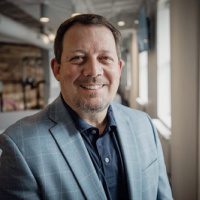
Bart De Muynck is an Industry thought leader with over 30 years of Supply Chain and Logistics experience. Bart has worked for major International companies such as EY, GE Capital, Penske Logistics, PepsiCo, and several Tech companies. He spent eight years as a VP of Research at Gartner and most recently served as the Chief Industry Officer at project44. Bart is also a writer for Freightwaves, a member of the Forbes Technology Council, and CSCMP’s Executive Inner Circle. Connect with Bart on LinkedIn.
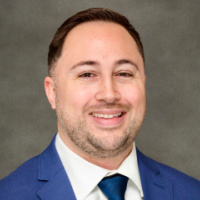
John Conte serves as the Vice President of Supply Chain at FinditParts, enriched by over two decades of deep-seated experience in Supply Chain, Logistics, and Fulfillment Management. Adhering firmly to a “People First” philosophy, John seamlessly blends his vast expertise with cutting-edge technology, creating a supply chain that is both agile and resonates with customer needs. His illustrious career journey includes prestigious roles such as the Senior Director of Product Management-Digital Fulfillment, Supply Chain, and Logistics at IKEA, the Director of Logistics and Operations at Holman, and the Head of Transportation at Simple Tire. This trajectory paints a vivid picture of John’s unmatched capability in shaping elite teams and nurturing the leaders of tomorrow. His expansive knowledge encompasses both domestic and international transportation, strategizing partnerships with retail powerhouses like Amazon, Walmart, and eBay, and being at the forefront of cost and process enhancement initiatives. In the realm of industry recognition, John boasts a myriad of accolades. These include the Six Sigma Black Belt, the APICS PLS, the “2022 Logistics Pro to Know” awarded by Supply and Demand Chain Executive, the “Excellence in Automotive Parts Logistics” from Automotive Global Awards- North America, and the “Automotive Global Logistics Rising Star” distinction issued by Automotive Global Awards North America. Further enhancing his distinguished profile, John is the celebrated author of “Supply Chain Leadership Mastery: Crafting High-Performing Winning Teams” and “The ABC’s of Supply Chain and Logistics.” His academic journey, crowned by a Master of Science in Supply Chain Management from Rutgers Business School, further solidifies his eminent position in the logistics and supply chain sector. Armed with extensive fleet management insights and a natural talent for software and pioneering process innovation, John stands as a beacon in the logistics domain. With a relentless focus on the customer, he has been a game-changer in redefining transportation and fulfillment frameworks, delivering a superior purchasing experience for end-users, and building enduring client relationships. Connect with John on LinkedIn.
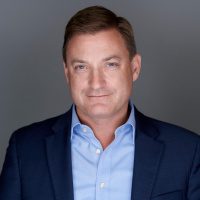
Michael Campese serves as the Chief Marketing, Experience Officer at Estes Forwarding Worldwide. Connect with Michael on Linkedin.
